
Home » Blog » Dissertation » Topics » Film » Film Dissertation Topics (28 Examples) For Research Ideas


Film Dissertation Topics (28 Examples) For Research Ideas
Mark Jun 18, 2020 Jun 18, 2020 Film No Comments
The discipline of film studies in the world of academia is linked with the critical, historical, and theoretical approaches to films. A list of film dissertation topics is developed to help students in choosing the right topic for their thesis, research project, and dissertation. Choosing a topic from the list of film dissertation topics can […]

The discipline of film studies in the world of academia is linked with the critical, historical, and theoretical approaches to films. A list of film dissertation topics is developed to help students in choosing the right topic for their thesis, research project, and dissertation. Choosing a topic from the list of film dissertation topics can help in gaining a fascinating experience of research.
The project topics on films and research topics on films are developed to help students in finding a topic according to their area of interest. We have a team of highly experienced and professional writers who can help you in writing proposals and dissertations on your selected film dissertation topic.
List of Film dissertation topics
An analysis and comparison of the most popular genres of cinema in the world today.
To compare the commercial cinema and non-commercial cinema – A literature review.
Studying the role of marketing in the Chinese and Japanese film industry.
Examining the cinema and film culture in the Middle East.
An analysis of the perceptions of youngsters on horror films.
Exploring the concept of special effects in silent movies.
Creative translation and cultural transformation impact on the film adaptation.
How has the digital revolution influenced the film and cinema industry?
An empirical analysis of music and soundtracks in films.
Exploring the diverse film elements and pedagogical feasibilities for creative writing.
An analysis of film education as a multiplicity of practices.
Evaluating the evolution of music in the film – a comparative review.
Studying the evolution of urban film making.
How are technological advancements contributing to the film industry?
An analysis of the importance of a Character in a film.
Studying the landscape of Eastern film making.
Exploring the relationship between literature and film.
What are the special aspects of film making and how it influences the different people involved in the process?.
Why is violence in commercial cinema overrated?
An analysis of participatory film production a media practice.
Exploring the role of women in film – cultural impact on the changing discourse on gender representation in films.
A sentiment analysis on IMDb movie reviews using hybrid feature extraction model..
Irony, interpretation, and surface meanings in the film.
A literature review on the evolution of television and film industry.
Studying the art of handmade movie hoardings in Pakistan.
To study the effects of protectionism on film industry taking the case of Korea.
An analysis of Hollywood’s film localization efforts.
A comparative review of Hollywood with other countries film industry.
Topic With Mini-Proposal (Paid Service)
Along with a topic, you will also get;
- An explanation why we choose this topic.
- 2-3 research questions.
- Key literature resources identification.
- Suitable methodology with identification of raw sample size, and data collection method
- View a sample of topic consultation service
Get expert dissertation writing help to achieve good grades
- Writer consultation before payment to ensure your work is in safe hands.
- Free topic if you don't have one
- Draft submissions to check the quality of the work as per supervisor's feedback
- Free revisions
- Complete privacy
- Plagiarism Free work
- Guaranteed 2:1 (With help of your supervisor's feedback)
- 2 Instalments plan
- Special discounts
Other Posts
Message Us On WhatsApp
Verify originality of an essay
Get ideas for your paper
Find top study documents
Film Research Paper Topics: Tips & Ideas to Use as Inspiration
Updated 01 Jul 2024

The most challenging part of writing a research paper might be picking the right topic. Choosing one that’s interesting, compelling, and thought-provoking is critical for engaging the reader and showcasing your knowledge.
Thanks to decades of moviemaking, there are tons of film research paper topics to choose from, so it can be a bit overwhelming to lock in on a single one.
That’s why we’ve put together a comprehensive list of ideas that you can use for inspiration. Let’s dive in.
Most Interesting Film Essay Topics
When brainstorming a topic for your film research paper, it’s vital to pick something you’re passionate about. That’s how you’ll be able to put your best foot forward.
These are some of the most exciting topics that are certain to summon your inspiration muse.
- The Evolution of Female Protagonists in Action Films
- The Impact of Global Cinema on Hollywood
- Analyzing the Auteur Theory in Modern Cinema
- The Role of Soundtracks in Defining Movie Genres
- The Influence of Neo-Noir Aesthetics on Contemporary Filmmaking
- Virtual Reality in Cinema: A New Frontier or a Passing Trend?
- The Representation of Artificial Intelligence in Science Fiction Movies
- Cultural Stereotypes and Their Perpetuation in Animated Films
- The Psychological Effects of Horror Films on Audiences
- The Renaissance of Musical Films in the 21st Century
- Exploring the Cinematic Portrayals of Historical Events
- The Rise of Independent Films in the Streaming Era
- Color Theory in Film: How Palette Choices Affect Emotion
- The Depiction of Mental Illness in Modern Cinema
- The Use of Long Takes and Their Impact on Storytelling
- The Evolution of Superhero Movies: From Niche to Mainstream
- The Significance of Costume Design in Character Development
- Analyzing the Shift from Film to Digital Cinematography
- The Role of Propaganda Films in Shaping Public Opinion
- The Ethics of Documentary Filmmaking: Truth vs. Narrative
- The Influence of French New Wave on Contemporary Directors
- The Portrayal of LGBTQ+ Characters in Mainstream Cinema
- The Cultural Impact of Biographical Films
- The Art of the Film Sequel: Expansion or Exploitation?
- Cinema as a Tool for Social Change: Case Studies
- The Representation of Race and Ethnicity in Hollywood
- The Phenomenon of Cult Films and Their Dedicated Fanbases
- The Impact of Censorship on Creative Freedom in Film
- Exploring the Use of Non-Linear Narratives in Storytelling
- The Role of Film Festivals in Discovering New Talent
- The Challenges and Triumphs of Adapting Literature into Film
- The Dynamics of On-Screen Chemistry: What Makes It Work?
- The Influence of Cinema on Fashion Trends
- The Significance of Opening and Closing Shots in Films
- The Evolution of the Teen Movie Genre
- The Role of Archetypes in Film Genres
- The Impact of Global Locations on Film Production and Storytelling
- The Use of Silence as a Narrative Tool in Cinema
- The Portrayal of Villainy and Moral Ambiguity in Film
- The Legacy of Silent Films and Their Influence on Modern Cinema
- The Depiction of Space and Time Travel in Science Fiction Movies
- The Art and Technique of Film Editing: Creating Rhythm and Pace
- The Representation of War in Cinema: Glory vs. Horror
- The Influence of Social Media on Film Marketing and Audience Engagement
- The Role of Animation in Adult Storytelling
- The Impact of 3D Technology on the Viewer's Experience
- The Portrayal of Relationships and Love in Romantic Comedies
- The Use of Allegory and Symbolism in Film to Reflect Society
- The Challenges of Filming in Extreme Conditions
- The Future of Cinema in the Age of Streaming Services
Top Film History Research Paper Topics
The history of cinema is vast, so there are countless film history research topics that can captivate your reader. These are some of the most relevant you can use.
Get your paper in 3 hours!
- Customized writing: 100% original, personalized content.
- Expert editing: polished, standout work.
✔️ Zero AI. Guaranteed Turnitin success.

- The Birth of Cinema: Exploring the Lumière Brothers' Contribution to Film
- George Méliès and the Invention of Narrative Cinema
- The Evolution of Silent Film Techniques and Their Modern Legacy
- Charlie Chaplin: The Impact of The Tramp on Global Cinema
- The Role of Women in Early Cinema: Pioneers Behind and in Front of the Camera
- The Transition from Silent to Sound Films: Technological and Artistic Challenges
- Expressionism in German Cinema: A Study of Visual Style and Its Influence
- The Rise and Fall of the Studio System in the Silent Era
- Early Animation Techniques: From Gertie the Dinosaur to Steamboat Willie
- Cross-Cultural Influences: How Early Cinema Traveled Across Continents
- The Hays Code: Censorship and Its Impact on Hollywood Storytelling
- Technicolor Dreams: The Introduction of Color in Hollywood Cinema
- Film Noir: Origins, Characteristics, and Key Figures
- The McCarthy Era: Blacklisting and Its Effects on Hollywood
- The Rise of the Director: Auteur Theory and Its Proponents
- New Hollywood: The 1970s Renaissance and Its Lasting Influence
- The Blockbuster Era: Jaws, Star Wars, and the New Business of Cinema
- Independent Cinema Movement: Breaking Away from Hollywood Norms
- The Digital Revolution: CGI and the Transformation of Film Production
- Global Cinema: The Influence of Hollywood on World Cinema and Vice Versa
Research Paper Topics on Music in Films
Music in films can tell a captivating story, evoke a world of emotions, and create a unique experience that lingers on long after you’ve watched the end credits. It often becomes as iconic as the films themselves, especially when it comes to musicals. Here are some captivating film research paper topics on music.
- The Evolution of Film Scores: From Silent Cinema to the Digital Age
- The Role of Music in Establishing Film Genres
- Iconic Film Composers: The Musical Styles of John Williams and Ennio Morricone
- The Impact of Jazz on Film Noir Soundtracks
- Musical Motifs in Cinema: Creating Character and Narrative Depth
- The Influence of Classical Music on Modern Film Scores
- Diegetic vs. Non-Diegetic Music: Shaping Viewer Perception
- The Use of Popular Music in Films: Cultural Context and Impact
- Music as a Narrative Device in Animated Films
- The Psychological Effects of Film Music on Audiences
- The Art of the Film Musical: Evolution from Stage to Screen
- World Music in Cinema: Exploring Cross-Cultural Soundscapes
- The Rise of the Film Soundtrack: From Background to Bestseller
- The Function of Silence: When the Absence of Music Tells the Story
- The Process of Scoring for Film: Collaboration Between Directors and Composers
- Adapting Opera and Ballet for the Film Medium
- Horror Film Scores: Techniques for Creating Tension and Fear
- The Legacy of Disney's Musical Films: Shaping Generations
- Music Video Aesthetics in Narrative Filmmaking
- The Role of Music in Documentary Films: Enhancing Realism and Emotion
Riveting Horror Film Research Paper Topics
There are quite a few scary and suspenseful horror movies that can keep viewers at the edge of their seats. Analyzing the overall genre or some of the greatest directors’ masterpieces and techniques is certain to enthrall your reader. Here are some gripping horror film research paper topics you can use.
Get AI-free papers in just 3 hours
Receive high-quality, original papers, free from AI-generated content.
- The Evolution of Horror Cinema: From Gothic to Modern Psychological Thrillers
- Monsters and Myths: Cultural Significance of Horror Film Antagonists
- The Impact of German Expressionism on American Horror Films
- Social Fears and Horror Films: Reflecting Societal Anxieties Through Cinema
- The Final Girl Trope: Gender Dynamics in Slasher Films
- Horror and Comedy: Analyzing the Success of Horror-Comedy Hybrids
- The Rise of Found Footage: Authenticity and Fear in a Digital Age
- Censorship in Horror: The Battle Between Artistic Freedom and Social Responsibility
- The Influence of Literature on Horror Cinema: From Mary Shelley to Stephen King
- Horror Film Festivals: Cultivating Communities and Defining the Genre
- Sound Design in Horror Films: Crafting Fear with Audio
- Lighting and Color in Horror Cinema: Setting the Mood Without a Word
- The Art of Suspense: Building Tension in Horror Films
- Practical Effects vs. CGI in Horror: Preserving the Tangibility of Terror
- The Role of Setting: Isolated Cabins and Urban Nightmares in Horror Films
- Auteur Theory in Horror: The Signature Styles of Hitchcock, Carpenter, and Craven
- The Psychology of Jump Scares: Manipulating the Viewer's Anticipation and Fear
- Horror Film Sequels and Remakes: Innovation or Exploitation?
- The Use of First-Person Perspective in Horror Films: Immersion and Disorientation
- Horror Across Cultures: How Different Societies Scare Their Audiences
Compelling Monster Essay Topics
Movie monsters are often terrifying fictional creatures, but they sometimes represent human nature and our deepest fears as well. Let’s explore some of the more fascinating film essay topics on monsters.
- The Evolution of the Vampire Myth in Literature and Popular Culture
- Monsters as Metaphors: Analyzing the Symbolism Behind Literary Monsters
- Frankenstein's Monster: A Reflection on Humanity and Creator Responsibility
- The Role of Dragons in Eastern vs. Western Mythology
- Hybrid Monsters in Mythology: Exploring the Fear of the Unknown
- Duality of Werewolves: Exploring the Beast Within Human Nature
- The Influence of Greek Mythology's Monsters on Modern Fantasy Literature
- Grendel in "Beowulf": Monster as a Social Outcast
- The Loch Ness Monster: Myth, Hoax, or Unexplained Phenomenon?
- Monsters in Children's Literature: Fears, Morals, and Imagination
- The Psychology of Horror: Why Do We Enjoy Being Scared by Movie Monsters?
- Zombies as a Cultural Phenomenon: From Haitian Folklore to Global Apocalypse Obsession
- The Representation of Artificial Intelligence as Monstrous in Science Fiction
- Kaiju Films: The Appeal of Giant Monsters in Japanese Cinema and Beyond
- The Monster's Perspective: Sympathy for the Devil in Modern Media
- Aliens and the Fear of Invasion: Analyzing Extraterrestrial Monsters in Film
- The Role of Monsters in Video Games: Beyond the Antagonist
- Body Horror: The Monstrosity of the Human Form Transformed
- The Slasher Villain: Serial Killers as Monsters in Horror Films
- Monsters and Heroes: The Thin Line Between Antagonist and Protagonist in Comic Books
How to Pick a Good Topic for a Film Research Paper
If none of these film research paper topics have inspired you to write your paper, here’s what you can do to find new ideas:
- Make a list of your favorite films or filmmakers - Movies you’re passionate about or filmmakers you admire the most are a great place to start.
- Choose a specific historical period - If you’re interested in a specific period in film history, you can analyze that time’s movies, themes, techniques, etc.
- Pick a film genre - Focusing on a specific genre from the get-go might help you narrow down your list of ideas.
- Research different ideas - The more ideas you research, the higher your chances of finding the right topic. You should conduct thorough research on all the ideas, exploring the available literature, media platforms, published research papers, and other credible sources.
- Come up with a specific topic - Armed with relevant information, come up with a specific topic that interests you the most. Make sure it isn’t too broad so that you can go into detail and provide real value.
- Narrow down your focus - Narrowing down your topic to one or two ideas is key to writing a high-quality paper. Make sure it’s not too narrow so that you can keep the reader engaged.
Get Professional Film Research Assistance at EduBirdie
At EduBirdie, we have an expert team of professionals who can assist you with research and help you write a brilliant movie research paper. They have Ph.D. and Master’s degrees in Film Studies and years of experience under their belt.
Choosing the right film research paper topics can be overwhelming, so if you're struggling, you might consider the option to pay someone to write my paper to ensure a well-researched and compelling essay. We offer plagiarism-free research paper writing services with outline writing, formatting, citations, unlimited free revisions, and no delays. Contact us today and get original, unique, high-quality content that will exceed your expectations!
Was this helpful?
Thanks for your feedback, related blog posts, 200+ top sociology research topics.
Table of contents Research Methods of Sociology Tips on How to Choose a Good Topic for Sociology Research Sociology Research Topics I...
Complete List of 200+ Exciting History Research Paper Topics
Table of contents Which Research Topic is Considered Good Unique History Research Topics Tips Ancient History Research Topics Middl...
What is qualitative research? Approaches, methods, and examples
Students in social sciences frequently seek to understand how people feel, think, and behave in specific situations or relationships that evolve ov...
Join our 150K of happy users
- Get original papers written according to your instructions
- Save time for what matters most
Film & Media Studies
- Film & Pittsburgh
- Alumni Contact Form
- Film & Media Studies Critical Studies Track
- Film and Media Production Track
- Minor in FMST
- Television and Broadcast Arts Certificate
- Internships
- Required Coursework Categories
- Upcoming Courses (Summer 2024)
- Upcoming Courses (Fall 2024)
- General Education Requirements
- Student Funding Opportunities
- Production Resources
- Study Abroad
- Academic Communities
- Undergraduate Alumni
- Undergraduate FAQs
- Requirements
- Terminal MA
- Master's Certificate
- PhD Certificate
- Required Coursework
- Upcoming Courses
- Funding Opportunities
- Non-U.S. Citizen Graduate FAQs
- Doctoral Student Placement
- Student Spotlight
- Upcoming Events
- Past Events
- Prospective Students
Dissertations
Listed by year of graduation
Geneveive Newman , Online Editor, New Review of Film and Television Studies
- Dissertation Title: “ Of Victims and Survivors: Representing Collective and Individual Rape Trauma ”
- Chair: Adam Lowenstein
- Readers: Neepa Majumdar, Mark Lynn Anderson, Bridget Keown (Gender, Sexuality, and Women’s Studies), and David Pettersen (French)
Silpa Mukherjee , Assistant Professor of Film & Media, Global South, and Cultural Studies, University of California San Diego
- Dissertation Title: “ Cinema as Contraband: Bombay’s Cine-Crime Nexus, 1977-1991 ”
- Chair: Neepa Majumdar
- Readers: Mark Lynn Anderson, Adam Lowenstein, Randall Halle (German), and Ranjani Mazumdar (Jawaharlal Nehru University)
Jonah Jeng , Visiting Lecturer, University of Pittsburgh Film & Media Studies
- Dissertation Title: “ The Long Take: A Spectacular Film Realism for the Anthropocene ”
- Readers: Neepa Majumdar, Zachary Horton, and Randall Halle (German)
Jordan Parrish
- Dissertation Title: “ A Phantom Experience: Traumatic Embodiment in Temporal Body Horror Cinema ”
- Readers: Zachary Horton, Jennifer Waldron, and Charles Exley (East Asian Languages & Literatures)
Nikhil Titus
- Dissertation Title: “ Curated Desires: Intersections of Low-Grade Cinema, Migration, and Gentrification in Mumbai ”
- Readers: Robert Clift, Zachary Horton, and Randall Halle (German)
- Dissertation: " Aluminum Lesbians: Recycling Lesbian Legacy in Classical Hollywood"
- Chair: Mark Lynn Anderson (English)
- Readers: Jules Gill-Peterson (English), Nancy Glazener (English), David Pettersen (French & Italian)
- Dissertation: " Process over Product: Kinesthetic Cinema, Sporting Bodies, and Media Milieux"
- Readers: Randall Halle (German), Adam Lowenstein (English), Neepa Majumdar (English)
- Dissertation: White Design: Engineering the Visualization of Race and Racism in Social Media
- Chair: Jinying Li (English) & Zachary Horton (English)
- Readers: Mark Lynn Anderson (English), Brenton Malin (Communication), Elizabeth Reich (English)
- Dissertation: From Women's Cinema to Women's Horror Cinema: Genre and Gender in the Twenty-First Century
- Chair: Adam Lowenstein (English)
- Readers: Lucy Fischer (English), Neepa Majumdar (English), David Pettersen (French & Italian)
- Dissertation: Soviet Tableau: Cinema and History under Late Socialism (1953-1985)
- Chair: Nancy Condee (Slavic)
- Readers: David Birnbaum (Slavic), Randall Halle (German), Neepa Majumdar (English), Marcia Landy (English), Vladimir Padunov (Slavic), Dan Morgan (Cinema and Media Studies, University of Chicago)
- Dissertation: Cinema in Fragments: Transmediating Popular Hindi Cinema on Small Screens
- Chair: Neepa Majumdar (English)
- Readers: Nancy Condee (Slavic), Jinying Li (English), Aswin Punathambekar (Communication Studies, University of Michigan), Jennifer Waldron (English)
- Dissertation: The Interstate Logic: How Networks Change the Cinematic Representation of Time and Space
- Chair: Lucy Fischer (English)
- Readers: Randall Halle (German), Mark Lynn Anderson (English), Neepa Majumdar (English)
- Dissertation: "Quiet on Set!": Craft Discourse and Below-the-Line Labor in Hollywood, 1919-1985
- Chair: Mark Lynn Anderson (English)
- Readers: Adam Lowenstein (English), Neepa Majumdar (English), Randall Halle (German), Dana Polan (NYU), Dan Morgan (Cinema and Media Studies, University of Chicago)
- Dissertation: The Matter of Identity: Digital Media, Television, and Embodied Difference
- Chair: Jane Feuer (English)
- Readers: Brenton J. Malin (Communication), Jinying Li (English), Jennifer Waldron (English)
- Dissertation: The Rehearsal for Terror: Form, Trauma, and Modern Horror
- Chair: Marcia Landy (English)
- Readers: Mark Lynn Anderson (English), Adam Lowenstein (English), Dan Morgan (Cinema and Media Studies, University of Chicago)
- Dissertation: FEEL IT ALL AROUND: ART MUSIC VIDEO, ART CINEMA, AND SPECTATORSHIP IN THE STREAMING ERA
- Chair: Adam Lowenstein (English)
- Readers: Mark Lynn Anderson (English), Neepa Majumdar (English), Randall Halle (German), Dan Morgan (Cinema and Media Studies, University of Chicago)
- Dissertation: The Cinematic Animal: Animal Life, Technology, and the Moving Image
- Readers: Neepa Majumdar (English), Adam Lowenstein (English), Akira Lippit (Cinema & Media Studies, University of Southern California)
- Dissertation: Sustaining Life During the AIDS Crisis: New Queer Cinema and the Biopic
- Readers: Lucy Fischer (English), Randall Halle (German), Marcia Landy (English)
- Dissertation: Pataphysical Networking: Virtuality, Potentiality and the Experimental Works of the Collège de 'Pataphysique, the Oulipo, and the Mouvement Panique
- Dissertation: "Everything new is born illegal." Historicisizing Rapid Migration through New Media Projects
- Chair: Randall Halle (German)
- Readers: Nancy Condee (Slavic), Sabine von Dirk (German), John B. Lyon (German)
- Dissertation: Impasse in Multilingual Spaces: Politics of Language and Identity in Contemporary Francophone Contact Zones
- Chair: David Pettersen (French & Italian)
- Readers: Nancy Condee (Slavic), Neil Doshi (French & Italian), Giuseppina Mecchia (French & Italian)
- Dissertation: Press Play: Video Games and the Ludic Quality of Aesthetic Experiences across Media
- Readers: Randall Halle (German), Jinying Li (English), Neepa Majumdar (English), Dan Morgan (Cinema and Media Studies, University of Chicago)
- Dissertation: Shopping the Look: Hollywood Costume Production and American Fashion Consumption, 1960-1969
- Chair: Neepa Majumdar (English)
- Readers: Mark Lynn Anderson (English), Jane Feuer (English), Brenton J. Malin (Communication)
- Dissertation: Another Habitat for the Muses: The Poetic Investigations of Mexican Film Criticism, 1896-1968
- Readers: Neepa Majumdar (English), Adam Lowenstein (English), Joshua Lund (University of Notre Dame)
- Dissertation: Frame and Finitude: The Aporetic Aesthetics of Alain Resnais's Cinematic Modernism
- Co-Chairs: Adam Lowenstein (English), Daniel Morgan (Cinema and Media Studies, University of Chicago)
- Readers: Neepa Majumdar (English), Marcia Landy (English)
Natalie Ryabchikova
- Dissertation: The Flying Fish: Sergei Eisenstein Abroad, 1929-1932.
- Chair: Mark Lynn Anderson (Film)
- Readers: William Chase (History), Nancy Condee (Slavic), Randall Halle (Film), Vladimir Padunov (Slavic)
Kelly Trimble
- Dissertation: The Celebrification of Soviet Culture: State Heroes after Stalin, 2017
- Chair: Vladimir Padunov (Slavic)
- Readers: David Birnbaum (Slavic), Nancy Condee (Slavic), Randall Halle (German)
- Dissertation: A Hidden Light: Judaism, Contemporary Israeli Film, and the Cinematic Experience
- Chair: Lucy Fischer (English)
- Readers: Adam Lowenstein (English), Neepa Majumdar (English), Adam Shear (Religious Studies)
- Dissertation: Global Russian Cinema in the Digital Age: The Films of Timur Bekmambetov
- Chair: Nancy Condee (Slavic)
- Readers: Vladimir Padunov (Slavic), Randall Halle (German), Daniel Morgan (Cinema and Media Studies, University of Chicago)
- Dissertation: The Flying Fish: Sergei Eisenstein Abroad, 1929-1932
- Chair: Vladimir Padunov (Slavic)
- Readers: Mark Lynn Anderson (English), William Chase (History), Nancy Condee (Slavic), Randall Halle (German)
Anne Wesserling , Visiting Assistant Professor, University of North Georgia
- Dissertation: Screening Violence: Meditations on Perception in Recent Argentine Literature and Film of the Post-Dictatorship
- Chair: Daniel Balderston (Hispanic Languages & Literature)
- Readers: John Beverley (Hispanic Languages & Literature), Gonzalo Lamana (Hispanic Languages & Literature), Adam Lowenstein (English)
- Dissertation: The British War Film, 1939-1980: Culture, History, and Genre
- Readers: Adam Lowenstein (English), Colin MacCabe (English), David Pettersen (French & Italian)
- Dissertation: Unseen Femininity: Women in Japanese New Wave Cinema
- Readers: Nancy Condee (Slavic), Marcia Landy (English), Neepa Majumdar (English)
- Dissertation: Visualizing the Past: Perestroika Documentary Memory of Stalin-era
- Readers: Nancy Condee (Slavic), David J. Birnbaum (Slavic), Jeremy Hicks (Languages, Linguistics, Film)
Gavin M. Hicks
- Disseration: Soccer and Social Identity in Contemporary German Film and Media
- Readers: John B. Lyon (German), Sabine von Dirke (German), Clark Muenzer (German), Gayle Rogers (English)
- Dissertation: Film Dance, Female Stardom, and the Production of Gender in Popular Hindi Cinema
- Readers: Lucy Fischer (English), Marcia Landy (English), Ranjani Mazumdar (Cinema Studies, Jawaharlal Nehru University)
- Dissertation: Overlooking the Evidence: Gender, Genre and the Female Detective in Hollywood Film and Television
- Readers: Mark Lynn Anderson (English), Adam Lowenstein (English), Brenton J. Malin (Communications)
Christopher Nielsen , Educator, Institute for Health and Socioeconomic Policy/National Nurses United
- Dissertation: Narco Realism in Contemporary Mexican and Transnational Narrative, Film, and Online Media
- Chair: Juan Duchesen-Winter (Hispanic Languages & Literature)
- Readers: John Beverley (Hispanic Languages & Literature), Joshua Lund (Hispanic Languages & Literature), Giuseppina Mecchia (French & Italian)
- Dissertation: New Korean Cinema: Mourning to Regeneration
- Readers: Kyung Hyun Kim (East Asian Languages and Literatures, University of California, Irvine), Adam Lowenstein (English), Colin MacCabe (English)
- Dissertation: “Insubordinate” Looking: Consumerism, Power, Identity, and the Art of Popular (Music) Dance Movies
- Readers: Mark Lynn Anderson (English), Lucy Fischer (English), Randall Halle (German)
- Dissertation: Sustaining Feminist Film Cultures: An Institutional History of Women Make Movies
- Readers: Mark Lynn Anderson (English), Neepa Majumdar (English), Randall Halle (German Language), David Pettersen (French & Italian)
Yvonne Franke , Assistant Professor of German, Midwestern State University
- Dissertation: The Genres of Europeanization - Moving Towards the "New Heimatfilm"
- Readers: Lucy Fischer (Film), John B. Lyon (German), Sabine von Dirke (German)
Olga Kilmova , Visiting Lecturer, University of Pittsburgh
- Dissertation: Soviet Youth Films under Brezhnev: Watching Between the Lines
- Chair: Nancy Condee (Slavic)
- Readers: Vladimir Padunov (Slavic), David J. Birnbaum (Slavic), Lucy Fischer (Communication), Alexander V. Prokhorov (Slavic)
- Dissertation: The Toy Like Nature: On the History and Theory of Animated Motion
- Chair: Daniel Morgan
- Readers: Marcia Landy (English), Mark Lynn Anderson (English), Scott Bukatman (Film & Media Studies, Stanford University)
- Dissertation: Cinematic Occupation: Intelligibility, Queerness, and Palestine
- Readers: Mark Lynn Anderson (English), Troy Boone (English), Todd Reeser (French & Italian)
Yahya Laayouni , Assistant Professor of Arabic and French, Bloomsberg University of Pennsylvania
- Dissertation: Redefining Beur Cinema: Constituting Subjectivity through Film
- Co-Chairs: Giuseppina Mecchia (French and Italian) & Randall Halle (German)
- Readers: Todd Reeser (French and Italian), Mohammed Bamyeh (Sociology & Religious Studies), Neil Doshi (French & Italian)
- Dissertation: Image to Infinity: Rethinking Description and Detail in the Cinema
- Chair: Marcia Landy (English)
- Readers: Troy Boone , Adam Lowenstein (English), Colin MacCabe (English), Randall Halle (German)
- Link to professional profile >
- Dissertation: Screen Combat: Recreating World War II in American Film and Media
- Readers: Lucy Fischer (English), Marcia Landy (English), Randall Halle (German)
- Dissertation: Modern Kinesis: Motion Picture Technology, Embodiment, and Re-Playability in the Late Nineteenth and Early Twenty-First Centuries
- Readers: Lucy Fischer (English), Adam Lowenstein (English), Giuseppina Mecchia (French & Italian)
- Dissertation: Research in the Form of a Spectacle: Godard and the Cinematic Essay
- Readers: Lucy Fischer (English), Marcia Landy (English)
- Dissertation: Immaterial Materiality: Collecting in Live-Action Film, Animation, and Digital Games
- Readers: Marcia Landy (English), Adam Lowenstein (English), Randall Halle (German)
- Dissertation: Nation, Nostalgia, and Masculinity: Clinton/Spielberg/Hanks
- Readers: Marcia Landy (English), Adam Lowenstein (English), Brent Malin (Communications)
- Dissertation: Body Image: Fashioning the Postwar American
- Readers: Jane Feuer (English), Marianne Novy (English), Carol Stabile (English, University of Oregon)
Natalia Maria Ramirez-Lopez ,
- Dissertation: MARGINALIDAD Y VIOLENCIA JUVENIL EN MEDELLÍN Y BOGOTÁ: NARRATIVAS LITERARIAS Y FÍMICAS DE LOS AÑOS 80 Y 90 EN COLOMBIA
- Chair: Hermann Herlinghaus (Latin American Literature, University of Freiburg)
- Readers: Aníbal Perez-Linán (Political Science), Bobby J. Chamberlain (Hispanic Languages & Literature), Gerald Martin (Hispanic Languages & Literature)
Dawn Seckler , Associate Director of Development, Bridgeway Capital
- Dissertation: Engendering Genre: The Contemporary Russian Buddy Film
- Readers: David MacFadyen (University of California, Los Angeles), Lucy Fischer (Film), Nancy Condee (Slavic)
- Dissertation: The Ethnic Turn: Studies in Political Cinema from Brazil and the United States, 1960-2002
- Readers: Adam Lowenstein (English), Shalini Puri, Neepa Majumdar (English), John Beverley (Hispanic)
- Dissertation: Acting Social: The Cinema of Mike Nichols
- Readers: Mark Anderson (English), Marcia Landy (English), Colin MacCabe (English), David Shumway (English, Carnegie Mellon University)
- Dissertation: Ruins and Riots: Transnational Currents in Mexican Cinema
- Readers: Lucy Fischer (English), Adam Lowenstein (English), John Beverly (Hispanic)
- Dissertation: The Word Made Cinematic: The Representation of Jesus in Cinema
- Readers: Troy Boone , Adam Lowenstein (English), Vernell Lillie (Africana Studies)
- Dissertation: Fathers of a Still-Born Past: Hindu Empire, Globality, and the Rhetoric of the Trikaal
- Readers: Paul Bové (English), Ronald Judy (English), Nancy Condee (Slavic)
- Dissertation: Excavating the Ghetto Action Cycle (1991-1996): A Case Study for a Cycle-Based Approach to Genre Theory
- Readers: Jane Feuer (English), Neepa Majumdar (English), Paula Massood (Cinema and Media Studies, Brooklyn College, CUNY)
- Dissertation: "The World Goes One Way and We Go Another": Movement, Migration, and Myths of Irish Cinema
- Readers: Adam Lowenstein (English), Colin MacCabe (English), Nancy Condee (Slavic Languages and Literatures)
- Dissertation: The Writing on the Screen: Images of Text in the German Cinema from 1920-1949
- Readers: Paul Bové (English), Lucy Fischer (English), Linda Shulte-Sasse (German, McAllister College)
- Dissertation: Mantras of the Metropole: Geo-Televisuality and Contemporary Indian Cinema
- Readers: Paul Bové (English); Eric Clarke (English); Colin MacCabe (English); M. Prasad (Film Theory, Central Institute of English and Foreign Languages, Hyderabad)
- Dissertation: Hollywood Youth Narratives and the Family Values Campaign 1980-1992
- Readers: Troy Boone (English), Marcia Landy (English), Carol Stabile (Communications)
- Dissertation: Reading Scars: Circumcision as Textual Trope
- Chair: Philip Smith (English)
- Readers: Lucy Fischer (English), Mariolina Salvatori, Greg Goekjian (Portland State University)
- Dissertation: Dreaming in Crisis: Angels and the Allegorical Imagination in Postwar America
- Chair: Colin MacCabe (English)
- Readers: Ronald Judy (English), Jonathan Arac , Nancy Condee (Slavic)
- Dissertation: Laying Down the Rules: The American Sports Film Genre From 1872 to 1960
- Readers: Jane Feuer (English), Moya Luckett, Carol Stabile (Communications)
Elena Prokhorova
- Dissertation: Fragmented Mythologies: Soviet TV Series of the 1970s
- Readers: Carol Stabile (Communications), Jane Feuer (English and Film), Martin Votruba (Slavic), Nancy Condee (Slavic)
- Dissertation: Nickels and Dimes: The Movies in a Rampantly American City, 1914-1923
- Readers: Moya Luckett, Jane Feuer , Gregory Waller (University of Kentucky)
- Dissertation: As Far As Anyone Knows: Fetishism and the Anti-Televisual Paradoxes of Film Noir
- Readers: Valerie Krips, James Knapp, Henry Krips (Communications)
Alexander Prokhorov , Associate Professor, College of William and Mary
- Dissertation: Inherited Discourse: Stalinist Tropes in Thaw Culture
- Chair: Helena Goscilo (Slavic)
- Readers: Lucy Fischer (Film), Mark Altshuller (Slavic), Nancy Condee (Slavic), Vladimir Padunov (Slavic)
- Dissertation: “Dig If You Will The Picture”: The Cinematic, the Black Femme, and the Image of Common Sense
- Chair: Marcia Landy (English)
- Readers: Paul Bové (English), Colin MacCabe (English), Amy Villarejo (Cornell), Wahneema Lubiano (Duke)
- Dissertation: French Film Criticism, Authorship, and National Culture in the Mirror of John Cassavetes’s Body, His Life, His Work
- Readers: Marcia Landy (English), James Knapp
- Dissertation: In The Shadow of His Language: Language and Feminine Subjectivity in the Cinema
- Chair: Colin MacCabe (English)
- Readers: Lucy Fischer (English), Lynn Emanuel, Patrizia Lombardo (French and Italian)
- Dissertation: Being In Control: The Ending Of The Information Age
- Chair: Paul Bové (English)
- Readers: Jonathan Arac , Marcia Landy , Carol Stabile (Communications)
- Dissertation: The Emergence of Date Rape: Feminism, Theory, Institutional Discourse, and Popular Culture
- Readers: Nancy Glazener (English), Lucy Fischer (English), Carol A. Stabile (Communications)
- Dissertation: Gender and the Politics and Practices of Representation in Contemporary British Cinema
- Readers: James Knapp, Marcia Landy (English), Colin MacCabe (English), Sabine Hake (German)
- Dissertation: Telling the Story of AIDS in Popular Culture
- Chair: Jane Feuer (English)
- Readers: Eric Clarke (English), Marcia Landy (English), Danae Clark (Communications)
- Dissertation: Technology, the Natural and the Other: The Case of Childbirth Representations in Contemporary Popular Culture
- Readers: Marcia Landy (English), Dana Polan, Iris M. Young (Graduate School of Public and International Affairs, University of Pittsburgh)
- Dissertation: Lesbian Rule: Cultural Criticism and the Value of Desire
- Readers: Paul Bové (English), Colin MacCabe (English), Gayatri Spivak (Columbia)
- Dissertation: Feminism, Postmodernism, and Science Fiction: Gender and Ways of Thinking Otherwise
- Chair: Philip Smith
- Readers: Marica Landy (English), Lucy Fischer (English), Dana Polan, Tamara Horowitz (Philosophy)
- Dissertation: Camp and the Question of Value
- Readers: Lucy Fischer (English), Marcia Landy (English), Eric Clarke (English), Janet Staiger (University of Texas–Austin)
- Dissertation: Culture in a State of Crisis: A Historical Construction in Cinematic Ideology in India, 1919-75
- Readers: Paul Bové (English), Colin MacCabe (English), Keya Ganguly (Carnegie Mellon University)
- Dissertation: The Ethics of Transgression: Criticism and Cultural Marginality
- Chair: Paul Bove (English)
- Readers: Lucy Fischer (English), Marcia Landy (English), Dana Pollan, Danae Clarke
- Dissertation: Sally Bowles: Fascism, Female Spectacle, and the Politics of Looking
- Readers: Marcia Landy (English), Dana Polan, Sabine Hake (German)
- How It Works
- PhD thesis writing
- Master thesis writing
- Bachelor thesis writing
- Dissertation writing service
- Dissertation abstract writing
- Thesis proposal writing
- Thesis editing service
- Thesis proofreading service
- Thesis formatting service
- Coursework writing service
- Research paper writing service
- Architecture thesis writing
- Computer science thesis writing
- Engineering thesis writing
- History thesis writing
- MBA thesis writing
- Nursing dissertation writing
- Psychology dissertation writing
- Sociology thesis writing
- Statistics dissertation writing
- Buy dissertation online
- Write my dissertation
- Cheap thesis
- Cheap dissertation
- Custom dissertation
- Dissertation help
- Pay for thesis
- Pay for dissertation
- Senior thesis
- Write my thesis
174 Film Research Paper Topics To Inspire Your Writing
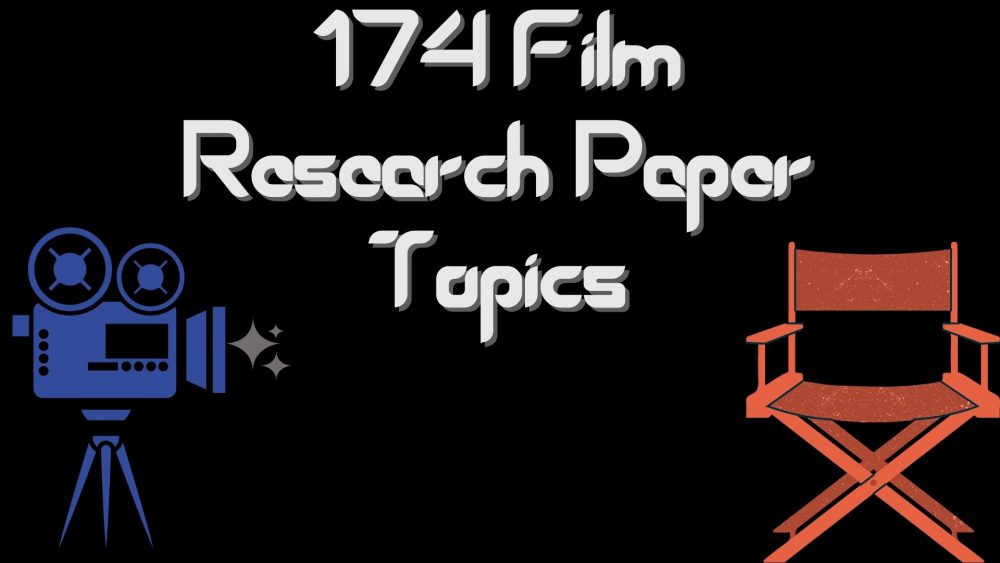
Also known as a moving picture or movie, the film uses moving images to communicate or convey everything from feelings and ideas to atmosphere and experiences. The making of movies, as well as the art form, is known as cinematography (or cinema, in short). The film is considered a work of art. The first motion pictures were created in the late 1880s and were shown to only one person at a time using peep show devices. By 1985, movies were being projected on large screens for large audiences.
Film has a rich and interesting history, as well as a bright future given the current technological advancements. This is why many professors will really appreciate it if you write a research paper on movies. However, to write a great paper, you need a great topic.
In this blog post, we will give you our latest list of 174 film research paper topics. They should be excellent for 2023 and should get you some bonus points for originality and creativity. As always, our topics are 100% free to use as you see fit. You can reword them in any way you like and you are not required to give us any credit.
Writing Good Film Research Paper
Before we get to the film topics for research papers in our list, you need to learn how you can write the best possible film research paper. It’s not overly complicated, don’t worry. Here are some pointers to get you started:
Start as early as possible Start your project with an outline that will keep you focused on what’s important Spend some time to find a great topic (or just use one of ours) Research every angle of the topic Spend some time composing the thesis statement Always use information from reliable sources Make sure you cite and reference properly Edit and proofread your work to make it perfect. Alternatively, you can rely on our editors and proofreaders to help you with this.
Now it’s time to pick your topic. We’ve made things easy for you, so all you have to do is go through our neatly organized list and select the topic you like the most. If you already know something about the topic, writing the paper shouldn’t take you more than 1 or 2 days, however if you have no desire to spend a lot of time on your assignment, thesis writing help from our professionals is on its way. Pick your topic now:
Easy Film Research Topics
We know most students are not too happy about spending days working on their research papers. This is why we have compiled a list of easy film research topics just for our readers:
- What was the Electrotachyscope?
- Research the history of film
- Describe the first films ever made
- Talk about the Kinetoscope
- Who were Auguste and Louis Lumière?
- An in-depth look at film during World War I
- Talk about the evolution of sound in motion pictures
- Most popular movie actors of all time
- The life and works of Charles Chaplin
- The life and works of Sergei Mikhailovich Eisenstein
- Discuss the Mutoscope device
- Talk about the introduction of natural color in films
Film Topics To Write About In High School
If you are a high school student, you probably want some topics that are not overly complicated. Well, the good news is that we have plenty of film topics to write about in high school. Check them out below:
- An in-depth analysis of sound film
- Research the shooting of Le Voyage dans la Lune
- Talk about the Technicolor process
- Research the film industry in India
- The growing popularity of television
- Discuss the most important aspects of film theory
- The drawbacks of silent movies
- Cameras used in 1950s movies
- The most important cinema movie of the 1900s
- Research the montage of movies in the 1970s
- The inception of film criticism
- Discuss the film industry in the United States
Interesting Film Paper Topics
Are you looking for the most interesting film paper topics so that you can impress your professor and your fellow students? We are happy to say that you have arrived at just the right place. Here are our latest ideas:
- Are digital movies much different from films?
- Research the evolution of cinematography
- Research the role of movies in Indian culture
- The principles of a cinema camera
- Technological advancements in the film industry
- The use of augmented reality in movies
- Talk about the role of film in American culture
- An in-depth look at the production cycle of a film
- The role of the filming crew on the set
- Latest cameras for cinematography
- An in-depth look at the distribution of films
- How are animated movies made?
Controversial Movie Topics
Why would you be afraid to write your paper on a controversial topic? Perhaps you didn’t know that most professors really appreciate the effort and the innovative ideas. Below, you can find a whole list of controversial movie topics for students:
- An in-depth look at Cannibal Holocaust
- Controversies behind Fifty Shades of Gray
- A Clockwork Orange: the banned movie
- All Quiet on the Western Front: a controversial war movie
- Discuss The Texas Chain Saw Massacre movie
- Apocalypse Now: one of the most banned movies
- Brokeback Mountain and the controversies surrounding it
- Talk about The Last Temptation of Christ
- The Birth of a Nation: the movie that was banned in America
Movie Topics Ideas For College
As you probably know already, college students should choose topics that are a bit more complex than those picked by high school students. The good news is that we have compiled a list of the best movie topics ideas for college students below:
- Methods to bring your sketches to life
- Discuss problems with documentary filming
- War movies and their impact on society
- What does a director actually do on the set?
- Talk about state-sanctioned movies in China
- Research cinematography in North Korea
- Talk about psychological reactions to films
- Research the good versus evil theme
- African Americans in the 1900s cinematography in the US
- Discuss the creation of sound for films
Hottest Film Topics To Date
Our writers and editors did their best to compile a list of the hottest film topics to date. You can safely pick any of the topics below and write your essay or research paper on it. You should be able to find plenty of information online about each and every topic:
- The life and works of Alfred Hitchcock
- Talk about racial discrimination in war movies
- The psychology behind vampire movies
- The life and works of Samuel L. Jackson
- Classic opera versus modern movie soundtracks
- Hollywood versus Bollywood
- The life and works of tom Hanks
- Research the Frankenstein character
- Major contributions by women in cinematography
- The life and works of Harrison Ford
- The 3 most popular topics for a moving picture
Good Movie Topics For 2023
We know, you probably want some topics that relevant today. You want to talk about something new and exciting. Well, we’ve got a surprise for you. This list of good movie topics for 2023 has just been added to the blog post, and you can use it for free:
- The life and works of Will Smith
- Why do people love movie monsters?
- Talk about the popularity of fan movies
- The life and works of Morgan Freeman
- Gender inequality in UK films
- Research movies that were produced because of video games
- The life and works of Anthony Hopkins
- The importance of the Golden Raspberry Award
- Outer space: the future of cinematography
- Compare today’s filming techniques to those in the 1950s
- The importance of winning a Golden Globe Award
Fascinating Film Topics
Are you looking for some of the most fascinating film topics one can ever find online? Our experts have outdone themselves this time. Check out our list of ideas below and choose the topic you like the most:
- Talk about the development of Star Wars
- Talk about spaghetti western movies
- Discuss the filming of Pride and Prejudice
- Research fantasy films
- The most popular movie genre in 2023
- What makes a movie a blockbuster?
- Filming for the Interstellar movie
- Peculiarities of Bollywood cinema
- Talk about the era of Hitchcock
- Discuss the role of motion pictures in society
- Talk about Neo-realism in Italian movies
- Research the filming of A Fistful of Dollars
The History Of Film Topics
Writing about the history of film and cinematography can be a good way to earn some bonus points from your professor. However, it’s not an easy thing to do. Fortunately, we have a list of the history of film topics right here for you, so you don’t have to waste any time searching:
- Research the first ever motion picture
- Discuss the idea behind moving images
- Research the Pioneer Era
- Talk about the introduction of sound in movies
- Talk about the Silent Era
- Who created the first ever movie?
- Discuss the Golden Era of cinematography
- The era of changes in 2023
- The rise of Hollywood cinematography
- Discuss the first color movie
- Research the first horror movie
- Discuss the phrase “No one person invented cinema”
Famous Cinematographers Topics
You can, of course, write your next research paper on the life and works of a famous or popular cinematographer. You have plenty to choose from. However, we’ve already selected the best famous cinematographers topics for you right here:
- The life and works of Sir Roger Deakins
- Research the cinematographer Vittorio Storaro
- An in-depth look at Bill Pope
- Research the cinematographer Gordon Willis
- The life and works of Wally Pfister
- An in-depth look at Robert Burks
- Research the cinematographer Stanley Cortez
- The life and works of Conrad Hall
- An in-depth look at Rodrigo Prieto
- The life and works of Claudio Miranda
- Emmanuel Lubezki
- An in-depth look at Jack Cardiff
- Research the cinematographer Michael Ballhaus
- The life and works of Kazuo Miyagawa
Famous Films Topic Ideas
The easiest and fastest way to write an essay or research paper about movies is to write about a famous movie. Take a look at these famous films topic ideas and start writing your paper today:
- Research A Space Odyssey
- Research the movie Seven Samurai
- Cinematography techniques in There Will Be Blood
- Discuss the film The Godfather
- An in-depth look at La Dolce Vita
- Research the movie Citizen Kane
- Cinematography techniques in Goodfellas
- An in-depth look at the Aliens series
- Cinematography techniques in Singin’ in the Rain
- Research the movie Mulholland Drive
- An in-depth look at In The Mood For Love
- Research the movie City Lights
The Future Of Movies Topic Ideas
Did you ever wonder what the movies of the future will look like? We can guarantee that your professor has thought about it. Surprise him by writing your paper on one of these the future of movies topic ideas:
- The future of digital films
- Discuss animation techniques of the future
- The future of cinematography cameras
- How do you view the actors of the future?
- Will digital releases eliminate the need for DVDs?
- The role of streaming services in the future
- Talk about the direct-to-consumer distribution concept
- Is cinematography a good career for the future?
- Will movie theaters disappear?
- Virtual reality in future films
- The rise of Pixar Studios
Awesome Cinema Topic Ideas
Our experts have just finished completing this section of the topics list. Here, you will find some of the most awesome cinema topic ideas. These should all work great in 2023, so give them a try today:
- The concept of the Road Movie
- Review the film “Donnie Brasco”
- The popularity of musical movies
- A comprehensive history of cinematography
- Discuss the A Beautiful Mind movie
- Compare watching movies now and in the 1990s
- Talk about film narrative
- The importance of the main characters in a movie
- The process of selecting the right actor for the role
- Well-known produces in the United States
- The most popular actors in 2023
- Research Nazi propaganda films
Simple Cinema Essay Ideas
If you want to write about cinematography but don’t want to spend too much time researching the topic, you could always choose one of our simple cinema essay ideas. New ideas are added to this list periodically:
- Discuss the concept of limited animation
- War movies during World War II
- The importance of James Bond for Americans
- What is docufiction?
- The traits of a filmophile
- The success of early crime movies
- An in-depth look at Hanna-Barbera
- The transition from VHS tape to DVD
- Best comedy movies ever made
- Discuss the Film Noir genre
- What is a Blaxploitation?
- The best samurai film ever produced
Movies And The Internet Topics
- How does piracy affect the movie industry?
- An in-depth look at Netflix
- Research the top 3 movie streaming websites
- Compare and contrast Netflix and Amazon Prime
- Should movies be shared for free online?
- The effects of online streaming on piracy
- Is pirating movies illegal everywhere?
- Illegal downloads of movies in North Korea
- Piracy: a form of film preservation
- The most pirated movies of the 21st century
- Research the best ways to stop film piracy
- The economic impact of movie piracy in the United States
Rely On The Best Thesis Writing Service
Are you preparing to start working on your thesis? Or perhaps you just need some help with a research paper or an essay related to films and the movie industry. Our thesis writing service is exactly what you have been looking for! We have the writers and the experts you need if you want to do a great job on your next academic writing project. And remember, you will get assistance fast and cheap from a team of ENL writers, editors and proofreaders. We are a reliable academic writing agency with years of industry experience, so collaborating with us is 100% secure.
Over the years, we have helped thousands of high school, college and university students with their writing projects. We have always delivered the high quality professors were expecting from their students. In other words, our customers get top grades in 99.6% of the cases. We have an expert for every class, so you don’t have to worry about your project being too complex for us.
If you are a student who is searching for top quality custom content online, custom dissertation writing online from our expert helpers. We have just added new offers and discounts, so don’t forget to ask our customer support specialist about them. Get in touch with us now and save!
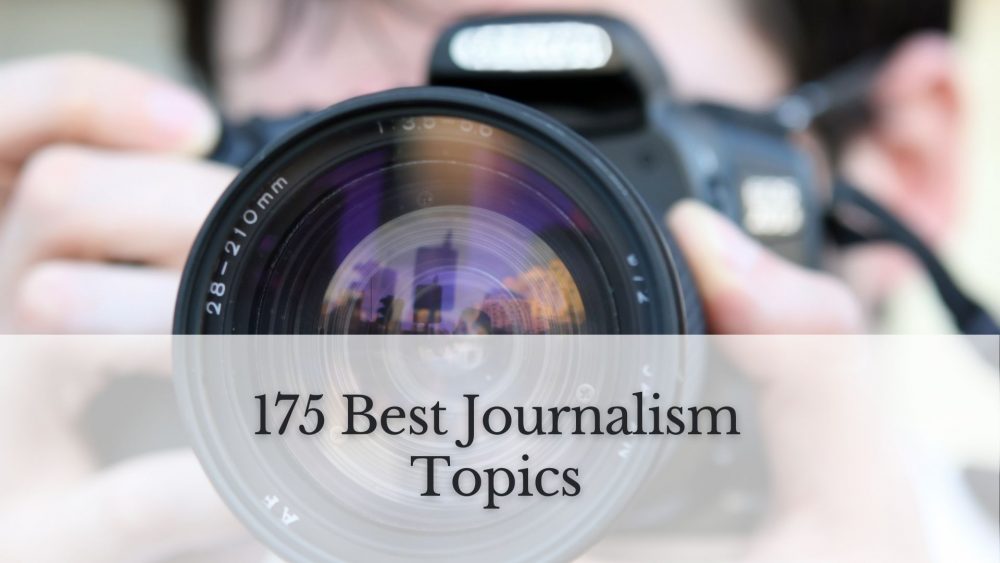
Leave a Reply Cancel reply
Your email address will not be published. Required fields are marked *
Comment * Error message
Name * Error message
Email * Error message
Save my name, email, and website in this browser for the next time I comment.
As Putin continues killing civilians, bombing kindergartens, and threatening WWIII, Ukraine fights for the world's peaceful future.
Ukraine Live Updates
217 Film Research Paper Topics & Ideas
- Icon Calendar 18 May 2024
- Icon Page 2137 words
- Icon Clock 10 min read
Film research paper topics provide a rich, multifaceted canvas for critical analysis. One can explore genre theory and its evolution, scrutinizing the symbiotic relationship between society and film genres, such as sci-fi, horror, or romance. Another fruitful area lies in auteur theory, assessing the unique stylistic fingerprints of directors, like Kubrick, Hitchcock, or Miyazaki. Delving into film adaptations provides an opportunity to study narrative transformation across different media. Studying representation in film, be it racial, gender, or cultural, opens a lens into societal norms and biases. In turn, there is the exploration of film technologies and their influence on the cinematic experience. Film criticism and its role in shaping public perception can also be an intriguing topic. With every cinematic element providing a potential research topic, film studies truly cater to diverse academic interests.
Best Film Research Paper Topics
- Impacts of Technological Advancements on the Animation Film Industry
- Portrayal of Mental Health in Contemporary Cinema
- Cultural Stereotypes in Global Film Industry
- Feminist Theory Analysis in Alfred Hitchcock’s Films
- Violence and its Effect on Teenagers in Action Films
- Representation of History in Steven Spielberg’s Movies
- Examination of Homosexuality in Bollywood Cinema
- Depiction of Science and Technology in Science Fiction Films
- Philosophical Themes Explored in the Matrix Trilogy
- Influence of Film Noir on Modern Thrillers
- Comic Book Adaptations: Success and Failure Factors
- Cinema’s Role in Promoting Environmental Awareness
- Portrayal of AI and Robotics in Films: A Comparative Study
- Evolution of Special Effects in the Film Industry
- Relationship Between Music and Narrative in Film
- Examination of Sociopolitical Contexts in Iranian Cinema
- Impacts of Hollywood on Global Film Cultures
- Aesthetic Evolution in French New Wave Cinema
- Exploring Symbolism in Stanley Kubrick’s Films
- Influence of the Silent Era on Modern Film Techniques
- Alien Depictions: Reflection of Societal Fears in Film
- Use of Dreams and Subconscious in David Lynch’s Films
- Examination of Masculinity in Clint Eastwood’s Westerns
- Evolution of Animation: From Disney to Studio Ghibli
- Exploring Religion and Spirituality in Indian Cinema
Easy Film Research Paper Topics
- Interpreting Magic Realism in Guillermo del Toro’s Films
- Analysis of Adaptation Theory in Book-to-Film Transitions
- Modern Film Criticism: Influence of Online Review Platforms
- Exploration of Absurdism in Coen Brothers’ Films
- Social Media Portrayal in Contemporary Film
- Influence of Film on Public Perception of Historical Events
- Analysis of Horror Tropes in Japanese Cinema
- Portrayal of Childhood and Growing Up in Animated Films
- Impacts of Censorship Policies on Film Creativity
- Narrative Techniques in Quentin Tarantino’s Films
- The Role of Fashion and Costume in Period Films
- Ethical Considerations in Documentary Filmmaking
- Representation of Post-Apocalyptic Themes in Cinema
- Exploring Cultural Identity in African Cinema
- Analysis of Musical Scores in Film Noir
- Examination of Adaptation of Video Games Into Films
- Portrayal of Space Travel in Science Fiction Films
- Evolution of Stop Motion Techniques in Cinema
- Cultural Interpretations of Love and Romance in Films
- Examination of Dystopian Themes in Animated Films
- Analyzing the Concept of Anti-Heroes in Film
- Exploring Satire and Parody in Comedy Films
- Portrayal of Race and Ethnicity in Hollywood Cinema
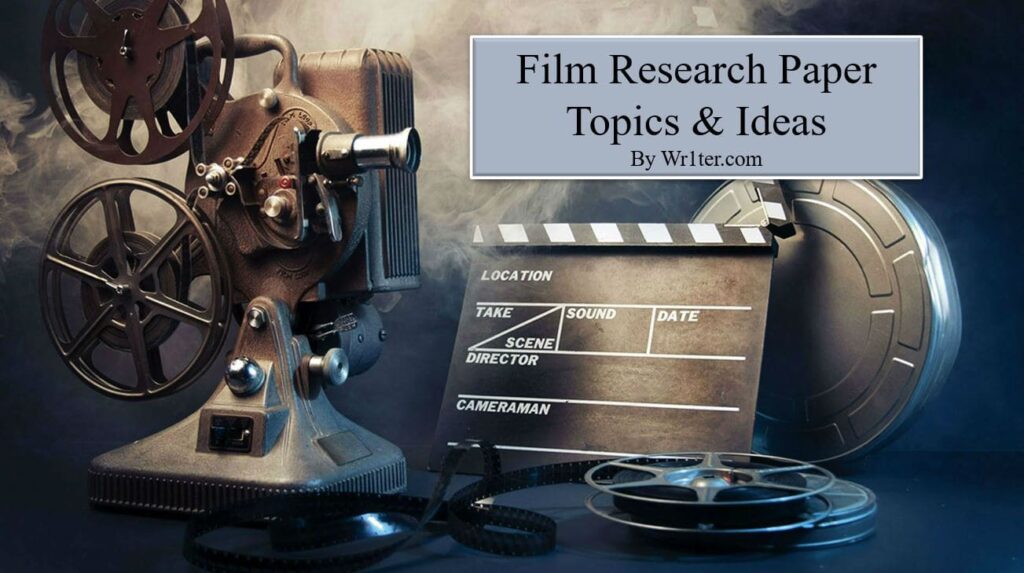
Interesting Film Research Paper Topics
- Depiction of Cybercrime in Contemporary Cinema
- Influence of German Expressionism on Tim Burton’s Aesthetic
- Use of Color and Lighting in Guillermo del Toro’s Films
- Examination of LGBTQ+ Representation in Hollywood Cinema
- Roles of Politics in the Cuban Film Industry
- Portrayal of Disability in Modern Films
- Treatment of Time Travel in Science Fiction Films
- Analyzing the Evolution of Cinematography Techniques
- Cultural Influences in South Korean Cinema
- Roles of Nostalgia in Recreating Period Pieces
- Importance of Film Score in Creating Atmosphere
- Analysis of Propaganda Techniques in North Korean Cinema
- Representation of Women in Action Films
- Ethical Implications of Animal Use in Film Production
- Impacts of Streaming Platforms on Film Distribution
- Evolution of Film Censorship: A Comparative Study
- Examination of Familial Relationships in Animated Films
- Interpretation of Surrealism in Luis Buñuel’s Films
- Examination of Biopics: Historical Accuracy vs. Dramatic License
- Impacts of Film Festivals on Independent Cinema
- Exploring Existentialism in Ingmar Bergman’s Films
Film Research Paper Topics About Students
- Influence of Silent Cinema on Modern Filmmaking Techniques
- Portrayal of Social Media’s Impact on Adolescents in Contemporary Movies
- Bollywood vs. Hollywood: A Comparative Study of Storytelling Styles
- Representation of Mental Health in Animation Movies
- Foreign Language Films: Enhancing Global Cultural Understanding among Students
- The Role of Women in Classic Film Noir: A Critical Analysis
- Analysis of Auteur Theory in Modern Independent Cinema
- Evaluating the Accuracy of Historical Dramas: A Fact vs. Fiction Study
- Roles of Music in Creating Emotional Impact: A Study on Film Scores
- Racial Stereotyping in Blockbuster Movies: A Comprehensive Study
- Interpreting Symbolism and Metaphor in Fantasy Genre Films
- Exploring Subliminal Messages in Advertising and Product Placement in Films
- Understanding the Social Impact of LGBTQ+ Representation in Cinema
- Examining the Evolution of Special Effects in the Film Industry
- Influence of Japanese Anime on Western Animation Styles
- Significance of Set Design in Creating Realistic Period Films
- Ethics in Documentary Filmmaking: Truth vs. Storytelling
- Roles of Cinematography in Enhancing Narratives in Films
- Impacts of Sci-Fi Films on Popular Science Understanding Among Students
- Subtext and Satire: The Power of Political Commentary in Movies
- Narrative Techniques in Autobiographical and Biographical Films
- Artistic Censorship: Its Impact on Creative Freedom in International Cinema
Film Research Paper Topics Made by Students
- Transformation of Comic Books to Silver Screen: A Historical Analysis
- Gender Representation in Oscar-Winning Films Over the Decades
- The Evolution of Horror Films: From Psycho to Paranormal
- Motion Capture Technology: Changing the Landscape of Animation Films
- Examination of Propaganda in World War II Era Cinema
- Unpacking the Influence of Music Scores in Emotional Storytelling
- Analyzing Film Noir: The Aesthetics of Grit and Shadows
- Impacts of Streaming Platforms on Traditional Movie Theatres
- Silent Era to Talkies: How Did Sound Revolutionize Cinema?
- Special Effects Techniques: The Making of Modern Sci-Fi Movies
- The Hero’s Journey: Exploring Mythological Themes in Films
- Ethical Dilemmas in Documentaries: A Study on Bias and Objectivity
- Dissecting the Psychological Depth of Christopher Nolan’s Films
- Censorship in Films: A Comparative Study Between Countries
- The Role of the Auteur in Independent Filmmaking
- How Disney Reinvents Fairy Tales: A Feminist Perspective
- Bollywood vs. Hollywood: Contrasting Storytelling Techniques
- Exploration of Coming-of-Age Themes in Teenage Films
- Stereotyping in Movies: Assessing the Consequences on Society
- Roles of Cinematography in Creating a Film’s Atmosphere
Film Research Paper Topics About Popular Movies
- Influences of Classic Literature on “The Lord of the Rings” Trilogy
- Propaganda and War-Time Politics in “Casablanca”
- Exploring Social Alienation in “Taxi Driver”
- Cinematography Techniques Used in “Citizen Kane”
- Implicit Racism Portrayed in “Gone with the Wind”
- Animation Evolution: A Study on the “Toy Story” Series
- Gender Stereotypes in Disney Princess Films
- Symbolism and Surrealism in “Pan’s Labyrinth”
- Cult Status and Cultural Impact of “Pulp Fiction”
- Examination of Crime and Morality in “The Godfather”
- “Fight Club” and the Commentary on Consumerism
- Psychological Analysis of the Protagonist in “A Clockwork Orange”
- Role of Music in the Narrative of the “Star Wars” Saga
- Concept of Love in Richard Linklater’s “Before” Trilogy
- “The Shining” and Its Divergence From the Original Novel
- “Inception” and the Philosophy of Dream Interpretation
- The Relevance of “1984” in the Age of Mass Surveillance
- Science and Fiction: A Study on “Interstellar”
- Decoding the Metaphor of “The Matrix”
- “The Dark Knight”: A Modern Take on Heroism and Villainy
- Biblical Themes in Darren Aronofsky’s “Noah”
- Investigating Historical Accuracy in “Schindler’s List”
Film Research Paper Topics on History
- The Impact of World War II on Hollywood: Propaganda and Patriotism
- The Rise of Film Noir: Exploring the Dark Side of Post-War America
- Cultural Significance of Epic Historical Films: From “Gone with the Wind” to “Gladiator”
- Uncovering Hidden Histories: Films That Shed Light on Forgotten Events
- The Representation of Ancient Civilizations in Hollywood: Myths and Realities
- The Birth of Cinema: Exploring the Early Pioneers and Their Historical Films
- Propaganda in Film During the Cold War: From East to West
- The Role of Women in Historical Films: Portrayals and Progressions
- Depicting the Civil Rights Movement on the Silver Screen: From “Selma” to “The Help”
- The Historical Accuracy of Biographical Films: Balancing Fact and Fiction
- The Representation of Colonialism in Film: Perspectives and Power Dynamics
- The Cinematic Portrayal of World War I: From “All Quiet on the Western Front” to “1917”
- Political Upheaval and Film: Exploring Revolutionary Movements on Screen
- The Historical Evolution of War Films: From Silent Era to Modern Blockbusters
- The Representation of Indigenous Peoples in Historical Films: Stereotypes and Subversions
- Holocaust’s Theme in Movies: Documenting Trauma and Commemorating History
- The Role of Historical Films in Shaping Collective Memory: Remembering the Past
- Film and the Civil Rights Movement: Documenting Activism and Progress
- The Portrayal of Historical Figures: Heroes, Villains, and Complex Characters
Research Paper Topics on Music in Films
- Musical Transformations: Exploring the Evolution of Film Scores
- Melodic Narrative: The Role of Music in Conveying Storytelling Elements in Films
- Harmonic Innovations: Examining the Impact of Experimental Music in Cinematic Soundtracks
- Rhythm and Emotion: Analyzing the Connection Between Beat and Mood in Film Music
- Melancholic Melodies: Investigating the Use of Music to Evoke Sadness in Movies
- Orchestral Powerhouses: Unveiling the Influence of Symphonic Scores in Epic Films
- Sonic Identity: The Significance of Musical Themes in Establishing Character Presence in Movies
- Vocal Expressions: Exploring the Role of Singing in Enhancing Cinematic Narratives
- Cinematic Soundscapes: Investigating the Use of Ambient Music in Establishing Atmosphere
- Cultural Harmonies: Examining the Representation of Different Music Genres in Film Scores
- Experimental Soundtracks: Analyzing the Use of Avant-Garde Music in Artistic Films
- Jazzy Tones: Unveiling the Influence of Jazz Music in Enhancing the Cinematic Experience
- Musical Archetypes: Exploring the Portrayal of Heroes and Villains through Music in Films
- Electronic Ambience: Investigating the Role of Techno and Electronic Music in Movie Soundtracks
- Musical Narrative Arcs: Analyzing the Structure and Development of Musical Scores in Films
- Emotional Resonance: Examining the Connection Between Music and Audience Response in Movies
- Historical Harmonies: Unveiling the Role of Period Music in Depicting Different Eras in Film
- Musical Cues: Exploring the Use of Leitmotifs in Creating Musical Associations in Cinema
- Cross-Cultural Fusion: Investigating the Incorporation of World Music in Film Scores
- Genre-Bending Soundtracks: Analyzing the Influence of Non-Traditional Music in Different Film Genres
Horror Film Research Paper Topics
- Evolution of Horror Cinema: From Silent Movies to CGI Monsters
- The Role of Sound Design and Score in Creating Horror Atmosphere
- Psychoanalysis and Fear: The Hidden Messages in Classic Horror Films
- Ghost Stories in Film: Cultural Differences in Horror Narratives
- Horror Tropes and Their Social Commentary: A Deep Dive
- Relevance of Classic Monsters in Modern Horror Films
- The Impact of Globalization on Horror Film Narratives
- Found Footage Films: The Realism in Fear and Dread
- Women in Horror: Representation and Character Development
- Dissecting Cinematic Techniques in Iconic Horror Scenes
- Psychological Horror vs. Slasher Films: A Comparative Study
- Portrayal of Mental Illness in Horror Movies: Is It Responsible?
- Exorcism and Religion: The Unholy Alliance in Horror Films
- Horror Comedy: The Unique Balance of Scares and Laughs
- Adaptation of Horror Literature into Film: Successes and Failures
- Body Horror: Physical Mutation as a Symbol of Inner Turmoil
- Dark Tourism in Horror Films: Spooky Locations and Their Histories
- Post-Apocalyptic Horror Films: Reflecting Societal Anxieties
- Creature Features: The Significance of Non-Human Antagonists
- Examining the Unsettling Nature of Uncanny Valley in Horror Movies
- Interplay of Light and Darkness in Horror Cinematography
- Reception Studies: How Do Different Cultures Respond to Horror Films?
- Queer Representation in the Horror Genre: Progress and Challenges
Film Research Paper Topics About Monster Movies
- Evolution of Monster Depictions in Cinema: A Historical Analysis
- Cultural Implications of Monster Symbols in Japanese Kaiju Films
- Transcending Fear: Psychoanalytic Theory in Monster Movies
- Dissecting the Female Monster: Gender Dynamics in Horror Films
- Monsters as Metaphors: Environmental Themes in Monster Cinema
- The Gaze of the Other: Racial and Ethnic Subtexts in Monster Films
- Unveiling Monstrosity: The Role of Cinematography in Monster Reveals
- CGI vs. Practical Effects: Creating Convincing Monsters in Modern Cinema
- How Do Score and Sound Design Enhance the Fright Factor in Monster Movies?
- Parallels Between Classical Mythology and Contemporary Monster Films
- The Lure of the Lovecraftian: Cosmic Horror in Monster Movies
- Alien Invaders: The Intersection of Monster and Science Fiction Genres
- Transformation and Fear: The Role of Werewolves in Cinema
- Gothic Influence on the Evolution of Vampire Movies
- The Horror of the Familiar: Domesticity as a Setting in Monster Films
- Monstrosity Reimagined: Postmodern Approaches in Monster Cinema
- Archetypes and Stereotypes: Monster Character Analysis in Film
- Sequels and Series: Examining the Longevity of Monster Movie Franchises
- Deconstructing Zombie Cinema: Metaphors of Disease and Decay
- Audience Reactions and Expectations: A Study on Monster Movie Reception
- Silent Era to Sound: The Influence on Early Monster Movies
- Comedy in the Midst of Horror: Analyzing Humor in Monster Films
To Learn More, Read Relevant Articles

484 Sports Research Topics & Good Ideas
- Icon Calendar 5 June 2023
- Icon Page 4564 words

295 Criminal Justice Research Topics & Ideas
- Icon Calendar 4 June 2023
- Icon Page 2677 words
Ask Yale Library
My Library Accounts
Find, Request, and Use
Help and Research Support
Visit and Study
Explore Collections
Film Studies Research Guide: Research Topics
- Film Reviews
- Films & Videos
- Screenplays/Filmscripts
- Archives & Institutes
- Critical Approaches & Problems
- Directors, Actors, Writers, etc.
- Filmmaking, Producing, etc.
- Genres, Styles, Categories, Series
- History and/of Film
- International Cinema
- Literature & Film
- Movie Business & Studios
- Music & Sound in Movies
- Social & Other Aspects
- Themes, Subjects & Characters
- Annuals & Directories
- Bibliographies & Filmographies
- Biographies, Credits & Plots
- Dictionaries & Encyclopedias
- Festivals & Awards
- Guides & Companions to Films
- Organizations & Associations
Topics in Film Studies
What's here.
This section of the Film Studies Research Guide provides assistance in many of the particular subjects in Film Studies. The pages discuss particular issues and list key resources on those topics.
You can get to the topical pages from the main navigation bar above or from the links below. The links are listed alphabetically.
- Critical Approaches and Problems: Theory, Methodology, Philosophy and Aesthetics
- Literature & Film
- The Movie Business & Studios
- Music & Sound in Movies
- Social & Other Aspects of Filmmaking
- Themes, Subjects and Characters
Director, Yale Film Archive

- << Previous: Archives & Institutes
- Next: Animation >>
- Last Updated: Mar 24, 2024 11:29 PM
- URL: https://guides.library.yale.edu/film
Site Navigation
P.O. BOX 208240 New Haven, CT 06250-8240 (203) 432-1775
Yale's Libraries
Bass Library
Beinecke Rare Book and Manuscript Library
Classics Library
Cushing/Whitney Medical Library
Divinity Library
East Asia Library
Gilmore Music Library
Haas Family Arts Library
Lewis Walpole Library
Lillian Goldman Law Library
Marx Science and Social Science Library
Sterling Memorial Library
Yale Center for British Art
SUBSCRIBE TO OUR NEWSLETTER
@YALELIBRARY

Yale Library Instagram
Accessibility Diversity, Equity, and Inclusion Giving Privacy and Data Use Contact Our Web Team
© 2022 Yale University Library • All Rights Reserved
Cinema Scope: 70 Film Research Paper Topics
Table of contents
- 1 What Is the Good Film Research Paper Topic?
- 2.1 Film History Research Paper Topics
- 2.2 Research Paper Topics on Specific Film Genres
- 2.3 Cinematic Movements
- 2.4 Film Directors
- 2.5 Research Paper Topics on Film Theories
- 2.6 Censorship and Film Controversy Research Topics
- 2.7 Global Cinema Research Paper Topics
Exploring the world of cinema through academic lenses offers a rich and diverse field of study. From the evolution of movie genres to the impact of legendary directors, these topics invite a deep dive into the art and history of filmmaking. Whether it’s analyzing cinematic movements that have changed the course of history or exploring theories that unlock new ways of viewing, there’s a rich tapestry to explore.
Additionally, exploring contentious aspects like censorship and controversy adds a layer of societal context to the study. For those with a global perspective, investigating it worldwide offers insights into diverse narratives and styles. This guide is a gateway to understanding the multifaceted nature of cinema, providing a solid foundation for any film research paper.
What Is the Good Film Research Paper Topic?
Choosing good movies to write an essay on requires a balance between personal interest and academic value. Start by considering what aspects of cinema fascinate you the most. Are you intrigued by classic noir or the evolution of computer-generated imagery in modern movies? Once you identify your area of interest, narrow it down to a specific theme or question. For example, instead of broad movie topics ideas like ‘The History of Hollywood,’ focus on ‘The Influence of Hollywood on Global Cinema.’
You should also think about film research paper topics with many primary sources . Libraries and online databases can offer many resources on various subjects. Look for a topic that sparks debate or offers a fresh perspective . For instance, examining the role of women filmmakers in shaping modern cinema can provide insightful discussions.
Lastly, align your topic with the scope of your research paper . If you have a word limit or a specific research method in mind, make sure your topic fits these requirements. A well-chosen topic makes the research process enjoyable and enriches your understanding of the industry.
Need help with writing a research paper? Get your paper written by a professional writer Get Help Reviews.io 4.9/5
Interesting Filmmaking Research Paper Topics
Diving into the world of cinema, there are numerous good movies to analyze for a paper and intriguing filmmaking topics to explore. From analyzing landmark movies to unraveling film research topics, each area offers a unique perspective. Whether it’s crafting movie research papers or dissecting film paper topics, the possibilities for insightful essays are endless.
Film History Research Paper Topics
- The Evolution of Silent Films to Talkies.
- Impact of World Wars on Early 20th Century Industry.
- Technicolor’s Revolution in Film Aesthetics.
- Hollywood’s Golden Age: An Era of Innovation.
- New Wave: Breaking Traditional Boundaries.
- The Rise and Influence of Independent Films.
- Blockbusters’ Era: Shaping Modern Cinema.
- Digital Age Transformations in Filmmaking.
- Cult Classics: Defining and Impacting Genres.
- The Role of Festivals in History.
Research Paper Topics on Specific Film Genres
- Horrors: Evolution of Fear through Decades.
- Comedy in the Industry: More Than Just Laughter.
- The Journey of Sci-Fi: From Fiction to Reality.
- Romance Films: Reflecting Societal Changes in Love.
- Documentary: Truth Telling or Narrative Crafting?
- Westerns: The American Frontier in Cinema.
- Film Noir: Style, Themes, and Influence.
- Musicals: Synchronization of Sound and Story.
- Animations: Technological Advances and Storytelling.
- Actions: The Development of Hero Archetypes.
Cinematic Movements
- French New Wave: Redefining Cinematic Rules.
- Italian Neorealism: Post-War Reality.
- German Expressionism: Visual Style and Emotion.
- Soviet Montage: Revolutionizing Film Editing.
- Dogme 95: Challenging Hollywood Norms.
- British Kitchen Sink Realism: Post-War England Stories.
- The Hollywood Renaissance in the Late 20th Century.
- Bollywood’s Rise: India’s Cinematic Identity.
- Latin American: Voices of the Marginalized.
- The Impact of Scandinavian Cinema.
Film Directors
- Alfred Hitchcock: Master of Suspense.
- Akira Kurosawa: Bridging East and West.
- Stanley Kubrick: Visionary and Controversial.
- Sofia Coppola: Feminine Perspectives.
- Steven Spielberg: Redefining Blockbuster Cinema.
- Quentin Tarantino: A Stylized Violence Approach.
- Martin Scorsese: Depicting American Urban Life.
- Guillermo del Toro: Fantasy and Reality Blend.
- Ava DuVernay: Pioneering Diverse Storytelling.
- Christopher Nolan: Complex Narratives.

Research Paper Topics on Film Theories
- Auteur Theory: Director as the Creative Force.
- Feminist Theory: Representation and Identity.
- Structuralist Theory: Unpacking Cinematic Language.
- Psychoanalytic Theory: Cinema and the Mind.
- Queer Theory: Breaking Norms.
- Marxist Theory: Cinema as a Cultural Product.
- Postmodernism: Breaking Conventional Narratives.
- Ecocriticism: Nature and Environment.
- Reception Theory: Audience’s Role in Interpretation.
- Realism: Truth versus Artifice.
Censorship and Film Controversy Research Topics
- The Hays Code: Censorship and American Cinema.
- Propaganda Films: Influence and Ethics.
- Banned Films: Cultural Contexts and Reasons.
- The MPAA Ratings System: Impact and Controversy.
- Sexuality in Cinema: Taboos and Acceptance.
- Political Censorship in the Industry.
- Violence in Films: Societal Impact and Debate.
- Religious Sensitivities and Censorship.
- Race and Stereotyping in Hollywood Films.
- Freedom of Speech vs. Film Censorship
Global Cinema Research Paper Topics
- Nollywood: Nigeria’s Booming Film Industry.
- South Korean Cinema: A Global Impact.
- Iranian Cinema: Artistic Expression Under Restrictions.
- French Cinema: Romance, Realism, and Revolution.
- The Rise of Chinese Blockbusters.
- Brazilian Cinema: Social Issues and Narratives.
- Australian Cinema: Landscape and Identity.
- Japanese Anime: Cultural Export and Influence.
- Ukrainian Cinema: Cultural Renaissance and Evolution Post-Independence.
- Canadian Cinema: Emerging Voices and Stories.
Readers also enjoyed

WHY WAIT? PLACE AN ORDER RIGHT NOW!
Just fill out the form, press the button, and have no worries!
We use cookies to give you the best experience possible. By continuing we’ll assume you board with our cookie policy.
Quick links
- Make a Gift
- Directories
Dissertations
| Author/Title | Research Type | Related Fields |
|---|---|---|
| , | , , , , , , , , | |
| , | , , , , , | |
| , | , , | |
| , | , , , , , , , , , | |
| , | ||
| , | , , , , , | |
| , | , , , | |
| , | , , , , , , | |
| , | , , , , , , , , , | |
| Novel." Diss., 2018. | , | , , , , , , , , |
| , | , , , , , , | |
| , | , , , , , | |
| , | , , , , , , , , | |
| , | , , , , , , , , | |
| , | , , , , , | |
| , | , , , , , , , , , | |
| , | ||
| , | , | |
| , | , , , | |
| , | , , , | |
| , | , | |
| , | , , , , | |
| , | , , , | |
| , | , , , , , , , , | |
| , | , |
- News Feed
Home > FACULTIES > Information & Media Studies (FIMS) > MEDIASTUDIES-ETD

Media Studies Theses and Dissertations
This collection contains theses and dissertations from the Department of Media Studies, collected from the Scholarship@Western Electronic Thesis and Dissertation Repository
Theses/Dissertations from 2024 2024
Networks of Resistance: A Regional Analysis of Extractive Conflicts in Central America , Giada Ferrucci
Arts-Informed Storytelling: How Arts-Informed Research was Used with Six Indigenous Peoples in London, Ont. , Percy Sherwood
Theses/Dissertations from 2023 2023
Witnessing Conspiracy Theories: Developing an Intersectional Approach to Conspiracy Theory Research , David Guignion
Canadians Redefining R&B: The Online Marketing of Drake, Justin Bieber, and Jessie Reyez , Amara Pope Ms.
Theses/Dissertations from 2022 2022
Instagram Influencers and their Youngest Female Followers , Amanda Jenkins
A descriptive analysis of sport nationalism, digital media, and fandom to launch the Canadian Premier League , Farzan Mirzazadeh
Influencer Engagement Pods and the Struggle Over Measure in Instagram Platform Labour , Victoria J. O'Meara
Radiant Dreams and Nuclear Nightmares: Japanese Resistance Narratives and American Intervention in Postwar Speculative Popular Culture , Aidan J. Warlow
Theses/Dissertations from 2021 2021
More barriers than solutions: Women’s experiences of support with online abuse , Chandell E. Gosse
Heavy Metal Fundraisers: Entrepreneurial Recording Artists in Platform Capitalism , Jason Netherton
Theses/Dissertations from 2019 2019
Resistant Vulnerability in The Marvel Cinematic Universe's Captain America , Kristen Allison
Unwrapping the Toronto Christmas Market: An Examination of Tradition and Nostalgia in a Socially Constructed Space , Lydia J. Gibson
Trauma, Creativity, And Bearing Witness Through Art: Marian Kołodziej's Labyrinth , Alyssa Logie
Appropriating Play: Examining Twitch.tv as a Commercial Platform , Charlotte Panneton
Dead Men Walking: An Analysis of Working-Class Masculinity in Post-2008 Hollywood Film , Ryan Schroeder
Glocalization in China: An Analysis of Coca-Cola’s Brand Co-Creation Process with Consumers in China , Yinuo Shi
Critiquing the New Autonomy of Immaterial Labour: An Analysis of Work in the Artificial Intelligence Industry , James Steinhoff
Watching and Working Through: Navigating Non-being in Television Storytelling , Tiara Lalita Sukhan
Theses/Dissertations from 2018 2018
Hone the Means of Production: Craft Antagonism and Domination in the Journalistic Labour Process of Freelance Writers , Robert Bertuzzi
Invisible Labour: Support-Service Workers in India’s Information Technology Industry , Indranil Chakraborty
Exhibiting Human Rights: Making the Means of Dignity Visible , Amy J. Freier
Industrial Stagecraft: Tooling and Cultural Production , Jennifer A. Hambleton
Cultural Hybridity in the Contemporary Korean Popular Culture through the Practice of Genre Transformation , Kyunghee Kim
Theses/Dissertations from 2017 2017
Regarding Aid: The photographic situation of humanitarianism , Sonya de Laat
The Representation of the Canadian Government’s Warrantless Domestic Collection of Metadata in the Canadian Print News Media , Alan Del Pino
(Not) One of the Boys: A Case Study of Female Detectives on HBO , Darcy Griffin
Pitching the Feminist Voice: A Critique of Contemporary Consumer Feminism , Kate Hoad-Reddick
Local-Global Tensions: Professional Experience, Role Perceptions and Image Production of Afghan Photojournalists Working for a Global Audience , Saumava Mitra
A place for locative media: A theoretical framework for assessing locative media use in urban environments , Darryl A. Pieber
Mapping the Arab Diaspora: Examining Placelessness and Memory in Arab Art , Shahad Rashid
Settler Colonial Ways of Seeing: Documentary Governance of Indigenous Life in Canada and its Disruption , Danielle Taschereau Mamers
Theses/Dissertations from 2016 2016
Finding Your Way: Navigating Online News and Opinions , Charlotte Britten
Law and Abuse: Representations of Intimate Partner Homicide in Law Procedural Dramas , Jaime A. Campbell
Creative Management: Disciplining the Neoliberal Worker , Trent Cruz
No hay Sólo un Idioma, No hay Sólo una Voz: A Revisionist History of Chicana/os and Latina/os in Punk , Richard C. Davila
Shifting Temporalities: The Construction of Flexible Subjectivities through Part-time Retail Workers’ Use of Smartphone Technology , Jessica Fanning
Becoming Sonic: Ambient Poetics and the Ecology of Listening in Four Militant Sound Investigations , David C. Jackson
Capital's Media: The Physical Conditions of Circulation , Atle Mikkola Kjøsen
On the Internet by Means of Popular Music: The Cases of Grimes and Childish Gambino , Kristopher R. K. Ohlendorf
Believing the News: Exploring How Young Canadians Make Decisions About Their News Consumption , Jessica Thom
Theses/Dissertations from 2015 2015
Narrative Epic and New Media: The Totalizing Spaces of Postmodernity in The Wire, Batman, and The Legend of Zelda , Luke Arnott
Canada: Multiculturalism, Religion, and Accommodation , Brittainy R. Bonnis
Navigating the Social Landscape: An Exploration of Social Networking Site Usage among Emerging Adults , Kristen Colbeck
Impassioned Objects And Seething Absences: The Olympics In Canada, National Identity and Consumer Culture , Estee Fresco
Satirical News and Political Subversiveness: A Critical Approach to The Daily Show and The Colbert Report , Roberto Leclerc
"When [S]He is Working [S]He is Not at Home": Challenging Assumptions About Remote Work , Eric Lohman
Heating Up the Debate: E-cigarettes and Instagram , Stephanie L. Ritter
Limitation to Innovation in the North American Console Video Game Industry 2001-2013: A Critical Analysis , Michael Schmalz
Happiest People Alive: An Analysis of Class and Gender in the Trinidad Carnival , Asha L. St. Bernard
Human-Machinic Assemblages: Technologies, Bodies, and the Recuperation of Social Reproduction in the Crisis Era , Elise D. Thorburn
Theses/Dissertations from 2014 2014
Evangelizing the ‘Gallery of the Future’: a Critical Analysis of the Google Art Project Narrative and its Political, Cultural and Technological Stakes , Alanna Bayer
Face Value: Beyond the Surface of Brand Philanthropy and the Cultural Production of the M.A.C AIDS Fund , Andrea Benoit
Cultivating Better Brains: Transhumanism and its Critics on the Ethics of Enhancement Via Brain-computer Interfacing , Matthew Devlin
Man Versus Food: An Analysis of 'Dude Food' Television and Public Health , Amy R. Eisner-Levine
Media Literacy and the English as a Second Language Curriculum: A Curricular Critique and Dreams for the Future , Clara R. Madrenas
Fantasizing Disability: Representation of loss and limitation in Popular Television and Film , Jeffrey M. Preston
(Un)Covering Suicide: The Changing Ethical Norms in Canadian Journalism , Gemma Richardson
Labours Of Love: Affect, Fan Labour, And The Monetization Of Fandom , Jennifer Spence
'What's in a List?' Cultural Techniques, Logistics, Poeisis , Liam Cole Young
Theses/Dissertations from 2013 2013
Distinguishing the 'Vanguard' from the 'Insipid': Exploring the Valorization of Mainstream Popular Music in Online Indie Music Criticism , Charles J. Blazevic
Anonymous: Polemics and Non-identity , Samuel Chiang
Manufacturing Legitimacy: A Critical Theory of Election News Coverage , Gabriel N. Elias
The Academic Grind: A Critique of Creative and Collaborative Discourses Between Digital Games Industries and Post-Secondary Education in Canada , Owen R. Livermore
We’re on This Road Together: The Changing Fan/Producer Relationship in Television as Demonstrated by Supernatural , Lisa Macklem
Brave New Wireless World: Mapping the Rise of Ubiquitous Connectivity from Myth to Market , Vincent R. Manzerolle
Promotional Ubiquitous Musics: New Identities and Emerging Markets in the Digitalizing Music Industry , Leslie Meier
Money, Morals, and Human Rights: Commercial Influences in the Marketing, Branding, and Fundraising of Amnesty International and Human Rights Watch , Danielle Morgan
If I Had a Hammer: An Archeology of Tactical Media From the Hootenanny to the People's Microphone , Henry Adam Svec
Theses/Dissertations from 2012 2012
Watching High School: Representing Disempowerment on Teen Drama Television , Sarah M. Baxter
Will Work For Free: Examining the Biopolitics of Unwaged Immaterial Labour , Brian A. Brown
Social Net-working: Exploring the Political Economy of the Online Social Network Industry , Craig Butosi
Watching the games: Critical media literacy and students’ abilities to identify and critique the politics of sports , Raúl J. Feliciano Ortiz
The Invisible Genocide: An Analysis of ABC, CBS, and NBC Television News Coverage of the 1994 Genocide in Rwanda. , Daniel C. Harvey
It's Complicated: Romantic Breakups and Their Aftermath on Facebook , Veronika A. Lukacs
Keeping Up with the Virtual Joneses: The Practices, Meanings, and Consequences of Consumption in Second Life , Jennifer M. Martin
The (m)Health Connection: An Examination of the Promise of Mobile Phones for HIV/AIDS Intervention in Sub-Saharan Africa , Trisha M. Phippard
Born Again Hard : Transgender Subjectivity in Paul Chadwick's Concrete , Justin Raymond
Communicating Crimes: Covering Gangs in Contemporary Canadian Journalism , Chris Richardson
Online Social Breast-Working: Representations of Breast Milk Sharing in the 21st Century , Cari L. Rotstein
Because I am Not Here, Selected Second Life-Based Art Case Studies. Subjectivity, Autoempathy and Virtual World Aesthetics , Francisco Gerardo Toledo Ramírez
Day of the Woman?: Feminism & Rape-Revenge Films , Kayley A. Viteo
Theses/Dissertations from 2011 2011
"Aren't They Keen?" Early Children's Food Advertising and the Emergence of the Brand-loyal Child Consumer , Kyle R. Asquith
Immediacy and Aesthetic Remediation in Television and Digital Media: Mass Media’s Challenge to the Democratization of Media Production , Michael S. Daubs
- Accessible Formats
Advanced Search
- Notify me via email or RSS
- Expert Gallery
- Online Journals
- eBook Collections
- Reports and Working Papers
- Conferences and Symposiums
- Electronic Theses and Dissertations
- Digitized Special Collections
- All Collections
- Disciplines

Author Corner
- Submit Thesis/Dissertation
Home | About | FAQ | My Account | Accessibility Statement | Privacy | Copyright
©1878 - 2016 Western University
Film and Media Studies Program
Dissertations, completed dissertations.
| Student Name | Dissertation Title | Degree Program | Year |
|---|---|---|---|
| Nicholas Forster | “The Period Between Was My Life”: Self-Adaptation and the Many Lives of Bill Gunn” | with African American Studies | 2019 |
| Regina Karl | “Manipulations: The Hand as Symbol and Symptom in the Arts and Literature after 1900” | with German | 2019 |
| Viktoria Paranuk | “Soviet Cinema Comes in from the Cold: Realism, the Thaw, and the Aesthetic of Sincerity.” | with Slavic | 2019 |
| Masha Shpolberg | “Labor in Late Socialism: the Cinema of Polish Workers’ Unrest 1968-1981” | with Comparative Literature | 2019 |
| Luca Peretti | “Neocapitalist Realism: ENI’s Industrial Films in the Anticolonial Era” | with Italian | 2018 |
| Alexandra Catrickes | “Cinematic Melodrama as Historical Mode: Art, Geography, and Hyper-realism in Italian Melodrama Films” | with Italian | 2018 |
| Ila Tyagi | ”Extending the Eye: The American Oil Industry in Moving Images” | with American Studies | 2018 |
| Kirsty Dootson | “Industrial Color: Chromatic Technologies in Britain (1856-1971)” | with History of Art | 2018 |
| Mallory Ahern | “Flickers, Loops, Dots, Stacks, and Tracings: Cinematic Devices and the Technical Images, 1960-1975” | with History of Art | 2018 |
| Moira Weigel | “Facing Animals in the Age of Celluloid” | with Comparative Literature | 2017 |
| Mihaela Mihailova | “Negotiating Reality: Animated Realism in the Digital Age” | with Slavic | 2017 |
| Daniel Fairfax | “The Theoretical Legacy of Cahiers du cinéma (1968–1973)” | with Comparative Literature | 2017 |
| Janett Buell | “Body, Space, Memory: Mapping Notions of Human Experience in German & American Media Theory” | with German | 2017 |
| Raisa Sidenova | “From Pravda to Vérité: Soviet Documentary on Film and Television, 1953–1982” | with Slavic | 2017 |
| Zelda Roland | “Hollywood Stockyards: People and Places in the Backgrounds of Classical Hollywood” | with History of Art | 2016 |
| Joshua Sperling | “Realism, Modernism and Commitment in the Work of John Berger 1952–76” | with Comparative Literature | 2016 |
| Jordan Brower | “A Literary History of the Studio System, 1911–1950” | with English | 2016 |
| Anne Berke | “ ‘You Just Type’: Women Television Writers in 1950s America” | with American Studies | 2016 |
| Rea Amit | “The Japanese Postwar Golden Age of Cinema: Industry, Reception, Aesthetics, and Demographics” | with East Asian | 2016 |
| Patrick Reagan | “The Contested Community: European Auteur Cinema at the Beginning of the 21st Century” | with German | 2016 |
| Takuya Tsunoda | “Land of the Dawn: Iwanami Productions and Postwar Japanese Cinema” | with East Asian | 2015 |
| Claudia Calhoun | “ ‘The Story You Are About to Hear Is True’: Dragnet, Transmedia Storytelling, and the Postwar Police Procedural” | with American Studies | 2015 |
| Joshua Glick | “Los Angeles Documentary and the Production of Public History, 1958-1977” | with American Studies | 2014 |
| Grant Wiedenfeld | “Elastic Esthetics: Media and Metaphysics in Mallarmé, Griffith, and Flaubert” | with Comparative Literature | 2014 |
| Ryan Cook | “Through the Looking Glass: Flirtations and Nonsense in 1960s Japanese Film Culture” | with East Asian | 2013 |
| Michael Cramer | “The Pedagogical Art Film in European Cinema” | with Comparative Literature | 2013 |
| Naoki Yamamoto | “Realities That Matter: The Development of Realist Film Theory and Practice in Japan, 1985–1945” | with East Asian | 2012 |
| Jeremi Szaniawski | “The Image and the Interstice: Alexander Sokurov’s Poetics of Paradox” | with Slavic | 2012 |
| Michael J. Anderson | “The Early Howard Hawks” | with History of Art | 2012 |
| Nora Gortcheva | “Modern Spaces and Cinema: Movie Theaters and City Films in Wilhelmine and Weimar Berlin” | with German | 2011 |
| Seung-hoon Jeong | “Cinematic Interfaces: Retheorizing Apparatus, Image, Subjectivity” | with Comparative Literature | 2011 |
| Richard Suchenski | “Utopian Romanticism and the Poetics of Scale: Modernist Explorations of the Cinematic Long Form” | with History of Art | 2011 |
| Miriam Posner | “Depth Perception: Narrative and the Body in Medical Filmmaking” | with American Studies | 2011 |
| Victor Fan | “Football Meets Opium: Political Violence, Sovereignty, and Cinema Archeaeology between ‘England’ and ‘China’ ” | with Comparative Literature | 2010 |
| Jennifer Stob | “ ‘With and Against Cinema’: The Situationist International and the Cinematic Image” | with History of Art | 2010 |
| Alice Lovejoy | “A Military Avant-Garde: Art Cinema in the Czechoslovak Army, 1951–1971” | with Comparative Literature | 2009 |
| Anne Kern | “Games and the Sacred in European Literature and Film 1900-1940” | with Comparative Literature | 2007 |
| Jennifer Smyth | “American Cavalcade: Hollywood as Historian in the 1930s” | with American Studies | 2004 |
Dissertations in Progress
| Student Name | Dissertation Title | Degree Program |
|---|---|---|
| Ila Tyagi | “Seeing the Invisible: The American Oil Industry in Moving Images’ | with American Studies |
| Jamicia Lackey | “The Cinematic Registers of Postcolonial Diaspora” | with African-American Studies |
| Cecile Lagesse | “France and Chinese Cinema (1980–2010)” | with East Asian |
| Andrew Vielkind | “In Media Res: Experimental Cinema and Technoscience During the Cold War Period” | with History of Art |
| Andrey Tolstoy | “Going off the Grid in Film and Literature” | with Comparative Literature |
| Luca Peretti | “Moving images in a country in motion: Eni’s Cinema at the Crossroads of Modernity and Tradition” | with Italian |
| Malory Ahern | “Flickers, Loops, Dots, Stacks, and Tracings: Cinematic Devices and the Technical Image, 1960–1975” | with History of Art |
| Sean Strader | “ ‘L’irréel avec l’évidence du réalisme’: Mythology and Technology in the Cinema of Jean Cocteau” | with French |
| Kirsty Sinclair-Dootson | Industrial Colour: Chromatic Technologies in Britain, 1856–1971 | with History of Art |
| Maria Catrickes | Cinematic Melodrama as Historial Mode | with Italian |
Film & Media Studies Resources: Researching a Film
- Researching a Film
Types of Film Analysis
- Finding Books
- Journals & Articles
- Finding Films
Watching Film Analytically
1. start with the assignment..
Review the assignment prompt and identify the tasks your instructor has asked you to perform and the questions you've been asked to address. Write them out at the top of your notes before watching the film.
2. Review film terms.
Review the terms you've learned in class and practice applying them while watching your film. Studying these terms before you begin watching can help you develop abbreviations and avoid searching for these words while you watch.
3. Watch the film.
Watch the film at least once without once before (unless you've seen it before) to watch uninterrupted. When you take notes, be sure to pause when writing. This disrupts the viewing experience.
Starting the Film Analysis Essay
4. brainstorm.
After you've watched the film at least twice, it's a good idea to brainstorm ideas based on the notes you took. Cluster your ideas around the themes or topics that emerge in your notes, possible in a concept map. If you're writing an argumentative essay, your brainstorming ideas can be used to draft your thesis statement or research question.
Things to remember:
- Use your assignment prompt as a guide.
- Write about the film in the present tense in your essay. (i.e., “In Vertigo , Hitchcock employs techniques of observation to dramatize the act of detection.”)
5. Make a research plan.
- Review your brainstorming notes and decide what type of analysis you want to write.
- Do you need research or other background information for your essay?
- Do your sources need to be scholarly or can you use critics' review?
6. Find Sources and Reviews
- Finding a screenplay/script of the movie may be helpful and save you time when compiling citations. But keep in mind that there may be differences between the screenplay and the actual product (and these differences might be a topic of discussion!). The Popular Culture Library has a great collection of movie scripts.
- Reading reviews and other analysis essays between viewings can help your own analysis of the film. Search in Summon or subject databases listed below for the film's title and the ideas you brainstormed to look for sources.
Symbolic Analysis
Symbolic (or semiotic) analysis is the interpretation of signs and symbols, usually involving metaphors and analogies to both inanimate objects and characters in a film. Because symbols can have multiple meanings, you will need to determine what a particular symbol means both in the film and in a broader context, whether in other films, or in other disciplines, like literature.
Be sure to bring the analysis back to your thesis, or why this symbolism matters.
Some questions you could ask when writing a symbolic analysis essay:
- What images or objects are repeated in the film?
- What colors, clothing, or food is associated with a character?
- How does a symbol or object relate to other symbols and objects?
Narrative Analysis
Narrative analysis is an examination of the narrative structure, character, and plot of a film (i.e., the story elements). This analysis considers the story the film seeks to tell.
Questions to consider when writing a narrative analysis:
- How does the film fit into the Three Act structure?
- How does the plot differ from the narrative of film? Or, how is the story told? (i.e., Are events presented out of order or chronologically?)
- Does the plot revolve around one character or multiple? How do these characters develop across the film?
Cultural or Historical Analysis
In this type of analytical essay, you examine a film's relationship to its broader cultural, historical, theoretical contexts. Sometimes films intentionally comment on these contexts, but even if they don't, they are still a product of the culture or time in which they were created. This type of analysis asks how the film models, challenges, or subverts these relationships.
Questions to ask for a cultural or historical analysis:
- How does the film comment on, reinforce, or critique social and/or political issues at the time it was released, including questions of race, ethnicity, gender, and sexuality?
- How might a biographical understanding of the film's creators and/or screenwriters and their historical moment affect the way the film is viewed?
- How might a specific theory, such as Queer Theory, Structuralist or Marxist Film Theory, provide a way of analyzing or viewing the film?
Mise-en-scene Analysis
A mise-en-scene (French for "putting on stage") analysis looks at the compositional elements of a specific scene or even a single shot, as well as the how those elements come together to produce meaning. You can focus on anything in the scene, including blocking, lighting, design, color, costume, and how these work in conjunction with other elements, like sound, cinematography and editing.
Questions to ask when analyzing a scene:
- What effects are created in a scene and what is their purpose?
- How does this scene represent the theme of the movie?
- How does a scene work to express a broader point to the film's point?
More Links of Interest
- BGSU Department of Popular Culture
- BGSU Department of Theatre and Film
- BGSU American Culture Studies Program
- Film Resources in the BPCL
Your Film Librarian

Film Analysis Books
Chat With Us
This guide was adapted from The University of North Carolina at Chapel Hill's Writing Center's Film Analysis and Watching Film Analytically .
- Next: Types of Film Analysis >>
- Last Updated: Jul 25, 2024 11:38 AM
- URL: https://libguides.bgsu.edu/film
- +44 (138) 293 7004
- [email protected]

- Assignment Help
- Thesis Help
- Academic Help
- Dissertation Proposal Help
- Phd Dissertation Help
- Dissertation Editing Proofreading
- DissertationLiterature Review
- Dissertation Methodology
- Law Dissertation Help
- Accounting Dissertation Help
- Economics Dissertation Help
- English Literature Dissertation Help
- Finance Dissertation Help
- History Dissertation Help
- HRM Dissertation Help
- Linguistic Dissertation Help
- Marketing Dissertation Help
- Psychology Dissertation Help
- Supply Chain Management Dissertation Help
- Health Social Care Dissertation
- Nursing Dissertation Writing
- Social Media Marketing Dissertation
- Terms & Conditions
- Film Studies Dissertation Topics

Choosing a topic for your film studies dissertation is a big deal. It’s a moment where you get to pick what you want to explore, but it’s also important to take it seriously. Doing a project in film studies isn’t just about watching movies; it’s about going deep into history, ideas, how movies are made, and how they show what’s going on in our society. It’s like uncovering the stories people tell through movies. This guide is here to give you lots of cool ideas for projects that are important now and will always be in the future. It’s meant to get you excited about studying movies and maybe even making your own someday!
If you ever find yourself needing assistance with your dissertation proposal help , ‘My Dissertation’ is here for you. We’re here to help you out with all the important stuff during your academic journey. Don’t be afraid to ask for help when you need it. Studying film is like going on an exciting adventure, and with the right support, you can tackle it confidently.
- Looking Back in Time with Movies
Learning about film history is like going on a time travel adventure. It helps us understand how movies have changed over time and fit into our world’s history. Here are some exciting things you can study:
- How Movie Types Have Changed: From the very first moving pictures to the amazing storytelling we see in today’s films, there are many different kinds of movies, or “genres”. You could look at how one genre, like Westerns, started or see how favourite genres, like coming-of-age stories, have changed to match what’s happening in the world.
- How Big Events Shape Movies: Big events like wars and revolutions or big changes in society leave their mark on movies. They can push directors to make new kinds of films or use different ways of telling stories. Your project could look at how times of conflict have changed the stories movies tell and the way they look or how peaceful times have brought out new trends and ways of expressing ideas.
- How Movies Show Our Culture
Movies are like mirrors that show us what our culture looks like. They can also change how we see things and help us understand different people’s experiences. This could be a great area to study, especially when looking at how movies show race, gender, and different ethnic groups. Here are some ideas:
- How Movies Show Gender, Race, and Ethnicity: By looking closely at famous movies, we can learn a lot about how they show or challenge stereotypes. You could look at how characters and stories have changed over time to tell a wider range of stories.
- How Cultural Movements Change Movies: Different cultural and artistic movements, like the French New Wave or the Dogme 95 movement, have made a big impact on movies. Your project could look at how these movements started, what they wanted to change or celebrate, and how they left a lasting mark on the movie industry.
- Studying Movies: Using Different Ways to Understand Them
Writing a project on film studies is a great way to use what you’ve learned about film theory and apply it to understanding movies. There are many ways to do this:
- Using Different Theories to Understand Movies: There are many different ways to look at movies, from using psychology to feminist theory. By applying these different views to films, you can uncover lots of different meanings. Your project could show how these theories help us understand the many layers of movie stories.
- Looking at the Ideas of Famous Film Thinkers: You can learn a lot by studying the works of famous film theorists like Andre Bazin, Sergei Eisenstein, and Laura Mulvey. By breaking down their ideas, you can understand different ways of looking at movies and even add your own thoughts to the conversation.
- Technology and Movies: The Digital Change
The world of movies is changing fast because of new technologies. Each new invention leaves a lasting change in how movies are made. If you love both tech and films, this is a great area to study:
- How Technology Changes the Movie Industry: Things like sound, colour, 3D, and computer-generated images (CGI) have all changed how movies look and sound. Your project could look at how these technologies were introduced and used and how they’ve changed the way movies look, cost, and tell stories.
- How Going Digital Changes Making Movies: As we move towards a more digital world, it’s changing how movies are made, shared, and even shown. New filmmakers are using digital tools to tell new kinds of stories and mix up the lines between big-budget and independent films. Your project could map out this change and point out its most interesting developments.
- Movies Around the World: More Than Just Hollywood
While Hollywood is a big part of modern movie-making, there are lots of other places around the world making great movies, too. This topic invites students to look beyond Hollywood and explore movies from all over:
- Looking at How Movies Developed Around the World: Each place has its own unique movie history that’s deeply connected to its culture, past, and artistic tastes. Your project could look into how movies have grown in a certain continent, country, or even city, helping us understand and appreciate the differences in international cinema.
- Seeing How International Movies Influence Local Film Industries: Movies from different countries not only change how films are made but also create a global language of cinema. Your project could look at the give-and-take relationship between Hollywood and other movie industries or how the success of foreign films affects local standards and economies.
- Current Topics: Changing Movie Industry
The movie industry is always changing, bringing up new topics that need to be studied. This area is for those who are interested in what’s happening in the industry right now:
- Looking at Current Discussions and Controversies in the Movie Industry: There are many heated topics like diversity and inclusion or how streaming services are affecting traditional movie distribution. These are all things happening in the movie world right now that deserve a closer look. Your project could provide a detailed analysis of these issues, offering new viewpoints and possible solutions.
- Studying the Role of Social Media and Streaming Platforms: The rise of social media and platforms like Netflix has changed how we watch movies and how they’re made and promoted. Your project could look into what this digital shift means, such as how it’s made it easier for more people to create content, split audiences into smaller groups, and led to stories being influenced by algorithms.
These ideas are here to help you. Think hard about how each topic fits with what you’re interested in, what people are talking about in film studies, and what new things you can bring to the table. Your dissertation is like your first big movie in the world of film studies. At My Dissertations, we offer dissertation proposal help to make the process easier for you.
Order Today With My Dissertations and Secure Your Grade.
About the Author: admin
Leave A Comment Cancel reply
Save my name, email, and website in this browser for the next time I comment.
Recent Posts
- Environmental Management Dissertation Topics Ideas
- Environmental Science Dissertation Topics
- Finance and Investment Dissertation Topics
- Finance Dissertation Topics Ideas And Samples
- February 2024
- August 2023
- February 2023
- January 2023
- December 2022
- November 2022
- October 2022
- February 2022
- August 2021
- Dissertation Abstract
- Dissertation Proposal
- Dissertation Topics
- Dissertation Writing
- Do My Assignment
- Economics Dissertation
- How To Write a Dissertation
- Online Learning
- PhD Dissertation Help
- Psychology Dissertation
- Referencing Tools
- Thesis vs Dissertation
- Uncategorized
- Write My Dissertation

- Spotlight Showcase
- Graduate Students
- Faculty and Student Resources
- McCormick Screening Room
- Media Editing Lab
- Undergraduate Library
- Film Production Equipment
- Film Festival
- Stay Connected
- Support Our Department

Welcome to the Film and Media Studies Ph.D. Program
UC Irvine’s PhD program in Film and Media Studies offers students the opportunity to study and develop original research on film, television, and digital media. Rooted in the Humanities, we focus on interpreting the histories and theories of media and their cultural contexts.
Our curriculum provides a broad foundation in Film and Media Studies while also centering questions of media and power. Our course offerings emphasize post-colonial and decolonial approaches to film and media, queer theory and histories of gender and sexuality, critical race studies, video game studies, and archival research. We seek students who are deeply invested in understanding the perspectives of those who have been pushed to the margins of media technology, industries, and texts and in exploring the relationships between culture, identity, history, and power.
Located near Los Angeles, UC Irvine offers access to the rich cultural offerings and research institutions of Southern California. Students may choose to supplement their Film and Media Studies degree with interdisciplinary graduate certificates in Asian American Studies , Chicano/Latino Studies , Critical Theory , Feminist Studies , Latin American Studies , and/or Visual Studies .
We admit all students, with BAs or MAs, directly into the PhD program in small cohorts with multi-year funding packages. We encourage prospective students to review our faculty profiles and contact the faculty members who work in their potential areas of interest before applying to learn more about their research, teaching, and advising.
Prospective students interested in the Ph.D. Program in Visual Studies, administered by the Department of Art History, can find more information here .
Meet the Film and Media Studies Faculty and learn about their research interests.
The annual admissions deadline is December 1 .
Complete applications will include:
• A Statement of Purpose (1200 words maximum) that describes your research interests and reasons for seeking a PhD. The Statement of Purpose should indicate how your proposed research correlates to our program's emphases and how you will benefit from working with specific core faculty. You can find information about faculty research interests here.
• A Personal History Statement (1200 word maximum) that describes your educational accomplishments and goals. It is important to communicate whether you have experienced unique or significant opportunities, challenges, and/or obstacles in your pursuit of an education. Please also describe the career paths you plan to pursue after graduation.
• A sample of academic writing that demonstrates original thinking, clear writing and your preparedness to do graduate-level work in film and media studies.
- Length: A minimum of ten pages to a maximum of thirty pages. Any submission longer than the maximum will not be reviewed past the maximum page limit.
- You may submit two pieces of work as long as their combined length does not exceed the page limit.
- In the event you have a longer piece of work to submit, such as a Master's thesis or Undergraduate research paper, please submit a chapter or section of the work within the page restriction.
• Three letters of recommendation, preferably from faculty with whom you have studied.
• Transcripts.
• Results of the TOEFL or IELTS exam for international applicants for whom English is not their primary language.
For academic questions (questions about program requirements, the application review process, funding opportunities, etc.) please contact the Graduate Director, Professor Kristen Hatch ([email protected]).
For administrative questions (questions about how to apply, paying the application fee, application materials, etc.) please contact the Graduate Coordinator, Amy Fujitani ([email protected]).
To apply, click here .
Course Requirements
Required Core Courses (6 courses)
FLM&MDA 285A: Film Studies: Theory and Methods.
FLM&MDA 285B: Television Studies: Theory and Methods.
FLM&MDA 285C: Digital Media and Game Studies: Theory and Methods.
FLM&MDA 286A: Film and Media Studies Historiography.
FLM&MDA 286B: Media/Power/Culture.
FLM&MDA 286C: Methods and Research Design.
Elective Courses (7 courses)
FLM&MDA 291: Graduate Seminar in Film and Media Studies. Repeatable as topics vary.
FLM&MDA 292: Graduate Seminar in Film & Media Critical Practice. Repeatable as topics vary.
FLM&MDA 295: Directed Reading. Repeatable as topics vary.
Required Practicums in Film and Media Studies (4 courses)
FLM&MDA 287: Practicum in Pedagogy.
FLM&MDA 288A: Practicum in Professionalization I.
FLM&MDA 288B: Practicum in Professionalization II.
FLM&MDA 288C: Practicum in Professionalization III.
Required Supporting Course (1 course)
FLM&MDA 298: Prospectus Writing Practicum.
Students must take three elective courses from within the Department of Film and Media Studies and two outside Film and Media Studies. The remaining two electives can be taken within or outside the department.
Students entering with a MA may petition to have up to three elective courses waived, subject to the approval of Graduate Division. Students who have had three courses waived must take two elective courses from within the Department of Film and Media Studies and one outside Film and Media Studies. The remaining elective can be taken within or outside the department.
During the third through sixth years in the program, students normally enroll in variable-unit courses as follows:
FLM&MDA 296: Reading for the Preliminary Examination.
FLM&MDA 297: Prospectus Research.
FLM&MDA 299: Dissertation Research.
First-Year Review
Students are required to select and confirm their Primary Advisor by the end of the first year.
At the end of the Spring quarter, the Film and Media Studies faculty will review the performance and progress of each first-year student and provide written evaluation of their work. This evaluation will include an assessment of the student’s ability to complete independent research.
A positive assessment indicates that the student is making good progress.
A cautionary assessment will be accompanied by a description of specific improvements that a student must make in order to advance to candidacy in the third year.
A negative overall assessment will place the student on Academic Conditional Status. Faculty will give written feedback with specific areas for improvement and a timeline for future expectations of academic progress. Students who fail to demonstrate improvement may be recommended for dismissal from the program without a degree.
MA Requirements
All students apply for and are accepted into the doctoral program.
Students who enter the PhD program with a prior graduate degree (MA or beyond) in Film and Media Studies or a related discipline may petition to waive up to three electives, subject to the approval of Graduate Division. These students may also petition to waive the MA exam requirement in recognition of their prior degree; normatively, this will be approved. In these cases, students will not complete the MA exam requirement nor earn a second MA en route to the PhD. Film and Media Studies faculty will determine what graduate degree fields qualify as related disciplines. Students entering with an MFA will typically be required to complete the MA exam unless the Graduate Committee determines that the degree is equivalent to an MA.
Students who have not earned an MA in a relevant field prior to matriculating in the Film and Media Studies PhD program must earn an MA degree as part of the PhD program. The program does not offer a stand-alone or terminal MA, except in instances when a student does not continue in the program toward earning the PhD.
In order to earn the MA degree, the student must
1. Satisfactorily complete six foundational courses (FLM&MDA 285A, FLM&MDA 285B, FLM&MDA 285C, FLM&MDA 286A, FLM&MDA 286B, and FLM&MDA 286C);
2. Satisfactorily compete FLM&MDA 287;
3. Satisfactorily complete seven electives, three of which must be within the Department of Film and Media Studies and two outside the Department of Film and Media Studies;
4. Pass the MA Exam; and
5. File the necessary paperwork for conferral of degree with Graduate Division.
For the MA exam, the student will revise one seminar paper written while in the program and submit the revised paper before the start of the Spring quarter in their second year of study.
The requirements for passing the MA exam are as follows:
• The revised paper must present a substantial and original argument;
• It must reflect substantive revision from the original paper, demonstrating additional research and/or reconceptualization and responsiveness to feedback;
• It must demonstrate a command of the relevant literature;
• It must present adequate evidence to support its claims;
• It must be clearly written in an appropriate academic style; and
• It must be formatted according to MLA or Chicago Manual of Style guidelines with proper citation and bibliography.
Ideally, this revised paper will demonstrate promise toward publication and toward the ability to develop a dissertation; however this is not a requirement at the MA stage.
This paper will be evaluated by a 3-person MA committee, which consists of the student’s primary advisor as chair and two additional department faculty members appointed by the Program Director in consultation with the student and the advisor. The MA committee will evaluate the student’s ability to identify a suitable research project and methodology, develop an argument, respond to faculty feedback, and make revisions. The committee will respond with feedback within three weeks of receiving the paper and may ask for a second round of reasonable revisions, to be completed before the end of the term.
The committee will unanimously decide whether the student has passed the MA exam and if they are eligible to proceed toward the PhD, taking into holistic account the exam (revised paper) results, input from the core Film and Media Studies faculty during the First-Year Review, and the student’s progress during the second year of course work. There are four possible determinations:
Positive: The student will earn the MA degree and qualifies to continue toward the PhD exams. This should be the outcome in the majority of cases.
Cautionary: The student will earn the MA degree and qualifies to continue toward the PhD exams but with areas for improvement communicated in writing to the student and advisor. This occurs when the student’s holistic performance and promise outweigh a borderline exam or vice versa. This should be the outcome only in rare or extenuating circumstances.
MA Only: The student will earn the MA degree but is disqualified from continuing toward the PhD exams. This occurs when the student’s holistic performance and promise do not outweigh a borderline exam.
Negative: The exam is unacceptable. The student will not earn the MA degree and is disqualified from continuing toward the PhD exams.
Students may revise and resubmit the MA paper one additional time in case of a failure to pass.
By the end of their second year, students will work with their advisor to plan their Examination fields for the following year. No later than the end of Winter in the third year of study, students will establish a 5-person Qualifying Exam Committee, at least 51% of whose members, including the Dissertation Advisor, must be core faculty in the Department of Film and Media Studies. At least one committee member must be external to the department.
The student will receive one standardized bibliography and select two specialty field bibliographies on which they will be examined. In the Fall and Winter quarters of the third year, the student will enroll in FLM&MDA 296: Reading for the Preliminary Examination and complete reading the works on these three bibliographies. The three exam areas should serve to help the student define general areas of specialized competence that will aid them in establishing a broad base for the dissertation and in developing college-level courses. Students may not enroll in FLM&MDA 296 until all their other course requirements (with the exception of FLM&MDA 298: Prospectus Writing Practicum) have been completed.
The Qualifying Examination will be administered by the Qualifying Exam Committee and will include both a written and an oral component. The written component will consist of at least one question for each Exam bibliography for which the student has completed readings. Students will write at least one essay for each respective Exam. Faculty may offer a range of questions for each bibliography, giving the student a choice of which question(s) to answer. The written component will be offered as a series of three remote exams to be completed within three respective 24-hour periods; questions and responses will be delivered electronically. The oral component of the exam will take place in conjunction with the Prospectus Defense during the Spring quarter of the student’s third year.
Language Requirement
Students will consult with the program Director and their principal advisor(s) to determine whether they must demonstrate or develop proficiency in a second language for their research. [1] If the program Director and principal advisor(s) determine that proficiency in a second language is required, the student must demonstrate this proficiency prior to advancing to candidacy. In the event a student does not need a second language to conduct doctoral research, they will not be required to demonstrate proficiency in a second language.
If determined to be required, the language requirement may be satisfied by one of the following means:
1. By passing the Film and Media Studies translation exam. A request must be made to the Film and Media Studies Staff within the first two weeks of the quarter the student wishes to take the exam.
2. By completing, with a grade of B or better, a language course at the 2C level or equivalent, with the exception of Arabic, Chinese, Japanese, and Korean, which must be completed at the 3C level or equivalent.
3. By attaining a proficiency level of 2C on the Russian Exemption Exam or a proficiency level of 3C on the Chinese Exemption Exam offered by UCI's Academic Testing Center.
4. By petitioning the program. Grounds for a petition might include the student’s being a native speaker in a language other than English or having completed an equivalent language requirement at a different institution. The granting of this petition will remain at the discretion of the Graduate Director, although students dissatisfied with this determination may request the petition be considered by the full faculty. Students who have completed the language requirement at a different institution will need to submit transcripts with the petition. Students will inquire with the Graduate Coordinator to complete a petition.
Dissertation Prospectus and Advancement to Ph.D. Candidacy
In the Spring of the student’s third year, the student will enroll in FLM&MDA 298: Prospectus Writing Practicum and complete a prospectus that identifies the scope, approach, and rationale for their proposed dissertation. The student will present an oral defense of the prospectus to the Qualifying Exam Committee. When the prospectus has been unanimously approved by the Qualifying Exam Committee, the student will be advanced to doctoral candidacy. Students should have taken their preliminary examination, defended their dissertation prospectus, and advanced to doctoral candidacy no later than the end of Spring quarter of their third year. If a student will exceed the 3-year normative time to candidacy, they must petition by Spring quarter of their third year for an exception, presenting an approved plan for timely progress to candidacy.
In the event that a student does not pass the qualifying examination, consistent with UCI policy (Academic Senate Regulation 467) the student will be allowed one repeat attempt of the examination. This repeat examination will occur during the quarter following the initial examination.
Dissertation
The dissertation shall be an original research project of substantial length approved by the Doctoral Committee. Members of the student’s Doctoral Committee are noted on the PhD Form I: Advancement to Candidacy PhD Degree. The committee shall typically consist of the Doctoral Advisor and two additional faculty. At least 51% of the Doctoral Committee, including the Doctoral Advisor, must be core faculty in the Department of Film and Media Studies. The remaining members of the Doctoral Committee must satisfy Academic Senate requirements.
Dissertation Defense
A final examination in the form of an oral defense of the dissertation is required for the PhD. This examination will be supervised by the Doctoral Committee and will be given just prior to the completion of the dissertation. The defense will be open to all members of the academic community. Faculty and graduate students of Film and Media Studies and the Graduate Dean will be given written notice of the date, time, and place of the examination at least five days in advance of the examination.
Time to Degree
The normative time to degree is six years (18 quarters). The first nine quarters are spent in pre-candidacy, the last 9 quarters in candidacy. Normatively, students will complete their course work within the first two years and prepare for and pass the Qualifying Examination and advance to candidacy in the third year. The maximum time to degree is seven years.
[1] Examples of when a second language would likely be necessary include Spanish proficiency for the study of Spanish-language media, Mandarin proficiency for study of media in Mainland China, or the relevant language for a project on non-English language transnational/diasporic media.
All students receive a five-year funding guarantee at admissions. This typically includes a combination of at least one fellowship year and multiple years of Teaching Assistantships. Additional competitive scholarships, fellowships, and summer stipends may also be available.
Students also receive tuition and fee remission, including non-resident (out-of-state or international) tuition during this period. Domestic students coming from outside of California will be expected to establish state residency during their first year; otherwise, they will need to cover their non-resident tuition fees.
TAships may be in Film and Media Studies undergraduate courses or for courses in other Departments or Programs.
Funding beyond the fifth year is not guaranteed, but TAships or other opportunities are often available.
The graduate emphasis in Film and Media Studies prepares students in any M.A., Ph.D., or M.F.A. program to analyze film and media texts, contexts, and industries. The emphasis requires that students complete four seminars, two of which are in the Film and Media Studies PhD core series (FMS 285A-C, FMS 286A-C) and two of which may be Film and Media Studies core or elective seminars (FMS 291, FMS 292, FMS 295).
Students who are currently enrolled in any MA, Ph.D., or M.F.A. program at UCI are eligible for admission to the Graduate Emphasis in Film and Media Studies.
Students who are interested in pursuing the graduate emphasis should contact the Graduate Director to indicate their interest in applying for the emphasis. Application materials include:
- an explanation of how their research and/or teaching will benefit from completing the Film and Media Studies Graduate Emphasis;
- current CV;
- brief letter of approval from the student’s primary advisor or program director;
- names of Film and Media Studies core faculty with whom they have worked or plan to work. Applicants who are not yet acquainted with Film and Media Studies core faculty may name the Graduate Director.
Application
To be considered for the Film and Media Studies Graduate Emphasis, please submit an application .
Questions? Please contact Amy Fujitani , Graduate Coordinator.
Contact Film and Media Studies
2000 Humanities Gateway Irvine, CA 92697
Subscribe for our newsletter
St Andrews Research Repository

- St Andrews Research Repository
- Philosophical, Anthropological & Film Studies (School of)
- Film Studies
Film Studies Theses
- Register / Login
By Issue Date Names Titles Subjects Classification Type Funder
Search within this collection:
Focusing on the transnational and the peripheral elements of film, we develop and expand the entire realm of film scholarship. Working on areas from Deleuze to Korean cinema, from digital cinema to Eastern Europe, from transnational auteurs to documentary and activist films, and many areas in between, we promise a vibrant and engaging research environment for students and scholars.
For more information please visit the Department of Film Studies home page.
This material is presented to ensure timely dissemination of scholarly and technical work. Copyright and all rights therein are retained by authors or by other copyright holders. All persons copying this information are expected to adhere to the terms and constraints invoked by each author's copyright. In most cases, these works may not be reposted without the explicit permission of the copyright holder.
Recent Submissions
Bollywood on bollywood : intertextuality and the rise of digital participatory culture , pushing the boundaries : the development of film industries in the gulf countries from 2004 to 2017 , film festivalisation : the rise of the film festival in the uk's postindustrial cities , making meaning of laurence olivier : reading queer sensibilities in his hollywood performances, 1939-1960 , watch and learn : film and the british educational life 1895-1910 .
150 Amazing Film Research Paper Topics for Students
Table of Contents
If you are a film student, then often you will have to work on film research papers. But for writing a research paper, you must have a good topic. Right now, do you want to prepare a film research paper? Are you looking for the top film research topics? No worries! We know how hard it is to come up with the right topic for a dissertation. So, to help you out, here, we have prepared a list of the best film research paper topics for you to consider. Continue reading this blog post and get exclusive film dissertation topic ideas.
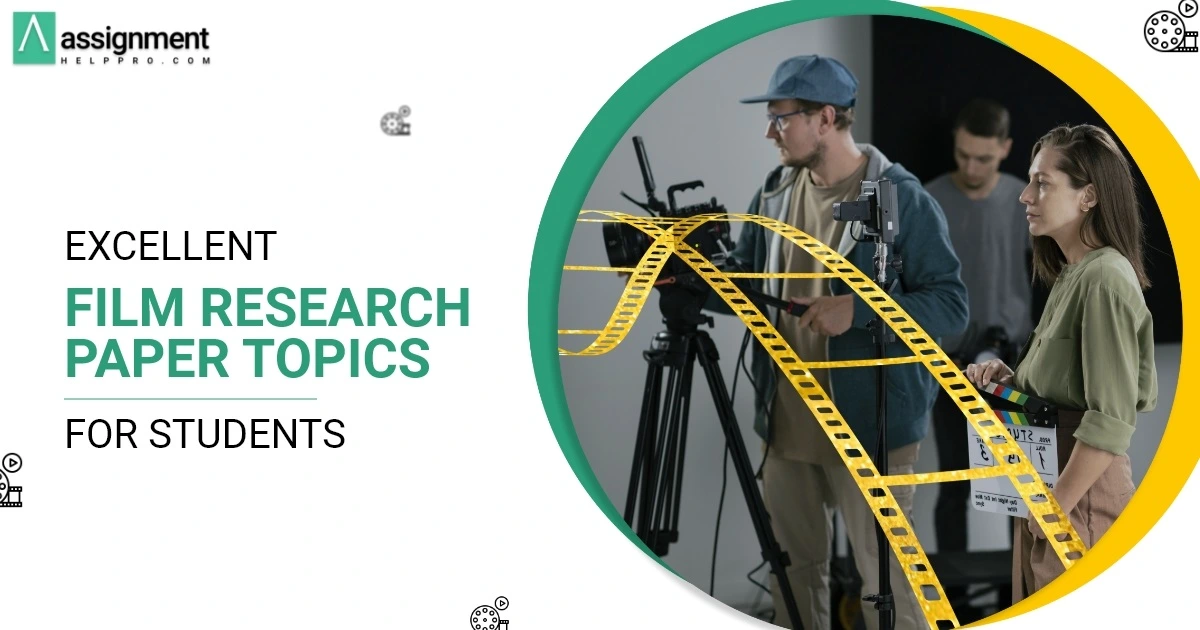
How to Find a Good Topic for a Film Research Paper?
In film studies, there are plenty of film research paper topics available. Out of those topics, you will have to identify a good topic for your assignment. The topic selection becomes easier if your professor gives a set of ideas or themes for you to choose from. Sometimes, your professor will ask you to create your own idea for research. At that time, choosing one right topic from endless topics would become hard.
Are you confused about how to identify the right film research topic? Don’t worry! Here is what you will have to do to find out a good film dissertation topic of your choice.
- Create a list of your favorite filmmakers, films, or genres. Then, based on your interest or category, narrow down your search.
- It is not necessary to go with topics related to your favorite filmmaker or film. You can also think about a certain film history period and research the film techniques, themes, etc. used in that period.
- Deep research is necessary to identify the right topic. By exploring credible sources such as literature, books, media platforms, and published research papers, you can collect more research or dissertation ideas.
- From the list of ideas gathered, you can choose a topic that matches your area of interest and has a wide research scope.
- If the topic is too broad, make sure to narrow it down. Because the narrow topic will help you cover all the major points before the deadline and keep your readers engaged.
Also, before finalizing the topic, check whether your selected topic stands in line with your professor’s research paper writing guidelines.
List of Excellent Film Research Paper Topics
Film studies is a broad field of study where you can conduct research on any areas such as film technology, film history, film genre, music, sound design, etc. Here, we have listed some best film research paper topic ideas in various categories. Go through the whole list and pick an ideal film topic for writing your academic paper.
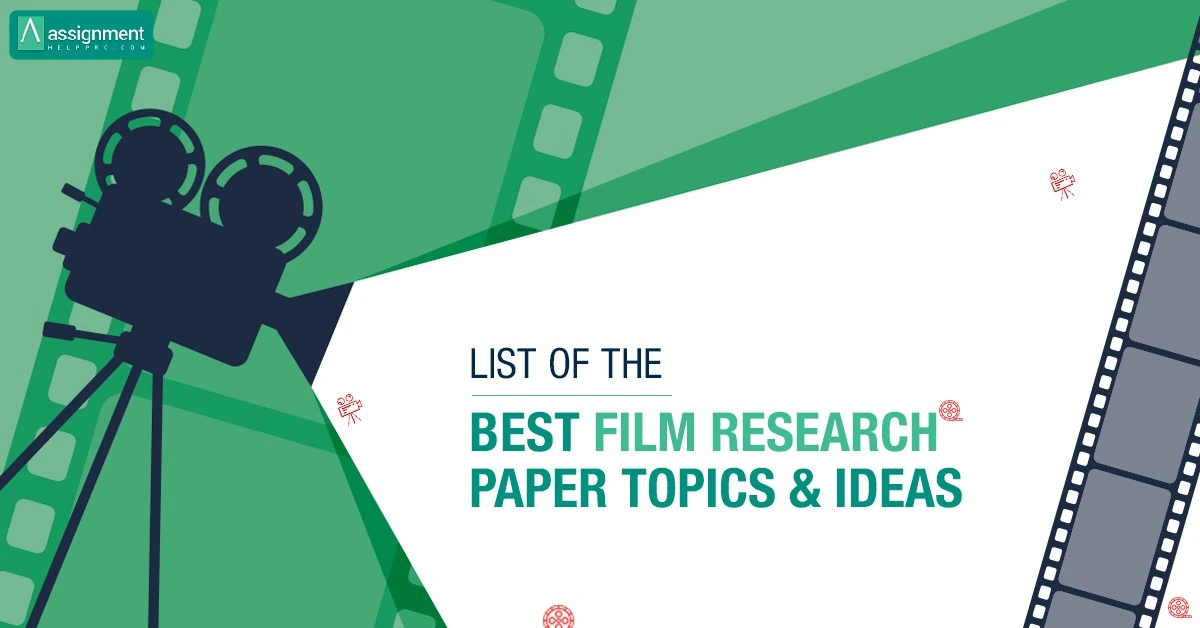
Film History Research Paper Topics
- Movies about the history of religions.
- The importance of representation in movies.
- African-Americans in cinematography.
- Science-fiction movies- History
- The globalization of popular culture: Hollywood vs. Bollywood.
- Discuss the contribution of Fellini to cinematography.
- How technology has transformed the art of filmmaking?
- Discuss the contribution of women in the film industry.
- Hitchcock’s sacred power.
- The progress of animation in movie production.
- The effect of the film industry on different generations.
- Analyze the life before CGI.
- War Justification in American Cinema
- Charlie Chaplin and the Silent Movie Era.
- Changes in Hollywood and its dominance of cinematography.
- Evolution of Hollywood movies
- Discuss the cinematographic excellence of Roger Deakins
- History of British Cinema
- The Lion In Winter – A movie that nailed historical accuracy
- Discuss the contribution of Steven Spielberg
- Song of the Road – The first Indian movie at the Academic Award
- Analyze the impact of LGBTQ+ Representation in Contemporary Cinema.
- War Justification in the worlds’ Moving Pictures
- Changes in Hollywood and Its Dominance of the Cinematography
Horror Film Research Paper Topics
- Special effects in horror films.
- Explain the Folklore elements in the screenplay.
- Discuss the popular fear elements used in horror films.
- Alfred Hitchcock: The Master of Suspense.
- Psychological and behavioral responses to horror films.
- The fusion of comedy and horror.
- Racial discrimination in horror films.
- The use of religion in horror movies
- The youngsters’ perception of horror films.
- The idea of suspense in horror films.
- George Romero: The greatest director of horror movies of all time
- Compare the works of Sam Raimi and John Carpenter
- Michael Myers: The most famous killer in horror movies
- Chucky: One of the most scariest movies have ever made
- Discuss the use of Psychopathy and Delusions in horror films with examples
- A side effect of watching horror movies
- The reflection of society’s fears in horror movies
- The specific use of genre theory in the horror game
- The human fondness for horror movies
- Monster creatures from horror movies
- Stephen King and his legacy in the genre of horror
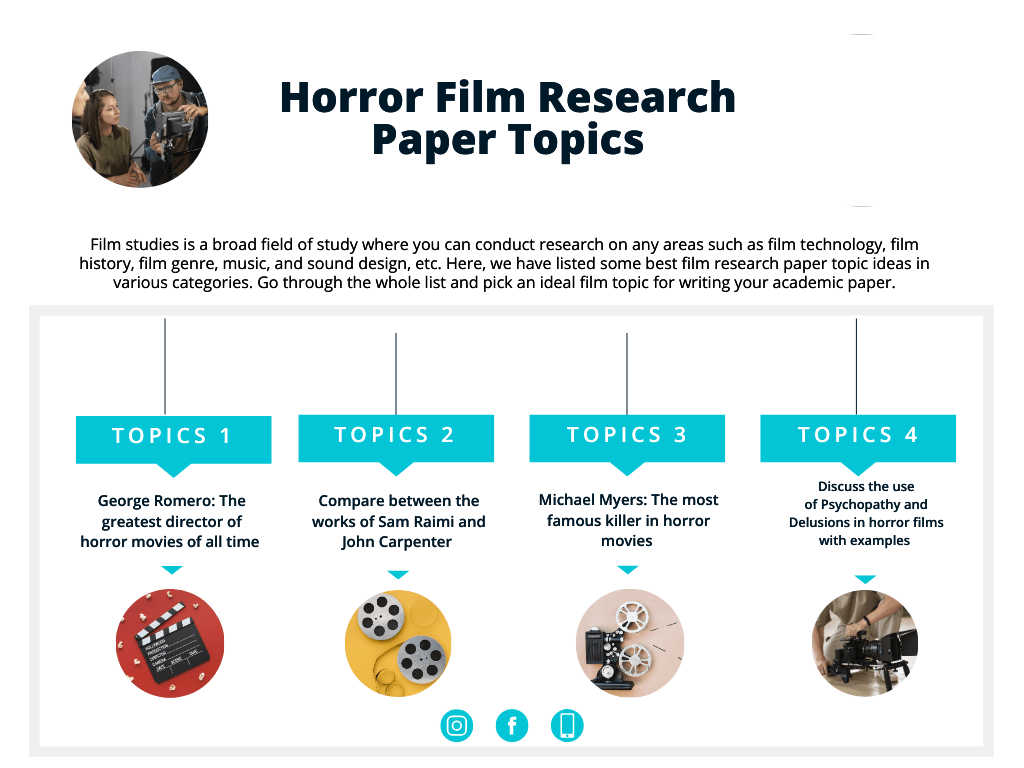
Film Music Research Paper Topics
- The use of music in modern movies.
- The power of recorded nature sounds.
- The art of sound design in movies.
- The progress of music in films.
- The effects of music on movie perceptions.
- Bollywood-made musicals.
- The art of storytelling with sound
- Picture versus sound.
- Broadway musicals are made into movies.
- The development and cultural influence of musicals in the 20th century.
- Christina Aguilera’s career in musicals.
- Classical Opera versus Modern Music on Screen
- Analyze the soundtrack and music in films.
- Cradle of future pop stars.
- The mental effects created by music in movies.
- Theoretical aspects of studying film music.
- Music in cinema as a director of the semantic series.
Monster Film Research Topics
- Mythology in monster movies.
- The aspects of human monstrosity in films.
- The history of monster movies.
- The science behind Hollywood’s movie monsters.
- Explore fear in monster movies.
- Vampires through history: The evolution of the undead cinema.
- Examine the portrayal of aging in Cinema.
- The Monster vs. Frankenstein: Who Is More Human?
- The psychological appeal of movie monsters.
- Discuss the monster movie culture in the 21st century.
- Compare Prophecy (1979) and It Came from Beneath the Sea (1955)
- Discuss the first monster film
- Impact of monster movies on children
- A side effect of watching monster movies
- Use of VFX and Special Effects in monster films
Outstanding Film Research Paper Topics
- TV shows: A new film franchise.
- Masculinity and violence in films.
- Movies through the eyes of their directors.
- What are the effects of censorship on films?
- The role of colors in movies.
- Comics and Superheroes in films.
- The role of animals in movies.
- Investigate the Use of AI in Film Production, Visual Effects, and Storytelling.
- Animation: Giving life to sketches.
- The cultural effects of war movies.
- The power of documentary movies to change the world.
- Walt Disney and the psychosocial implications of his characters.
- The ethical issues involved in documentary filmmaking.
- The effects of Hollywood stereotypes.
- The art of creating stories using video editing.
Unique Film Research Paper Topics
- The role of film directors in giving life to stories.
- The important qualities of a successful movie director.
- The role of film critics and reviews on box office performances.
- Transitions and visual effects in movie editing.
- The social and cultural effects of movies .
- Contribution of Arthur Conan Doyle to detective movies
- Good versus Evil: A classing theme of the movie
- Discuss the cinematic innovations that have changed the movie industry
- Discuss the most important inventions the movie industry experienced within the past two decades
- The directorial debut of Tom Hanks
- How depression years are depicted in American movies?
- Discuss the technological evolution of the global film industry from 1975 to 2022
- The Works of Christopher Edward Nolan and Sam Raimi: A comparative analysis
- Evolution of Indian cinema from 1950 to 2022
- Discuss the contribution of Edgar Allan Poe to detective movies
- Compare and contrast European and Asian horror movies
- Discuss the comparative mythology and dark side in screenwriting
- Critical analysis of the silent era of the movie industry
- How African-Americans get represented in American movies
- Analyze the evolution of the zombie in contemporary cinema
Interesting Film Dissertation Topics
- The importance of a character in a film.
- The influence of the digital revolution on the film industry?
- Drama as a cultural phenomenon.
- Diverse film elements are needed for creative writing.
- The evolution of urban filmmaking.
- Difference between commercial cinema and non-commercial cinema.
- The usage of irony in films.
- Discuss the popular cinema genres in the world.
- Analyze the localization efforts of Hollywood films.
- The relationship between literature and film.
- Explore the role of men and women in blockbuster movies.
- Assess the importance of global film awards in improving the quality of filmmaking.
- Analyze the roles given to black actors and white actors in Hollywood movies.
- Study the key differences between theater performances and film shooting.
- Analyze the principles of filmmaking with respect to casting and editing.
- Discuss the impact of online streaming services on the quality of traditional cinema content.
- Study the impact of film in a rural area.
- Explain the role of a short film in making a feature film.
- Research the cultures of theater and film in the big city of a country.
- Explain the economics of cinema.
Read more: Demonstration Speech Topics and Ideas That Will Impress the Audience
Brilliant Film Research Topics
- The art of cinematography.
- Indie Movies: An attitude or a genre?
- Good versus Evil concept in movies.
- The cinema of shortcuts.
- Multiple actors play a single role.
- The influence of social media on movie results.
- What makes a great film director?
- Humanity versus technology in modern films.
- The role of fashion design in the film industry.
- Video streaming platforms and the future of cinema.
- Success factors of the American film industry.
- The influence of movie genres on different audiences.
- Film Noir: A style expanding through genres.
- Comics in the film industry.
- The persuasive effectiveness of shortcuts.
- Freudian Practice in Cinematography.
- The effects of streaming platforms on cinematography.
- The idea of drama in movies.
- The psychological aspects of filmmaking.
- The art of storytelling in modern movies.
Impressive Film Research Questions
- Different Types of Narrative Structures in Screenplays and Books
- Violence and Masculinity in Hollywood Blockbusters.
- Looking for Truth in Film: Observational vs. Direct Cinema.
- Reconstructing atmospheres using ambient sounds: Recorded Nature Sounds.
- Comedy and horror combined in a chaotic genre mashup.
- History of the Vampire: The Cinematic Evolution of the Dead
- Using the content of documentaries, kids may develop their interethnic tolerance.
- The Cultural and Educational Project of the Cinema Museum and Its Importance in Historical Education.
- The history of development and current status of the post-apocalyptic storyline in American movies.
- The characteristics of contemporary cinema in relation to the development of historical politics.
Awesome Ideas for Film Research Paper
- Digital Storytelling: Narrative Elements from Hollywood.
- Analyze the Personality Traits of the Best Film Directors.
- Musicals: from stage to screen.
- Analyze the animation in the Movies Frozen and Zootopia.
- Share your viewpoints about the use of mythology in horror movies.
- Analyze the hidden elements in Disney movies and their effects on children.
- Write about the history of the Japanese animation industry and new technology.
- Historical and Mythical Time in the Marvel and DC Series.
- Analyze the new developments in the area of illustrations.
- Explore the phenomenon of visiting film locations and the economic impact on local communities.
Film studies basically approach movies from historical, theoretical, and critical perspectives. To write a brilliant film research paper, from the list of 150+ topics recommended above, choose the best topic that matches your interest. In case, you are not sure what film research topic to select or how to write an informative film research paper, then contact us for help.
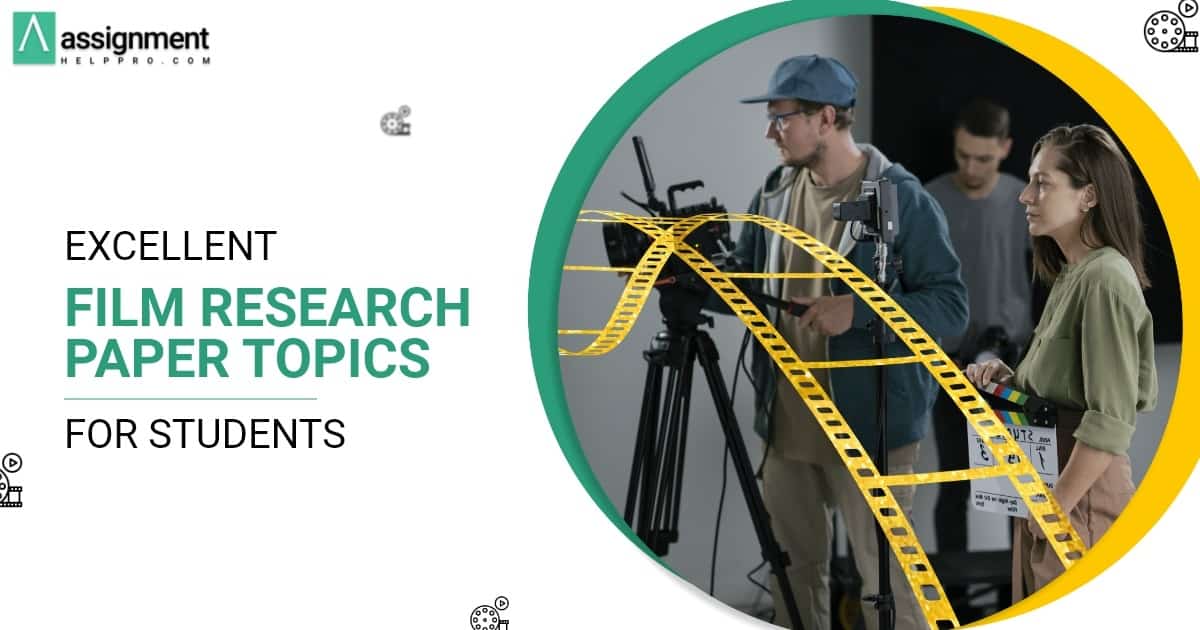
Related Post

110 Hard Words to Spell for Students and Adults

Learn How to Avoid Passive Voice in 3 Simple Steps

117 Best Greek Mythology Essay Topics For Students
About author.
Jacob Smith
I am an Academic Writer and have affection to share my knowledge through posts’. I do not feel tiredness while research and analyzing the things. Sometime, I write down hundred of research topics as per the students requirements. I want to share solution oriented content to the students.
Leave a Reply Cancel reply
You must be logged in to post a comment.
- Featured Posts
140 Unique Geology Research Topics to Focus On
200+ outstanding world history topics and ideas 2023, 190 excellent ap research topics and ideas, 150+ trending group discussion topics and ideas, 170 funny speech topics to blow the minds of audience, who invented exams learn the history of examination, how to focus on reading 15 effective tips for better concentration, what is a rhetorical analysis essay and how to write it, primary school teacher in australia- eligibility, job role, career options, and salary, 4 steps to build a flawless business letter format, get help instantly.
Raise Your Grades with Assignment Help Pro
- How it works

Useful Links
How much will your dissertation cost?
Have an expert academic write your dissertation paper!
Dissertation Services

Get unlimited topic ideas and a dissertation plan for just £45.00
Order topics and plan

Get 1 free topic in your area of study with aim and justification
Yes I want the free topic

Film and Theatre Studies Research Topics
Published by Carmen Troy at January 6th, 2023 , Revised On August 11, 2023
Introduction
Film and theatre studies focus on the critical analysis of experiential learning. Film and theatre have been popular areas of interest among students of arts. As a student of film and theatre, you will be expected to study cinema history and the social importance of cinematography and films to learn the techniques and methods used for the production of films. This blog post provides several film dissertation topics and theatre dissertation topics so you can make a meaningful contribution to the literature.
Here is our selection of film and theatre research topics that we think you should consider.
Topic 1: An Exploration of Gender Role in Blockbuster Films and the Perspectives of Assigning Roles
- Topic 2: A Comparative Study of Hollywood and Bollywood: An Exploration of Research of Movies
Topic 3: A Detailed Analysis of the Principles of Making Films: An Exploration of the Relevant Principles of Making Films
Topic 4: assessing the significance of awards for making a better film, topic 5: analysing female sexuality in the film: a detailed research on the perspectives of society, topic 6: an explorative study of the performances of an actor in theatre and film.
- Topic 7: An explorative study of the Cultures of Theatre and Film in the Big City of a Country
Topic 8: Detail Perspectives of the Impact of Theatre in the Urban Area
Topic 9: explorative research on the impact of film in a rural area, topic 10: the relevance of casting and editing for making a film.
These film and theatre dissertation topics have been developed by PhD-qualified writers of our team , so you can trust to use these topics for drafting your dissertation.
You may also want to start your dissertation by requesting a brief research proposal from our writers on any of these topics, which includes an introduction to the topic, research question , aim and objectives , literature review along with the proposed methodology of research to be conducted. Let us know if you need any help in getting started.
Check our dissertation examples to get an idea of how to structure your dissertation .
Review the full list of dissertation topics for 2022 here.
You may also want to review our arts dissertation topics, fashion dissertation topics and literature dissertation topics if you don’t find an intriguing idea below.
2022 Film and Theatre Studies Research Topics
Topic 1: the role of writers’ creativity in film’s success- a comparison between hit and flop hollywood movies.
Research Aim: This study aims to find the role of writers’ creativity in a film’s success in Hollywood. It will show how the writer’s imagination, emotions, creativity, and other factors affect the movie’s story. And how does it affect its success when it comes to the cinema? It will compare and contrast various successful and flop Hollywood movies to analyze whether the writer’s creativity is crucial for the movie or not. Lastly, it will recommend whether producers give the writer’s creativity prime attention or not.
Topic 2: Impact of Online Streaming Services on Traditional Cinema’s Content Quality and Investments - A Case of Netflix TV Shows Production
Research Aim: This research intends to find the impact of online streaming services on traditional cinema’s content quality and investments. It will show whether the introduction of online content besides mainstream cinema has affected its content or continues the way it used to create. It will use Netflix as a case study to show whether its introduction and significant investments affected the Cinema equilibrium in terms of investments in cinema and content produced by it. Lastly, it will indicate whether both models can work simultaneously or if one has to give up.
Topic 3: Do Film Sequels Overshadow the Original Story? Or Do they Help to Reconnect with the Original Story? A Case of “The Lord of the Rings”
Research Aim: This study sheds light on the impact of film sequels on the success of the original story. It will show whether sequels overshadow the actual story or do they help to reconnect with the original story. Moreover, it will find how factors such as the introduction of new characters and actors, replacement of old actors, addition and removal from the actual story, etc., affect the success of the original story.
Topic 4: The Economics of Cinema: Impact of Large Production Houses’ Monopoly in Production and Distribution on the Quality of the Movies
Research Aim: This study assesses the impact of large production houses’ monopoly in production and distribution on the quality of the movie. It will show that these economic actors control production and distribution factors in the movie markets. It will see how big production houses operate in Hollywood and influences the entire Hollywood economic process of movie production, distribution, rights allocation, etc. Lastly, it will also show how small players penetrated this market of strong entry to a barrier.
Topic 5: Does a Script Makes a Movie Successful or the Actors? An Exploratory Analysis Finding the Factors which Make a Movie Successful
Research Aim: This research will identify the factors which make a movie successful. It will specifically find whether a good script makes a movie successful or the actors. It will assess various movies through a film literature framework to see whether a specific movie was actors-dominated or script overshadowed the actors, or it was a mix of both. Moreover, it will show how a film producer can utilize both to make a good movie.
Film and Theatre Dissertation Research Topics
Research Aim: The research aims to investigate and analyse the role of gender in doing blockbuster films. The aim of the research seeks to understand the importance of gender roles in assigning a task. The aim of the research explores the roles of genders to discover new areas of filmmaking.
Topic 2: A Comparative Study of Hollywood and Bollywood: An Exploration Research of Movies
Research Aim: The research aims to explore the different perspectives of Hollywood and Bollywood movies and explore the areas for improvement. The research explores the comparisons between these two types of film. The study supports various arguments about making two different types of movies.
Research Aim: The relevance of the research focuses on the principles of making films. The research highlights the importance of utilizing principles in the field of theatre. The research aims to explore various perspectives of principles that help to justify the topic of the film.
Research Aim: The research aims to evaluate the importance of awards for making a good film. The aim is to focus on the detailed analysis of the awards and their cultural perspective on making a film.
Research Aim: The research aims to analyse the perspectives of society in the case of representing female sexuality in the movie. The study analyses the stereotypical presentation of women onscreen that describes how women were initially treated in society. The detailed analysis of the research explores the role of film in highlighting a sensitive issue of women.
Research Aim: It studies the detailed analysis of the actor’s performances and how external and internal factors affect the performances of actors in a film.
Topic 7: An explorative study of the Cultures of Theatre and Film in the big city of a country
Research Aim: The aim of the research is in making a detailed exploration of the cultures of theatre and film. It highlights the differences in culture from both perspectives.
Research Aim: The research aims to analyse the impact of theatre and its advancement in an urban area. The aim is to explore the reflection of theatre on the mind of a human being.
Research Aim: The aim of the research focuses on the impact of film on the mind of the people of rural areas. It explores the forms of various films that create an effect on the life of the rural area.
Research Aim: This research highlights the importance of casting and editing and its critical casting and editing perspectives in film. It focuses on the principles of casting and editing for making a film.
Topic 11: Perspectives of Youth for Making a Cinema: A Detailed Analysis of the Influential Factors of Making a Cinema.
Research Aim: It highlights the mindset of youth for making a cinema. It focuses on the factors that influence making a successful piece of art.
Topic 12: The Role of the Short Film in Making a Big Cinema
Research Aim: The research focuses on making a short film can be an essential step for making a big one. This research highlights the various perspectives of making a short film. It helps to explore the historical perspectives of making a big cinema.
Topic 13: A Detailed Exploration of the Impact of History and Culture on Making Modern Cinema
Research Aim: The research focuses on the importance of history and how it impacts making modern cinema. It highlights the steps of records of cinema.
Topic 14: A Critical Analysis of Horror Movies: A Case Study on a Horror Movie
Research Aim: The aim explores the perspectives of horror movies and it impacts society. It supports arguments based on evidence.
Topic 15: An Exploration of the Revolution of the Movie with Perspectives on History and Culture
Research Aim: The research aims to explore the evolution of cinema’s history and highlight every perspective of the revolution. It focuses on the impact of the revolution on making a film.
Free Dissertation Topic
Phone Number
Academic Level Select Academic Level Undergraduate Graduate PHD
Academic Subject
Area of Research
Frequently Asked Questions
How to find film and theatre studies dissertation topic.
To find a film and theatre studies dissertation topic:
- Watch diverse films and plays.
- Analyze themes, techniques, and social relevance.
- Research historical contexts.
- Explore theoretical frameworks.
- Identify unexplored areas.
- Select a topic resonating with your passion and academic scope.
You May Also Like
Need interesting and manageable Twitter Marketing dissertation topics? Here are the trending Twitter Marketing dissertation titles so you can choose the most suitable one.
Today’s healthcare industry requires highly skilled nurses who specialize in critical care. Critical care nurses have a great chance of success as the demand for skilled nurses continues to grow.
We have collected a list of 35 dissertation topic ideas on tort law curated by professionals of the subject to help you with a tort law dissertation.
USEFUL LINKS
LEARNING RESOURCES

COMPANY DETAILS

- How It Works
Chapman University Digital Commons
Home > Dissertations and Theses > Film and Media Studies (MA) Theses
Film and Media Studies (MA) Theses
Below is a selection of dissertations from the Film and Media Studies program in Dodge College of Film and Media Arts that have been voluntarily included in Chapman University Digital Commons. Additional dissertations from years prior to 2019 are available through the Leatherby Libraries' print collection or in Proquest's Dissertations and Theses database.
Theses from 2024 2024
Intolerable Masculinity: Screening Men's Shame and Embracing Curious Futures , Cole Clark
Embracing the Wound of Contingency: Transcribing Reality in Supernatural Horror and Found Footage , Mason Dax Dickerson
Bluey And Adult Fandom: The Importance Of Play In Culture , Olivia C. Gerzabek
Independent Visions of Marginal America: Reimagining a Nation Through Outsiders, Searching, and Non-Arrival , Z Evan Long
From Film Sets to Front Lines and Back Again: Reinventing Star Image in Post-World War II Hollywood , Livia Belen Lozoya
Animating Gender: Conflicting Narrative and Character Design in Gravity Falls , Laine Marshall
Real to Reel: The "Third Gender" Narratives and Queer Identity in Rituparno Ghosh's Bengali Films , Manjima Tarafdar
Cinema's Poetic Function: Creating an Amorous Distance , William Yonts
Theses from 2023 2023
Desire for Transformation: The Actualization of Self-identity Through Change In the Films Raw and Titane , Owen Bradford
The Rape-Revenge Genre in the Digital Age of Heightened Visibility: The Rise of Female Storytellers and Fourth-Wave Feminism , Marynell Dethero
The Audrey Hepburn Image: Stardom, Gendered Authorship, and Creative Agency , Livi Edmonson
How Donald Trump and the 2016 Presidential Election Eclipsed Frank Underwood’s Election in ‘House of Cards’ , Charna Flam
Balancing Multiple Worlds: The Multiverse and the Fractured Asian American Experience in Everything Everywhere All at Once (2022) , Austin Kang
The Disintegration of Marriage in Ryusuke Hamaguchi’s Happy Hour (2015) , Afra Nariman
What Are You Crying For?: Renegotiating White Masculine Hegemony through Melodramatic Excess in the 1990s Films of Tom Hanks , Bryce Thompson
“Let’s Do The Time Warp, Again!” The Rocky Horror Picture Show as Hysterical Theatre , Frances Wendorf
Theses from 2021 2021
(De/Re)Constructing ChicanX/a/o Cinema: Liminality, Cultural Hyphenation, and Psychic Borderlands in Real Women Have Curves and Mosquita y Mari , Diana Alanis
Obsessed With the Image: Vulgar Auteurism and Post-Cinematic Affect in the Late Films of Tony Scott , Ethan Cartwright
The Ben-Hur Franchise and the Rise of Blockbuster Hollywood , Michael Chian
Cinematic Palimpsests: Polysemy and In(ter)dependency in the Spectator Experience , Lyric Luedke
Beyond the Image: Marilyn Monroe, Shelley Winters, and The Method , Emily K. Oliver
Layer Cake: Post-Cinematic Aesthetics and the “Social Justice Impulse” in Kaneza Schaal's Jack & , Amber M. Power
Re-animating Post-Digital Cinema: [Animated] Fluidity and Hybrid Aesthetics in Tomm Moore’s Celtic Trilogy , Thomas James Schwaiger
Curation of the Video Art Exhibition in the Museum , Kamla Thurtle
Pennies from Heaven: Death and the Afterlife in World War II Fantasy Films , Elise Williamson
Theses from 2020 2020
Unreal Reality: Post-socialist China's Massive Infrastructural Agenda in Jia Zhangke's "Three Gorges Films" , Weiting Liu
Smell as Self-identity: Capitalist Ideology and Olfactory Imagination in Das Parfum’s Multimedia Storytelling , Xinrong Liu
Revitalizing Hollywood Stardom: Classical Star Power and Enduring Marketability at Warner Bros. in the Beginning of New Hollywood , Tham Singpatanakul
Bong Joon-Ho’s Transnational Challenge To Eurocentrism , Lisa - Marie Spaethen
Theses from 2019 2019
Stardom, Spectacle, Show, and Salability: United Artists and the Founding of the Hollywood Blockbuster Model , Jessica Johnson
Iranian Cinema in Transition: Relative Truth and Morality in Asghar Farhadi’s Films , Mazyar Mahdavifar
AI Film Aesthetics: A Construction of a New Media Identity for AI Films , Priya Parikh
A Cauldron of Chaos and Cultivation: Rediscovering Disney Animation of the 1980s , Thomas Price
Inflicted Viewing: Examining Moral Masochism, Empathy, and the Frustration of Trauma Cinema , Kira Smith
Representative Biodiversity: The Ecosystem of Cartoon Network , Carl Suby
Bending Family Friendly into Fear: Nostalgia, Minstrelsy and Horror in Bendy and the Ink Machine , Isabelle Williams
Theses from 2014 2014
The Criterion of Quality: A Paratextual Analysis of the Criterion Collection in the Age of Digital Distribution , Jonathan Charles Hyatt
- Collections
- Disciplines
Advanced Search
- Notify me via email or RSS
Author Corner
- Submit Research
- Rights and Terms of Use
- Leatherby Libraries
- Chapman University
ISSN 2572-1496
Home | About | FAQ | My Account | Accessibility Statement
Privacy Copyright
Media Dissertation Topics
The aim of writing a dissertation or thesis is to create an original piece of research work on a clearly defined topic. However, writing a dissertation can be very difficult, especially if the student fails to have a concise research topic. Therefore, the first step to writing a successful dissertation is to identify the area that the student wants to research and then, after a little study of this area, form a clearly-defined topic. A concise research question is very important as it ensures that the dissertation is focused and flowing, and enables students to demonstrate how their research area is relevant. It is also important that the student chooses media dissertation topics that are of interest and bring new insight into the topic. However, the media dissertation topic should have enough literature for the student to form their unique argument, because a dissertation is not a PhD, and does not aim to change the field of research; rather, dissertations are focused on providing a different and unique viewpoint on the existing research and literature. The following article looks at a variety of different and relevant dissertation topics on media, including journalism, mass communication and music, and then identifies several good media dissertation topics and research questions to help the student to identify an area of interest, as well as how to form a good research question. Selecting media dissertation topics can be a challenging task, and therefore this article suggests a wide range of topics within the subject areas of freedom of expression, censorship, culture, communication, government monitoring and social networks.
Journalism and Privacy Dissertation Topics
Journalism and freedom of expression dissertation topics, the artist, censorship and media dissertation topics, cultures in media dissertation topics, music, culture, the artist and intellectual property, communication in the digital age dissertation topics, communication and government monitoring dissertation topics, communication and social networks dissertation topics.
Journalism and privacy have become very hot media-related dissertation topics, especially in the growing world of celebrities and in the developing era of everyone keeping up-to-date about happenings in the world. However, journalism has also brought the concern of privacy to the forefront, as questions are raised about privacy versus transparent journalism. Certain media dissertation topics consider how far a journalist can venture into an individual’s private life without breaching the individual’s fundamental right to privacy (Article 8 of the European Convention of Human Rights), and consider whether there are some different criteria applied for private individuals or popular celebrities. Some topics within journalism and privacy that you could cover within your media dissertation include:
- Although English law does not provide a specific law for privacy, does the common law system provide adequate protection of an individual’s private life from journalists?
- The European Convention of Human Rights has introduced the concept of proportionality; does the United Kingdom’s legal regulations and precedent adopt proportionality towards privacy of individuals and journalists?
- The case of Princess Diana has called into question the ethics of journalism and their invasion into the private life of the public. Should there be stricter regulations?
- The European Law of Human Rights has called for a specific law of privacy to protect individuals from journalists: Does the UK need to adopt this approach?
- A case law approach to Journalism and show-business: Do celebrities, by nature of their career, have a reduced right to privacy?
- The economics of journalism are very important. If there is a stricter approach to protecting the private life of the public, will journalists still be able to engage and maintain their readership?
- The legal case of Naomi Campbell in the UK has highlighted the issue of celebrities being afforded full privacy rights like other citizens. How can the right balance be achieved by journalists?
- Judges in the UK and the USA have argued that celebrities who court the media, by their personal actions and economic gains, should not use privacy laws when and as they wish. Discuss.
- Across Europe there are varying approaches by the courts to protecting privacy. With the European Court of Human Rights and the EU do we need one consistent approach?
- The case of Yahoo v Licra has brought into question the very strict protection of privacy in France. Does the French approach comply with the European Convention of Human rights under the principles of margin of appreciation?
- Data Protection and Journalism. How does the Data Protection Act 1998 influence the issue of peoples’ privacy in journalism?
- The UK currently has a privacy statute set out in the Human Rights Act 1998. However, does journalism operate in the public’s interest?
- Considering privacy in journalism, two major conducts are considered offensive – publication of private facts and intrusion. How can these conducts be regulated?
Journalism and the press offer a platform for various voices to be heard. However, the flipside of protecting the privacy of individuals is the important role of the media as the public watchdog. Indeed, at the international, regional and national level, journalists serve as the public’s watchdog, activist and custodian. These roles are protected by the fundamental human right of freedom of expression. This area discusses the extent to which courts can extend their protection over journalists, and how journalists can avoid court cases. Specific topics for your media dissertation could include:
- Reynolds v Time Newspapers is the key case for recognising the role of press as the public’s watchdog. What are the implications of this case on the courts’ approach to journalists?
- Sources are essential to journalists. Should the freedom of expression laws be used to protect these sources from cases that can result in breach of confidence?
- The First Amendment of the United States Constitution has a tenet that supports a very balanced approach to freedom of expression and journalism. Should the UK adopt their approach?
- Are there any justifications for the journalist’s right of freedom of expression to be breached in the interests of a democratic society?
- Some argue that freedom of expression and the free press is the cornerstone of a democratic society. A comparison of citizens’ attitudes to a free press in the UK and US.
- Journalism relies on the right of freedom of expression; however, should this give journalists the license to destroy the lives of individuals? A discussion of the balance between journalism and responsible reporting.
- The “name and shame” approaches adopted by many newspapers have been questioned as unethical, Is this so, or does this strategy confirm their status as the public’s watchdog?
- Watchdog is a very important consumer protection programme. Is this an example of responsible journalism?
- Breach of confidence is a major factor that contradicts Data Protection laws and regulations; how far can the journalist’s right to freedom of expression be used as a defence of such a breach?
- Is there a different level of freedom of expression for tabloids and broadsheets? The News of the World versus The Times.
- UK citizens have a negative right to freedom of expression under the common law. How does this impact the country’s journalism?
- The Sunday Times vs UK case highlights how courts infringe on journalists’ freedom of expression. How can courts extend their protection over journalists?
- Freedom of expression is protected under Article 10 of the Human Rights Convention. Can journalists leverage on this legislation?
Censorship is the suppression of speech, public messages, and other similar information, that can be provided by journalists, based on the assumption that such material can be offensive, detrimental, delicate, politically incorrect or problematic as determined by government establishments or by public consensus. Therefore, censorship can be referred to as the government’s approach to controlling the media for the good of the society. The question is how far can the government go to protect society and is it really justified or merely a form of citizen control? There are two forms of censorship; the first is direct censorship, which is the banning of certain mediums and topics, while the second form is propaganda censorship, where the media and artists feed the government viewpoint. This is a controversial area, which offers various unique media dissertation topics, including:
- Direct censorship is a direct breach of an individual’s human right to a free press. Discuss in relation to UNDHR
- Journalists have a moral right to provide a balanced approach to the news; however, it is argued that the media is highly politicised. The case study of Fox News in the US.
- Iran currently has a strict censorship programme in relation to its media. Does this approach protect the integrity of the country or is it a form of state control?
- Were the dossiers released by the UK and US government prior to the Iraq war an example of the state using the media for propaganda?
- A review of the differing viewpoints about banning pornography within an independent or democratic society: Is this a form of censorship??
- The Spycatcher Case illustrates that the English courts will allow censorship if there is a threat to national security; however, should there be a limitation to the extent of legitimate whistleblowing, and when does whistleblowing constitute a crime?
- Art has been an object of censorship over the years to protect the morals of the community. Some would argue that certain artistries, such as the BODYWORX art show, is immoral, but has not been censored. How does this compare to the display of foetuses and other controversial artistries?
- Censorship, through propaganda, appears to be more subversive in a democratic society because it is hidden behind supposed legitimate laws. Case Study: The war on terror.
- Political correctness is the new form of censorship in a democracy. Has the liberal view on tolerance caused a breach of the rights that they aim to protect?
- The recent cases on the right of an individual to wear religious symbols have brought into question whether the UK is now censoring the right of religious association. Can this and other similar cases be classed as examples of censorship?
- Censorship of controversial topics (violence, scandals, etc.) – Is there a balance between censorship and the ability to portray the true version of events?
- A review of strict censorship regulations: Does censorship form a barrier to wide-ranging dissemination of creative works in the Arab world?
- Implicit theories of censorship: Has the United States and U.K. Government institutions implemented censorship regulations that have created adverse conditions whereby journalists have to carry out personal-censorship to avoid prosecution?
Media, as a means of communication, has the potential to stretch and strengthen the human capacity for the transmission and exchange of information. The cultural value of media is dependent on those who control the mechanisms of media. For example, mass media, such as television, can produce significant cultural effects. Concerns about threats to media democracy have generated an exciting area for comparative research. Here are some media dissertation topics and case studies that you could research for your media dissertation:
- What is the role of cybernationalism in China?
- Facebook and Fears – A consideration of the ways in which social media networks have been implicated in digital terrorism.
- Celebritisation and class conflict – A critical analysis of British ‘structured reality’ programming and its impact on class identity.
- What is cyberviolence and how can it be regulated?
- Following terror attacks in France, social media has been used to disseminate information in emergency situations. What are public expectations in relation to media messages and crisis management?
- How does individualism-collectivism influence media use? A cross-cultural comparison between the USA and China.
- Can the media be used to breach cultural divides and erase stereotypical images? An argument for responsible journalism.
- Is the growth of media and film making, outside of Hollywood, important to ensure that all cultures are represented? The case of Bollywood.
- In the UK do the British media fail the North/South cultural divide? A comparison of BBC news broadcasting.
- Technological developments have influenced contemporary journalism and news culture. What is the fate of the modern newsroom?
- Considering the ‘multicultural question’, discuss the extent to which the Hall/Morely model of audience reception remains relevant.
- Examine postmodern views of media representation of significant cultural events.
- Identify key debates about how media influences questions of sexual difference and the performativity of gender.
Intellectual property is a key feature of a new idea that an artist puts into practice. In the past, copyright, patents and trademarks have limited the ability to reproduce the work of the artist. However, in the current age of advanced technology, there are less effective regulations and restrictions governing whether individuals can download pirated music and films. Debate about control, ownership, and the values of the artist lead to the question of whether using the work of an artist is, in fact, stealing. This is becoming a more prominent issue within an increasingly globalised and digitised media industry, and the subject would make for interesting media dissertation topics.
- The Agreement on Trade Related Aspects of Intellectual Property Rights (TRIPS) is the most important intellectual agreement of the 20th century. Discuss.
- There are legitimate situations in the name of education where breaching an artist’s intellectual property rights is permitted. Discuss.
- Intellectual property law fails minority cultural groups, their tribal music and art because it fails to understand communitarian ownership and prioritises the individual. Discuss.
- Copyright law is far more interested in the owner of the copyright, such as record labels, than the artists. Discuss.
- Using The X-Factor as a case study, present reasons why economics, rather than musical style, shapes the role of the music industry in popular culture.
- It is argued that in the UK there is no real choice in music, because there is a monopoly on record labels in the market. A comparison of the UK and Canada’s music markets.
- Music throughout the centuries has been linked to culture. However, in the UK there seems to be a distinct lack of cultural mainstream music. Does there need to be a promotion of British music culture?
- Do the beliefs and attitudes of consumers in the music market need to change to stop music pirating?
- Artists are changing the music market by allowing consumers to choose their price for music purchases. How will this change the face of the music market?
- The Americanisation of the music industry is destroying traditional musical forms. Debate whether cultural imperialism is evident in the context of music censorship in Iran.
- At the turn of the century, 80% of global publishing and recording revenues are appropriated by only five companies: EMI (UK), Bertelsmann (Germany), Warner (US), Sony (Japan) and Universal (Canada). Debate whether this monopolisation will continue.
- Evaluate the role of cultural intermediaries (Bourdieu, 1984) in relation to the active role that personnel in the music industry undertake in relation to the production of particular styles of music.
- The greater control that technology affords has led to more complex patterns of everyday music usage. Discuss.
Communication in the digital age has caused fears that individual privacy will be breached. For instance, different digital technologies have different conceptualisations of privacy. As with any broad social change, as well as fear come new forms of knowledge. The digital age has provided improved access to learning and education. Further to this, advances in communication technologies have supported activism and furthered freedom of expression. Here are some media dissertation topics within this area that you could research on.
- The Data Protection Act (DPA) is soon to be replaced by the EU’s General Data Protection Regulation (GDPR). Evaluate this change in data protection regulation.
- France, Germany and the UK have different approaches to Data Protection. Are any sufficient to deal with digital communications?
- Identity fraud and hacking behaviour has grown with the evolution of digital communications. Evaluate research into cybercrime perpetration by adolescents and young adults.
- Education has been improved in the digital age with faster communication and exchanging of ideas. Has this made traditional teaching methods less important?
- In light of the influence of micro-blogging on political campaigning, discuss the effectiveness of e-campaigning on Twitter as a more participatory process.
- Higher education in the digital era – discuss the impact of online forums on distance learning.
- Digital inequality may compound the existing rural-urban disparity in developing countries. Discuss.
- How has the use of the Internet in local economies kick-started sustainable development? A comparison of rural South Africa and rural India.
- Digital communication has been an important tool for human rights campaigners. A case study of Amnesty International’s email petitions.
- In the past, governments have tried to censor information as a form of control. With the emergence of projects such as WikiLeaks, examine whether the Internet has brought about democratic change.
- Does use of the internet stimulate political unrest in the Middle East?
- Virtual Communities of Practice (VCoP) is a useful analytic frame for examining the professional identity and status of media workers. Discuss.
- The individual has the power to design their own information environment. Evaluate Harper’s (1997) notion of the ‘Daily Me’.
- Large corporations and governments have developed new methods with which to analyse social media data. Discuss the implications that dominant uses of data mining and analytics may have for the public.
The growth of mass communication and the technology to enable this communication has brought many benefits. Technological advancement provides the individual with information at the touch of a button, as well as allowing them to participate in politics. The advancements have also provided cheaper and easier formats for communication. However, there are some significant problems, enabling governments to access individual’s private communications with greater ease. Thus, privacy of the individual is threatened. This includes ISP addresses asking for personal information on access and Internet providers allowing government access. Does this mean that although mass communication has benefits it also has significant problems? An important issue to many would mean any of the following topics could create a useful and well-read media dissertation.
- Is it ethical for Internet providers to allow government agencies to access private, individual, personal communications in the interests of justice?
- How does the UK government justify using mass communication interceptors, such as ISP address recording, to access private individual’s personal information?
- What are the implications of governments using the private individual’s access of mass communication as reason to investigate their personal communications?
- How are the boundaries blurring between mass and personal communication with the advent of blogs and social networking sites?
- Privacy is a key factor to limit journalists accessing personal information. How can the government justify breaching the same rights of an individual’s personal information?
- What is the nature of the participatory culture of politics and how has social media encouraged this to individuals and government?
- In enabling governments to access the private information of the individual, what implications has this for society and freedoms for the individual?
- Communication is key to the democratic process; how can individuals be assured of their rights and freedoms?
Digital communications are constantly changing and moving the goal posts at a rapid speed. Social networks, such as Facebook, are changing the way that many people use the Internet and are changing the face of the distinction of private and mass communication. Information is readily available, allowing the individual to participate in a virtual world. Communication is being enabled through the various platforms and mediums available to the user, such as blogs etc. The socialising processes are being updated in link with how social media is operated by connecting individuals. Social media also has its critics who accuse it of damaging personal communication and dumbing down the latest generations. It has also become the site of cyber bullying which on the internet cannot be fully governed. If the area of communication and social networks interests you, you could write about any of the following topics for your media dissertation.
- Social networks are the new form of mass communication, where blogs and ideas are exchanged; however, as technological processes are dynamic this is not the final product of social media. Discuss
- What are the effects of social networking sites on the economics of mass communication?
- Can social networking sites be used as a form of mass communication to trigger sustainable development and trading outside the ambits of corporations, such as eBay.
- Do social networks play an important role in mass communication, advertising and the economic growth of trading over the Internet?
- Are social networks more persuasive than traditional forms of communication, especially in regards to changing attitudes of individuals towards key debates?
- Can we use social networks and blogs as a platform of mass communication to change attitudes to consumers and companies? Social networks and consumer boycotting.
- Social media has been described as the digitalisation of word of mouth; how effective has this format been for marketing business?
- Cyber bullying has become a greater problem using social media. How can this be regulated?
- How true is it that social media can have an adverse effect on social interaction and the dumbing down of the English language?
Copyright © Ivory Research Co Ltd. All rights reserved. All forms of copying, distribution or reproduction are strictly prohibited and will be prosecuted to the Full Extent of Law.
- Bibliography
- More Referencing guides Blog Automated transliteration Relevant bibliographies by topics
- Automated transliteration
- Relevant bibliographies by topics
- Referencing guides
Experiences, Installations, and Tools: IMA Low Res Graduates Showcase Works at Thesis '24 Show
Thursday, Aug 1, 2024

The Interactive Media Arts Low Residency (IMA Low Res) Master’s Program, jointly offered by NYU Tisch School of the Arts and NYU Shanghai, hosted its “Thesis ’24 Show” on June 20 and 21 at the NYU Shanghai New Bund Campus. This year’s show featured innovative and immersive projects by Class of 2024 from seven countries, highlighting students’ technical skills, artistic vision, and personal insights. The two-day show attracted NYU alumni, broader university community as well as professionals from the design, art, and technology fields.

Visitors are experiencing the interactive installations designed by the IMA Low Res Class of 2024.
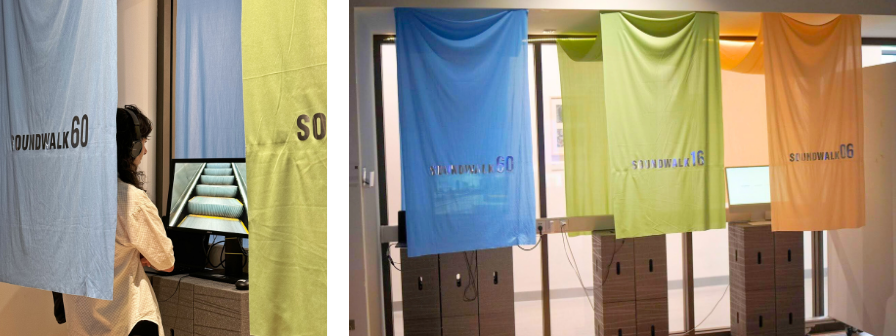
Xinyan Xu’s works The Walks use audio and walking as an invitation for listeners to rediscover, interact with, and forge a personal connection with the urban environment. The Walks are a series of soundwalks, 60, 16, and 06 minutes long, focusing on audio experiences in non-places.
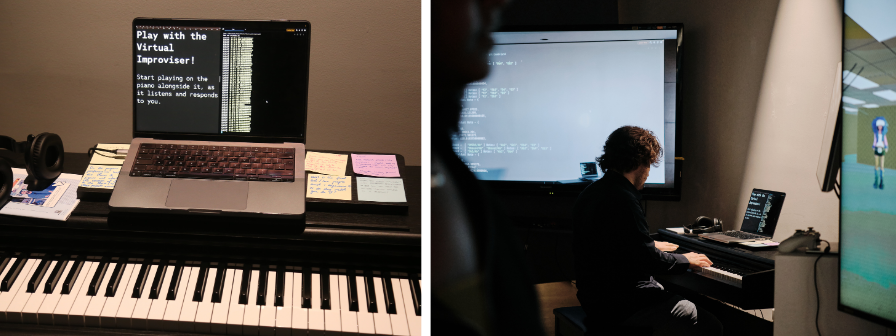
Pim Tournaye’s Improvisational Syntax is a running inquiry into co-creation in Human-Computer Interaction, through the medium of free improvisation. By playing with the dynamics of musical language, human and non-human agency, and transparency, the project uncovers the social conversation to be had with machines.

Mishka Morgan’s YUCKY WORLD is an immersive digital experience where players, embodying the “yucky girl”, navigate through a dreamlike content graveyard, created in poetic response to the growing pains and emotional turmoil of a social media-obsessed adolescence.
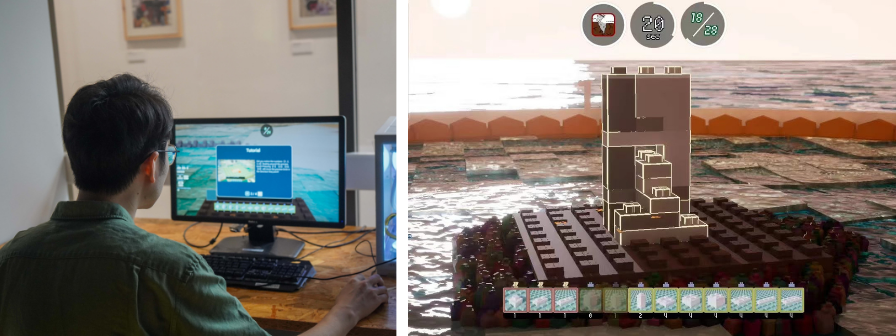
Zhuo Cheng’s project invites people to journey aboard a brave sailing vessel as Floatineer , tasked with building homes atop the ever-shifting waters. Users prepare to explore treacherous realms, facing the fury of nature's wrath. With each block placed, they build resilient havens for diverse inhabitants, each with their own tales to tell.

Feifan Qiao’s Glitch is an interactive VR experience that simulates a museum tour to critique misogynistic practices in the cultural industry.

Annika Santhanam’s PANO is an answer to OMNY, the surveillance capitalist manager of public transport in New York City. The PANO machine is an autonomous data-scrambling machine that fights harmful data practices by offering a solution outside of the system, using community-oriented action to keep people safe and their privacy private.

Jiang Hao’s Critique of Everyday Life crafts a visual performance using clips from everyday life, seeking to explore Henri Lefebvre’s philosophical work Critique of Everyday Life through a perceptual narrative approach.
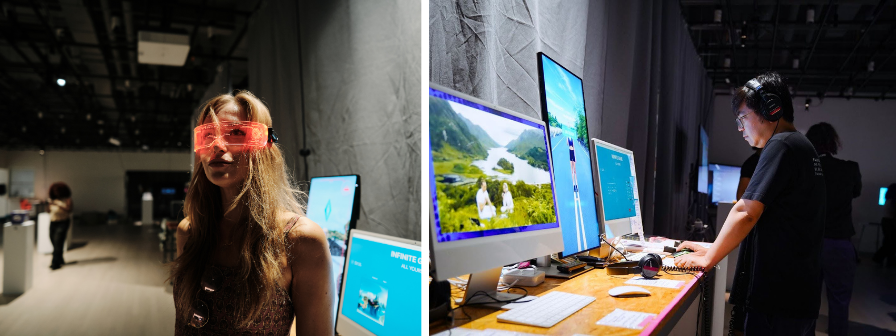
Caity Croft’s The Eternal Game is an evolving transmedia conceptual framework that exists in several forms: (1) a framework and series of tools to design your destiny; (2) a video series prototype imagining what the Spatial User Experience (UX) could look like if The Eternal Game quests were played in Extended Reality; (3) an AI music model you can play and remix, which is generated from my music.

Ella Pan’s Stray is an interactive video installation about the experiences of stray animals living in environments altered by human activities, and discusses the relationship between stray companion animals and human society.
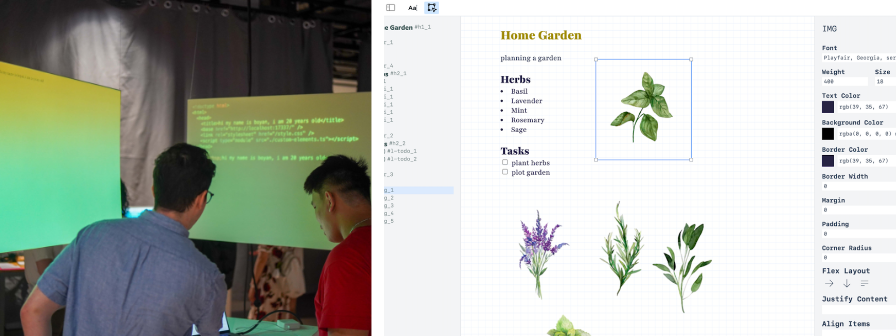
Eric Rabinowitz’s Lentil is a user-friendly multimedia web editing and publishing tool allowing non-technical creators to use the latest web platform capabilities for personal and community-oriented projects.
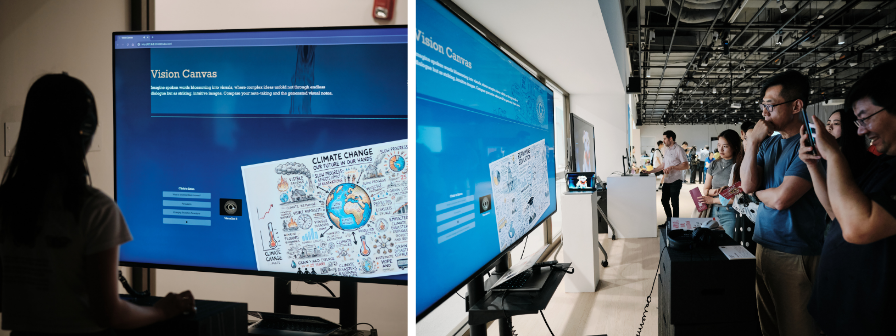
Phil Guo’s Vision Canvas is an AI-driven tool that translates spoken information into real-time visual narratives, simplifying complex ideas for universal understanding. This tool is an experiment for educational settings, corporate meetings, and any scenario requiring clear communication to spark conceptual thinking and co-creation. Vision Canvas fosters engagement, aids memory, and aligns teams by providing a visual common ground.

Chucen Chen’s Love as an Everyday Practice is an interactive installation that explores the definition of love and its representation as a daily practice. The artist creates an immersive environment reflecting the complex interplay between intimacy and fear in love by incorporating visual expression, storytelling, and traditional art methods, inviting viewers to engage with and reflect upon their own experiences of love and memory.
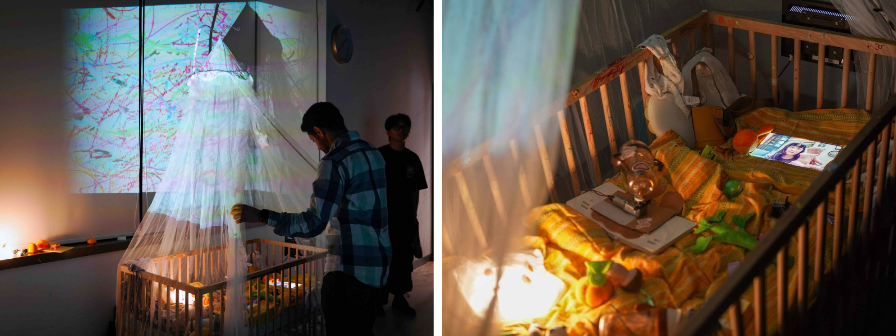
Lisha Yan’s project The Vessel is an immersive video installation capturing the poetic and chaotic intersections of motherhood, art, work, and social media, offering a humorous and critical lens on the complexities of modern life and identity as a mother in the digital age.
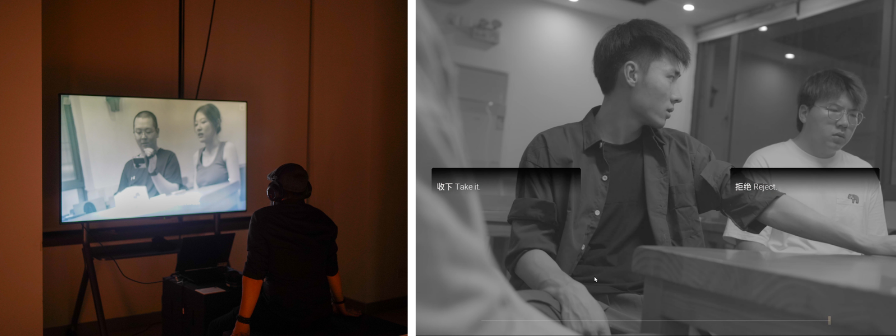
Liyanbing He’s Forgiveness is an interactive narrative film game that narrates the subsequent story of a school bullying event. You decide what you see in the film.
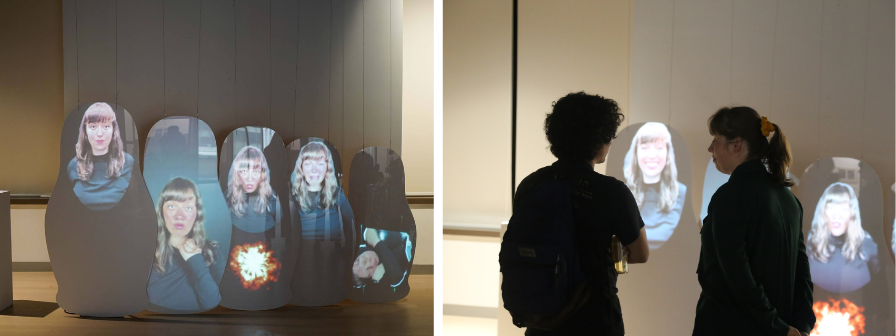
Anastasia Dor’s Face to Meet You! (给个面子) explores the tension between what we show, what others see, and what happens inside us. The artist both pays homage to her Russian heritage and gradually reveals layers of her auto-fictional self through the Matryoshka sculptures. The installation asks the audience to contemplate the toll of projecting a particular image of oneself.

Grace Song’s Enchanting Metamorphosis is an interactive art installation offering the experience of becoming a magical girl through wearable technology and a Ball Jointed Doll. Through digital stories and an interactive game, users get to experience a magical transformation from the virtual into reality.

Elisabeth Schifrin’s From: To: Considering the factory conveyor belt as a critical site of human-machine relationships, Dim Factory of Variable Production reconstructs this mass manufacturing machine to reveal different ways of being, both human and synthetic, in an attempt to propose an alternate automated future.

Angel Li’s ON/OFF CAMERA is a live streamer simulation game that reflects on the culture of the live streaming industry.
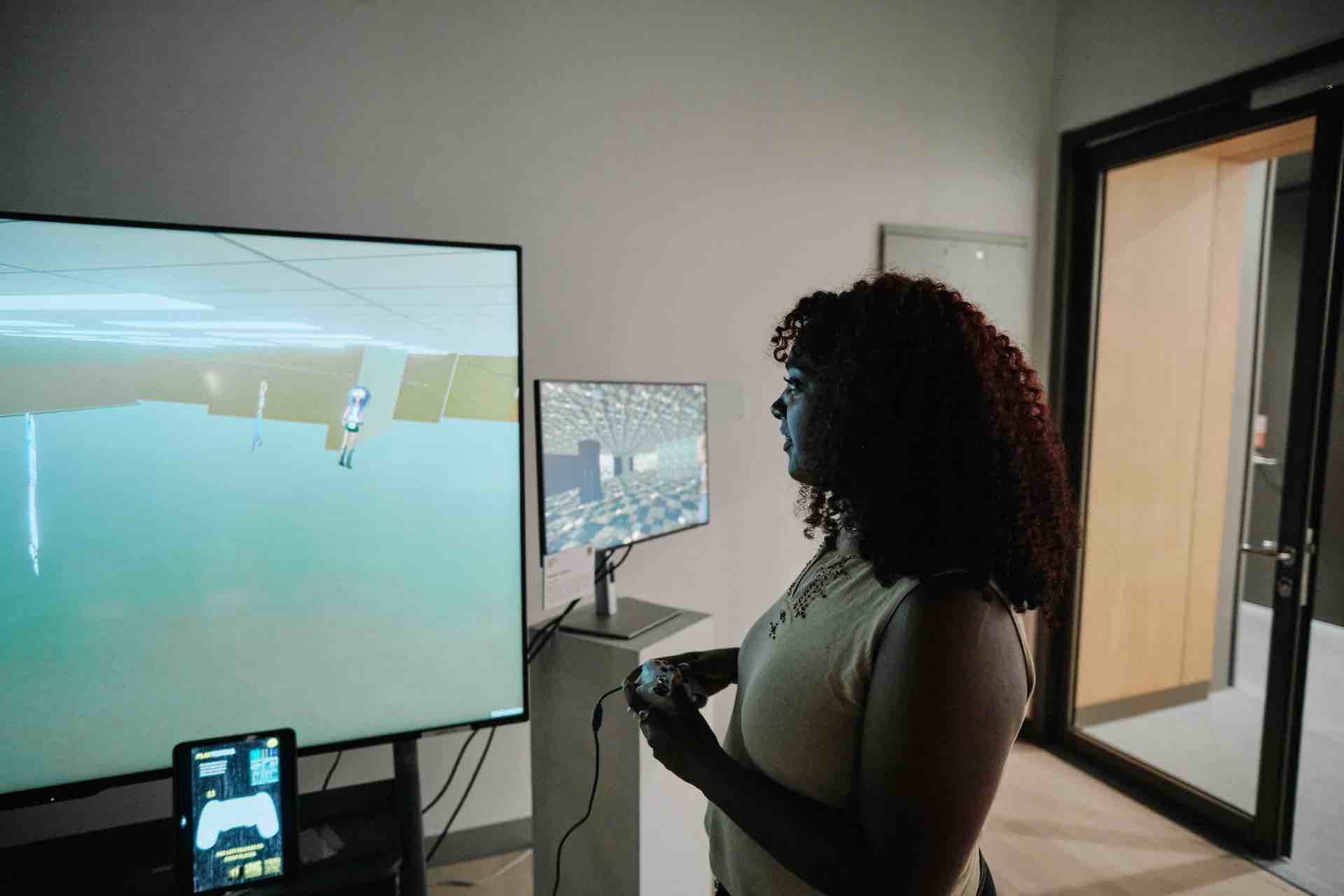
Robi Abera’s Boundary Dynamics is an interactive storytelling experience where two players, a performer and an audience participant, swap between three characters to explore a shared virtual world from their unique perspectives. Players can collaboratively build a narrative, blending elements of machinima, live streaming, and live performance.
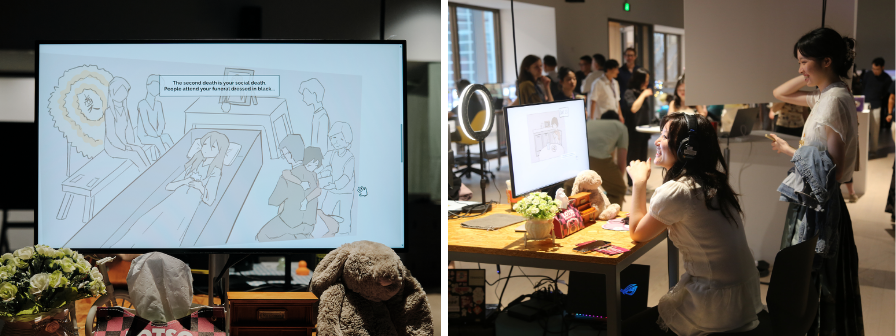
Yvonne Wu’s Reborn is a web-based, visually interactive comic for teens about death education, which is told from the perspective of Lily, a young girl who died of brain cancer at the age of 14. She posthumously tells the story of how her own parents gradually moved on from the grief of losing her, their own daughter, and eventually regained their lives while embracing love and spreading it.
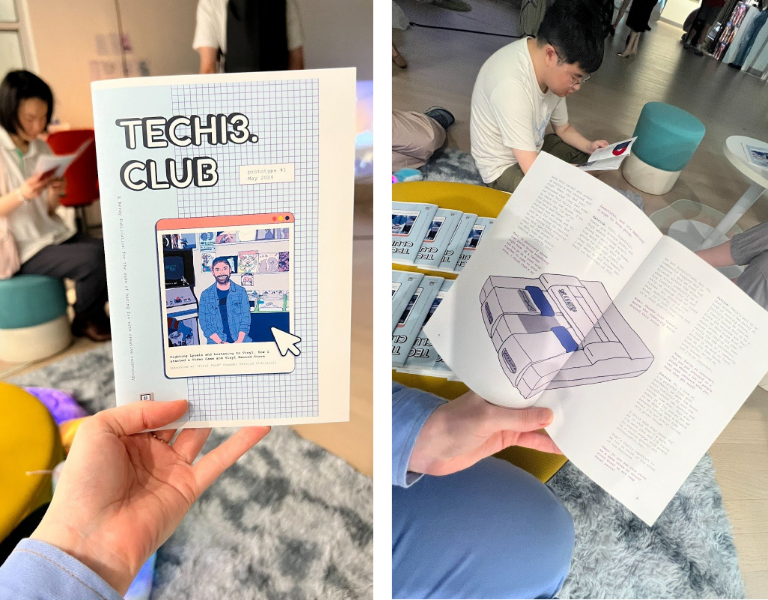
Kami Karras’ Something Old, Something New : Soft, playful, and approachable creative technology education and community exercised through a print publication called techi3.club

David Nuff’s Perfume Clock is a clock that smells the time. Or you smell the time through it. It...scents the time.
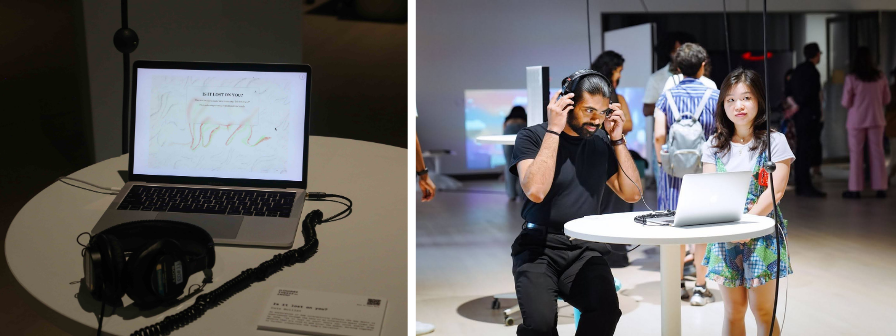
Cate Boillat’s Is it lost on you? is an exploration of how interactivity affects the way music is experienced through the lens of an interactive music video for her song, “Is it lost on you?” Users can click and/or drag objects that are tied to and alter the audio, working together to further illustrate the song’s narrative.

Jaiden McCran’s The Things I Carry is a video installation that provides a glimpse into the experiences of navigating girlhood online from the perspective of a fangirl. Both a personal reflection and a communal expression, depicting the physicality and weight of these collective experiences of both the fangirl media culture and the contemporary digital culture consumed at the given time symbolically as items in a bag.

Maryse Lango’s The Dark Child is a VR experience that brings to life a poem about embracing racial and cultural identity, emphasizing the power of self-acceptance and spirituality. It features a 3D printed bust of the artist alongside AI-generated images of her face altered to fit European beauty standards, highlighting the tension between societal expectations and personal identity.
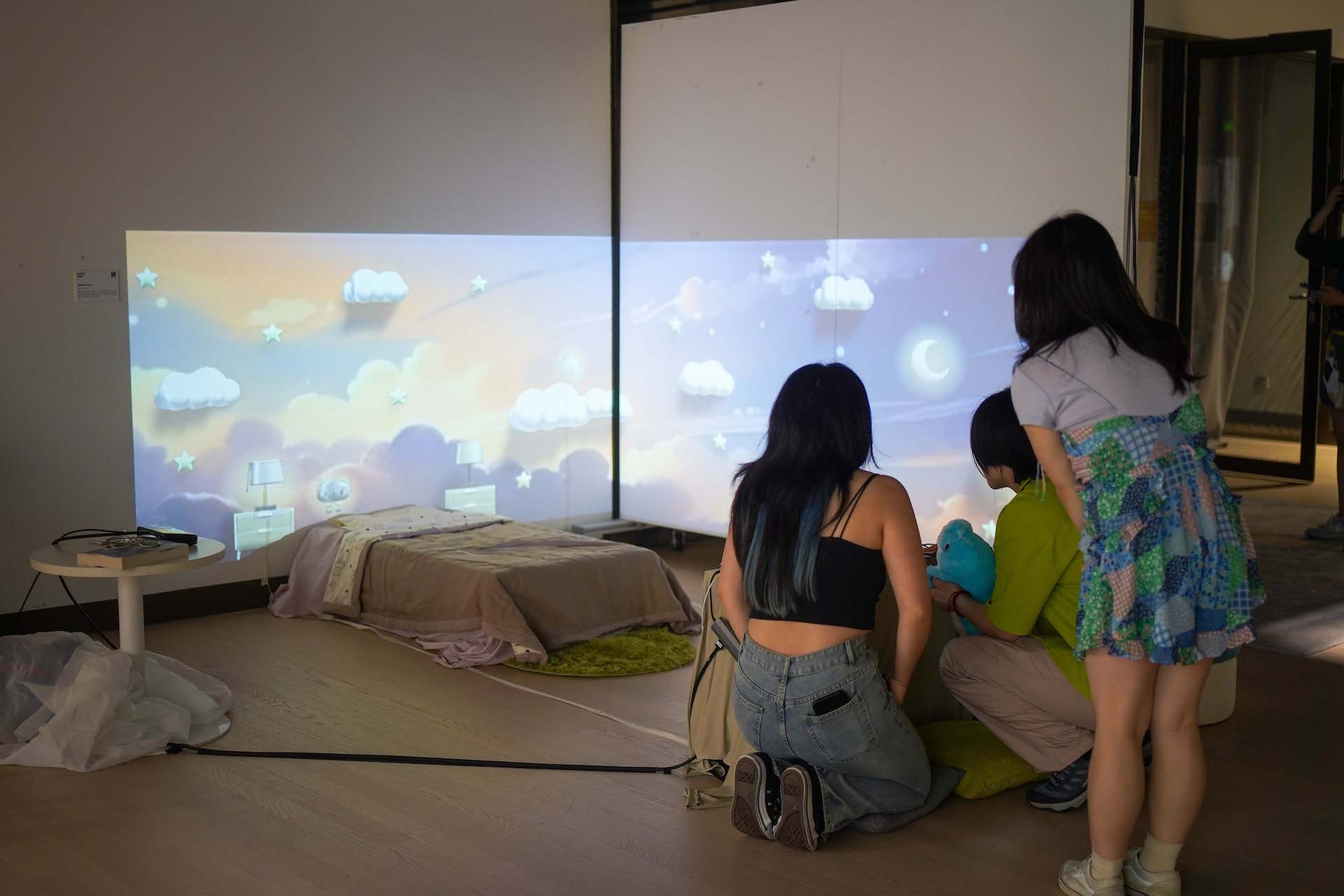
Amber Chen’s Redecorating is a reframing of the artists’ childhood/current room, a space that became stagnant for her through having so many experiences in the same setting, into a newly personalized space of imagination and immersion.

Rebecca Sweigart’s tetrachroma (四色) is an assistive augmented reality experience that uses color theory and color look-up tables to reduce anxiety and create emotional stability for individuals in everyday scenarios where there may be overwhelmed by visual stimuli.
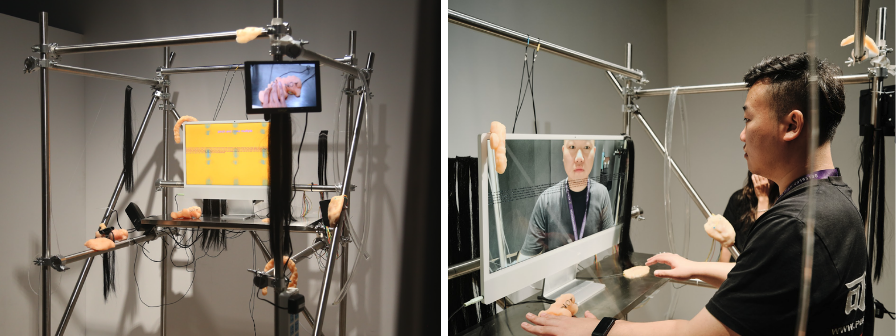
Michelle Lee’s (in)tangible being is an installation about self-conception, exploring the lines between physical and digital which has been blurred by our mundane encounters with digital devices.
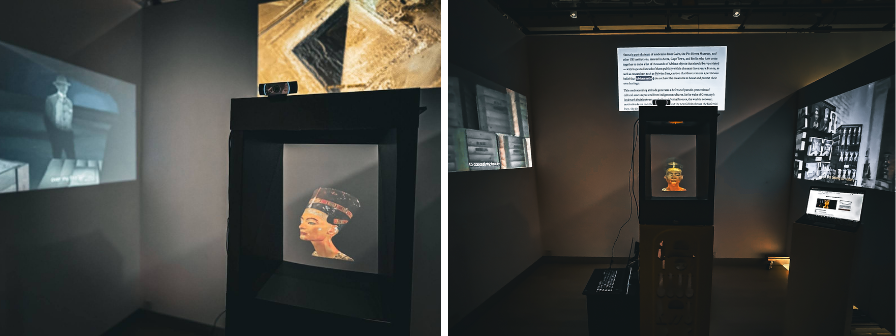
Maram Magdi Mohamed’s Empower Her Return is a spatial experience prompting reflection on the repatriation of artifacts, focusing on the Ancient Egyptian artifact Nefertiti. It leverages an empty display room to convey the concept of repatriation, evoking empathy and critiquing museum practices by highlighting hidden colonialism.
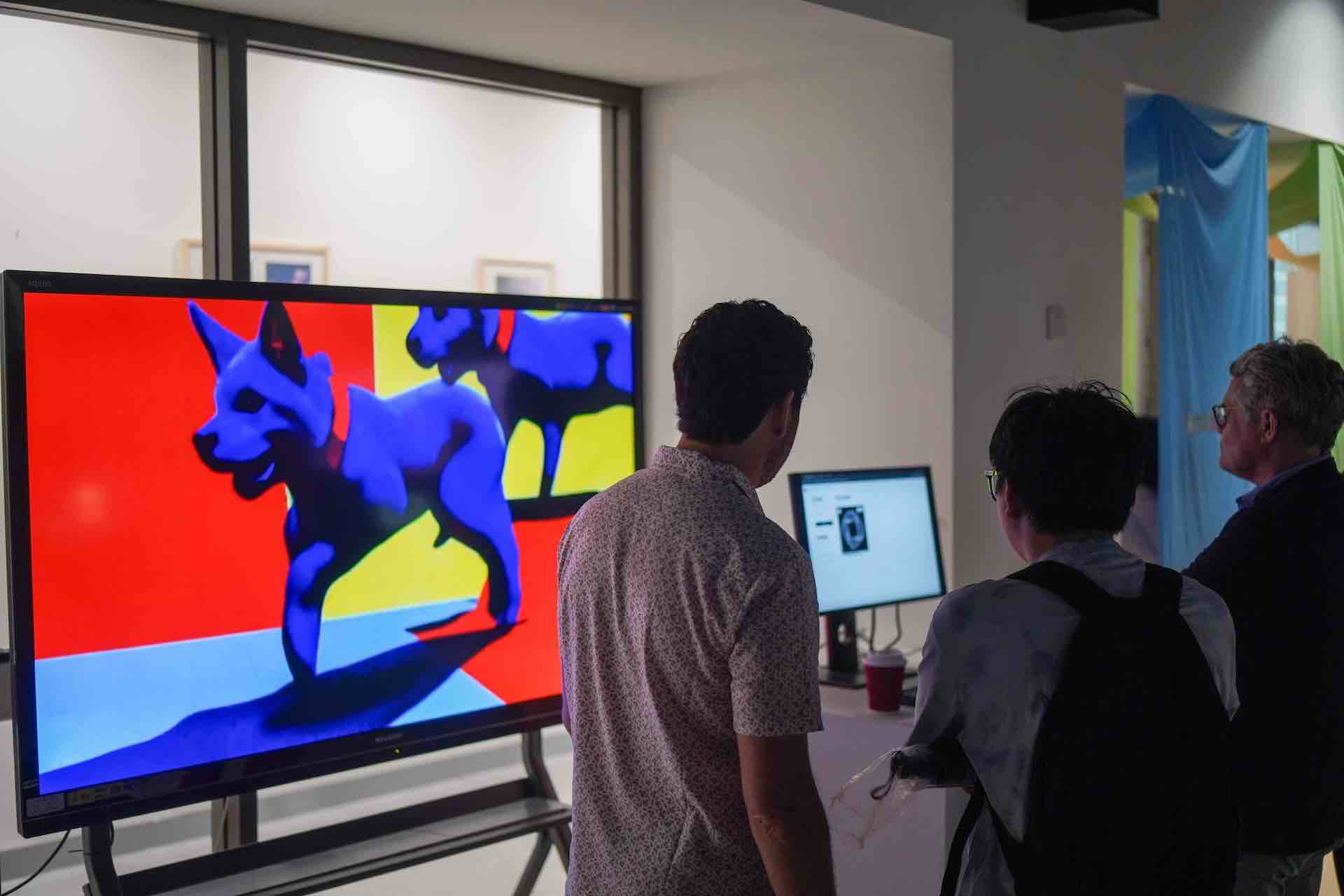
Jonny Sabbath’s Living Vision is an AI tool exploring the future of how brands come to life. The tool features image generation, storyboarding, and animation capabilities. With custom brand models, the tool develops content trained on a given brand’s visual identity, rather than generic mass-market AI imagery.

Ian Hawkins’s Prophylactic Distraction is a meditation experience that distracts you, so you don’t have to distract yourself. Freeing you from the self judgment that can come from losing focus, the piece aims to help you better focus on the core of the meditation experience. Refocusing.

Ryan Cady’s Obsolete Aesthetics is about the process and the importance of your own limitations, personal experiences, and the value created from your mistakes. To contrast this, the artists reverse engineered the soundscapes he made through idiosyncratic processes with obsolete tools, using prompt based AI tools, with unintended results.
Photo Credits:
Phil Guo, Haozhe Li, Jimmy Pan, Rona Xia
IMA Low Res is a unique one-year graduate school experience in creative and purposeful application of technology that offers three site-specific sessions across New York University’s global network in New York, Berlin, and Shanghai, interspersed by two semesters of online learning.
In a Year of Two Emmy Ceremonies, Why Not Have a Couple Host September’s Show?
By Michael Schneider
Michael Schneider
Variety Editor at Large
- In a Year of Two Emmy Ceremonies, Why Not Have a Couple Host September’s Show? 1 day ago
- Golden Globes to Again Be Produced By Glenn Weiss and Ricky Kirshner; Submissions Now Open 1 day ago
- Carrie Underwood Replaces Katy Perry As New ‘American Idol’ Judge 2 days ago

Related Stories
What neon’s ‘longlegs,’ a24’s ‘civil war’ demonstrate about indie distribution power, popular on variety.
Now, for the 76th edition on ABC, Collins could play off that spirit by celebrating partners and couples. What’s inspiring that? Glad you asked. ABC’s priority for fall is the new series “High Potential,” starring Kaitlin Olson — who just happens to be nominated for an Emmy this year, via her guest-starring role on “Hacks.” You know Olson from “It’s Always Sunny in Philadelphia,” where she stars with her husband, Rob McElhenney . He’s also Emmy nominated this year, as a producer and star of FX’s unscripted series “Welcome to Wrexham.”
Two Emmy-nominated Disney stars with loads of chemistry. Whatta combo to host an Emmy event that could be filled with couples, partners and other duos, both professionally and personally. Presenters might include real-life couple Holland Taylor and Sarah Paulson, as well as Carrie Coon and Tracy Letts — all nominated this year.
The real fun would be reuniting on-screen couples and non-romantic duos from past TV shows — sort of a successor idea to January’s cast reunions, which included “Cheers,” “Martin” and “Ally McBeal.”
Kimmel just hosted the Oscars, and it was just revealed that he’s planning to take next year off from that telecast, so let’s give him a break here too. Among other ABC primetimers,Steve Harvey is another possibility — opening the door to a “Family Feud: Emmy Edition” sketch at the very least. Think about all of the network’s game show presenters: Michael Strahan, Elizabeth Banks, Shaquille O’Neal, Gina Rodriguez. (I’m not going to mention Ryan Seacrest. We’re still recovering from the 2008 five-headed competition series host disaster.)
Of course, if we want to go with the easiest choice — stand-ups — Disney could seize the chance to promote Hulu’s stand-up business. The streamer just made deals with Roy Wood Jr. and Bill Burr, and will launch its new comedy brand in November with Jim Gaffigan. (John Mulaney, who also just passed on next year’s Oscars, would be a great get — but I assume that if he’s not thinking about the Oscars, he’s not racing to do the Emmys in a month.)
So back to my original idea. It’s time to pull off a new Lucy and Desi as 2024 Emmy hosts. And why not with a modern-day version who also seem to be doing it all, Kaitlin Olson and Rob McElhenney.
Bowing Out: Meanwhile, the recent news that President Joe Biden would drop out of the presidential race for the good of the country — allowing Kamala Harris to bring a fresh voice to the White House — got me thinking, naturally, about the Emmy race. (Since everything ultimately revolves around TV, after all.)
Over the years, several actors have pulled their submissions to give someone else a turn at the Emmy ballot box. Two notable examples: “Murphy Brown” star Candice Bergen and John Larroquette from “Night Court.” Brown opted to stop submitting her name after her fifth win as outstanding comedy actress in 1995, while Larroquette pulled out of the comedy supporting actor race in 1989 after winning four consecutive years. We salute you, President Biden, and Bergen and Larroquette as well.
More from Variety
Amazon’s ‘fourth wing’ tv series sets ‘breaking bad’ and ‘anne with an e’ vet moira walley-beckett as showrunner (exclusive), gaming layoffs already top 2023’s total — and it’s only july, warner bros. discovery says nba can’t reject matching offer: ‘we will take appropriate action’, amazon’s fire tv stick is down to its lowest price ever for prime day, amazon q2 ad revenue up 20% to $12.8 billion, short of wall street forecasts, more from our brands, aerosmith retires from the road: ‘heartbreaking and difficult’, this $3.9 million home is just off l.a.’s famed mulholland drive, kobe bryant’s locker sold for $2.9m at sotheby’s sports auction, the best loofahs and body scrubbers, according to dermatologists, i’ve seen the ill-fated middle spinoff centered on sue heck — and i have a lot of thoughts.

IMAGES
VIDEO
COMMENTS
List of Film dissertation topics. An analysis and comparison of the most popular genres of cinema in the world today. To compare the commercial cinema and non-commercial cinema - A literature review. Studying the role of marketing in the Chinese and Japanese film industry. Examining the cinema and film culture in the Middle East.
Here are some captivating film research paper topics on music. The Evolution of Film Scores: From Silent Cinema to the Digital Age. The Role of Music in Establishing Film Genres. Iconic Film Composers: The Musical Styles of John Williams and Ennio Morricone. The Impact of Jazz on Film Noir Soundtracks.
Listed by year of graduation 2024 Geneveive Newman, Online Editor, New Review of Film and Television Studies Dissertation Title: "Of Victims and Survivors: Representing Collective and Individual Rape Trauma" Chair: Adam Lowenstein Readers: Neepa Majumdar, Mark Lynn Anderson, Bridget Keown (Gender, Sexuality, and Women's Studies), and David Pettersen (French) 2023
Research the film industry in India. The growing popularity of television. Discuss the most important aspects of film theory. The drawbacks of silent movies. Cameras used in 1950s movies. The most important cinema movie of the 1900s. Research the montage of movies in the 1970s. The inception of film criticism.
217 Film Research Paper Topics & Ideas. Written by. Sarah Martinez. 18 May 2024. 2137 words. 10 min read. Film research paper topics provide a rich, multifaceted canvas for critical analysis. One can explore genre theory and its evolution, scrutinizing the symbiotic relationship between society and film genres, such as sci-fi, horror, or romance.
To choose the best media dissertation topics consider the following details: 1. Check your institution and department's requirements. Consider the following institutional requirements while you choose your media dissertation ideas: The minimum and maximum word count requirement. The orientation to develop your paper.
This section of the Film Studies Research Guide provides assistance in many of the particular subjects in Film Studies. The pages discuss particular issues and list key resources on those topics. You can get to the topical pages from the main navigation bar above or from the links below. The links are listed alphabetically. Animation
Global Cinema Research Paper Topics. Nollywood: Nigeria's Booming Film Industry. South Korean Cinema: A Global Impact. Iranian Cinema: Artistic Expression Under Restrictions. French Cinema: Romance, Realism, and Revolution. The Rise of Chinese Blockbusters. Brazilian Cinema: Social Issues and Narratives.
Graduate, Dissertations: Film/Cinema, Gender, Women, and Sexuality Studies: Annie Fee. "Gender, Class and Cinephilia: Parisian Cinema Cultures, 1918-1925." Diss., 2015. ... Department of Cinema & Media Studies University of Washington Padelford Hall B531 Box 354338 Seattle, WA 98195. Phone: (206) 543-7542 Fax: (206) 685-2017 [email protected] ...
This collection contains theses and dissertations from the Department of Media Studies, collected from the Scholarship@Western Electronic Thesis and Dissertation Repository. Follow ... Dead Men Walking: An Analysis of Working-Class Masculinity in Post-2008 Hollywood Film, Ryan Schroeder. PDF.
2015. Claudia Calhoun. " 'The Story You Are About to Hear Is True': Dragnet, Transmedia Storytelling, and the Postwar Police Procedural". with American Studies. 2015. Joshua Glick. "Los Angeles Documentary and the Production of Public History, 1958-1977". with American Studies.
Cluster your ideas around the themes or topics that emerge in your notes, possible in a concept map. If you're writing an argumentative essay, your brainstorming ideas can be used to draft your thesis statement or research question. Things to remember: Use your assignment prompt as a guide. Write about the film in the present tense in your essay.
Think hard about how each topic fits with what you're interested in, what people are talking about in film studies, and what new things you can bring to the table. Your dissertation is like your first big movie in the world of film studies. At My Dissertations, we offer dissertation proposal help to make the process easier for you.
The graduate emphasis in Film and Media Studies prepares students in any M.A., Ph.D., or M.F.A. program to analyze film and media texts, contexts, and industries. The emphasis requires that students complete four seminars, two of which are in the Film and Media Studies PhD core series (FMS 285A-C, FMS 286A-C) and two of which may be Film and ...
Pushing the boundaries : the development of film industries in the Gulf countries from 2004 to 2017 . Alghanem, Abdulrahman A. (2021-06-18) - Thesis. The main purpose of the thesis is to provide an analytical view of the current trends within the Gulf film industries, focusing specifically on the period between 2004 to 2017.
Conclusion. Film studies basically approach movies from historical, theoretical, and critical perspectives. To write a brilliant film research paper, from the list of 150+ topics recommended above, choose the best topic that matches your interest. In case, you are not sure what film research topic to select or how to write an informative film ...
Here is our selection of film and theatre research topics that we think you should consider. Topic 1: An Exploration of Gender Role in Blockbuster Films and the Perspectives of Assigning Roles. Topic 2: A Comparative Study of Hollywood and Bollywood: An Exploration of Research of Movies. Topic 3: A Detailed Analysis of the Principles of Making ...
Film and Media Studies (MA) Theses. Below is a selection of dissertations from the Film and Media Studies program in Dodge College of Film and Media Arts that have been voluntarily included in Chapman University Digital Commons. Additional dissertations from years prior to 2019 are available through the Leatherby Libraries' print collection or ...
Media Dissertation Topics - over 100 free and excellent Master & Bachelor dissertation topics will help you get started with your proposal or dissertation. ... Is the growth of media and film making, outside of Hollywood, important to ensure that all cultures are represented? The case of Bollywood.
By making this film, from development all the way to post production, I learned valuable lessons from the mistakes I made and the multiple tasks I took on at once. Because of the many hats I wore for this film, and the tiny crew that helped make the film, certain important aspects of the process didn't get the attention they deserved. The
Video (online) Consult the top 50 dissertations / theses for your research on the topic 'Documentary film media.'. Next to every source in the list of references, there is an 'Add to bibliography' button. Press on it, and we will generate automatically the bibliographic reference to the chosen work in the citation style you need: APA, MLA ...
The Interactive Media Arts Low Residency (IMA Low Res) Master's Program, jointly offered by NYU Tisch School of the Arts and NYU Shanghai, hosted its "Thesis '24 Show" on June 20 and 21 at the NYU Shanghai New Bund Campus. ... simplifying complex ideas for universal understanding. This tool is an experiment for educational settings ...
Imane Khelif of Algeria won her opening Olympic boxing bout when opponent Angela Carini of Italy quit after just 46 seconds. Khelif was disqualified from the 2023 world championships after failing ...
The summer's most anticipated film and the first R-rated Marvel movie that Disney DIS 2.46% increase; green up pointing triangle has released in theaters generated an estimated $205 million in ...
In his Awards Circuit column, Michael Schneider has a couple of ideas for Emmys host — including an actual couple: Kaitlin Olson and Rob McElhenney.
The 2024 Paris Olympics got underway on Friday with a unique opening ceremony on the river Seine which divided opinion on a chaotic day in France. Hundreds of thousands of spectators braved heavy ...